





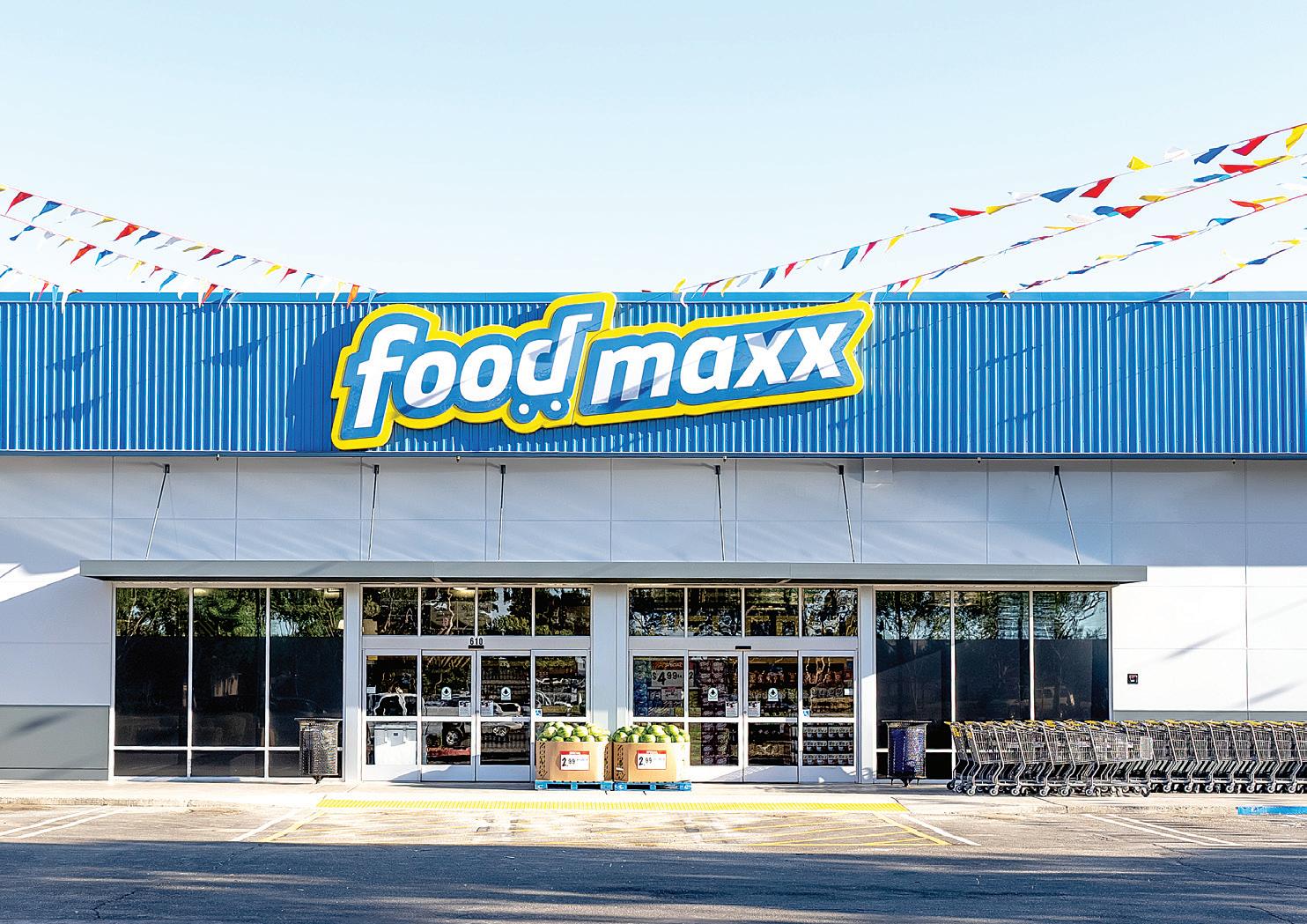

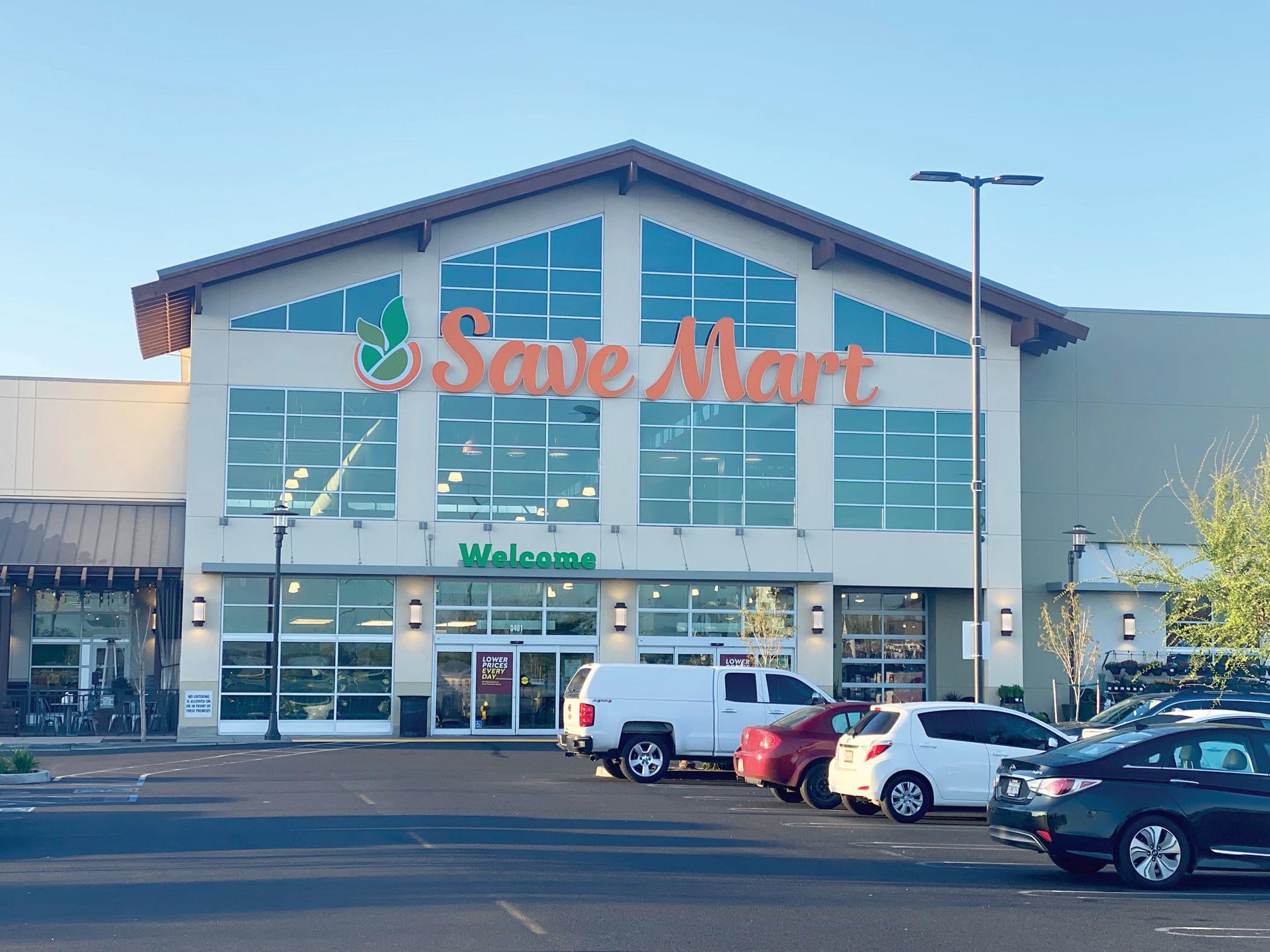

The Modesto, California-based Save Mart Companies has been acquired by Kingswood Capital Management.
Kingswood is an operationally focused private equity firm based in Los Angeles, with experience in the retail sector. Terms of the transaction were not disclosed.
The Save Mart Companies operates 200 Save Mart, Lucky California and FoodMaxx stores in the California Central Valley and northern Nevada.


In addition to its retail operation, the company also operates SMART Refrigerated Transport and is a partner in Super Store Industries, which owns and operates a distribution center in Lathrop and the Sunnyside Farms dairy processing plant in Turlock.
“I’m excited for this opportunity with Kingswood to invest in and grow The Save Mart Companies family of stores,” said Chris McGarry, CEO of The Save Mart Companies. “The Piccinini family did a tremendous job in fostering a commitment to innovation and service as they built and grew this company in the Central Valley and throughout California.”
“As a result, we have great stores and a committed team of 14,000 employees who provide fantastic local products and are wonderful stewards of the communities in
which they live and work. While this change in ownership will be transparent to our team and customers, we know that this investment will benefit them and the communities we serve.”
On April 4, The Save Mart Companies and Kingswood Capital Management named Shane Sampson as executive chairman of the Californiabased, regional grocery retailer.
The news came a week after Kingswood, a Los Angeles-based operationally focused private equity firm with experience in the retail sector, announced its acquisition of Save Mart.
With the addition of The Save Mart Companies, Kingswood is expanding its existing Northern California presence. It owns Alameda-based Cost Plus World Market, which it acquired in January 2021 from Bed Bath and Beyond, and Mare Island-based Lind Marine, a diversified marine services business headquartered north of the San Francisco Bay, which it recapitalized in January.
“At Kingswood, our goal is to make good businesses even better, and The Save Mart Companies presents us with a great opportunity to do so,” said Alex Wolf, managing partner and founder of Kingswood. “Their 70 years of history in the Central Valley provides a strong foundation for future profitable growth, and we look forward to working with Chris and the team to position these iconic grocery brands for the future.”
Kirkland and Ellis served as legal advisor to Kingswood on the transaction.
“The Save Mart Companies team has built a wonderful operation in the Central Valley of California throughout their 70 years of serving their customers and communities,” Sampson said. “The family and leadership team have done a tremendous job in establishing and perpetuating a commitment to innovation and service, and I think there is an exceptional opportunity to invest in and grow The Save Mart Companies’ brands.
“I’m excited to join the company at such a pivotal time for the Save Mart, FoodMaxx and Lucky California stores. I’m looking forward to leading the team into the next phase of growth and innovation and beyond.”
Sampson is a fourth-generation grocer with four decades of experience in building brands, implementing marketing and merchandising programs and leading strategic operations. He started his career as a retail clerk at a local grocery store and learned the business from the ground up. This culminated with him being named chief marketing and merchandising officer at the Albertsons Companies.
Sampson was instrumental in driving
Albertsons’ merchandising strategy during a period of growth during which he oversaw development and innovation of digital and e-commerce strategies, scaled its private label brands and built customer and associate engagement across 2,300 stores.
As a result, he was recognized as Mass Market Retailer’s “Merchant of the Year” in 2017 and received the Retail TouchPoints’ 2018 Innovator Award.
Prior to his position as CMMO at Albertsons, Sampson was president of two separate Albertsons Divisions – Jewel-Osco and Shaws/Star Market. He also has held leadership positions at Ahold’s Giant of Landover, Walmart’s Sam’s Club and Schwazze, a Dye Capital portfolio company based in Denver, Colorado.
Most recently, Sampson held a leadership position at Jacksons Companies based in Meridian, Idaho, and served as a board member on their ExtraMile joint venture with Chevron.
“We are thrilled to have Shane on the team,” said Alex Wolf, a partner of Kingswood. “His retail acumen is unparalleled, and he has driven results across all the companies he’s been a part of leading. We’re looking forward to leveraging his significant retail experience into The Save Mart Companies’ operations.”
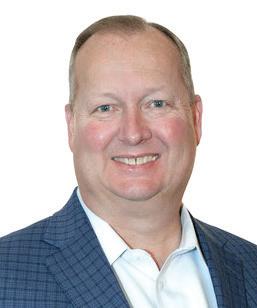
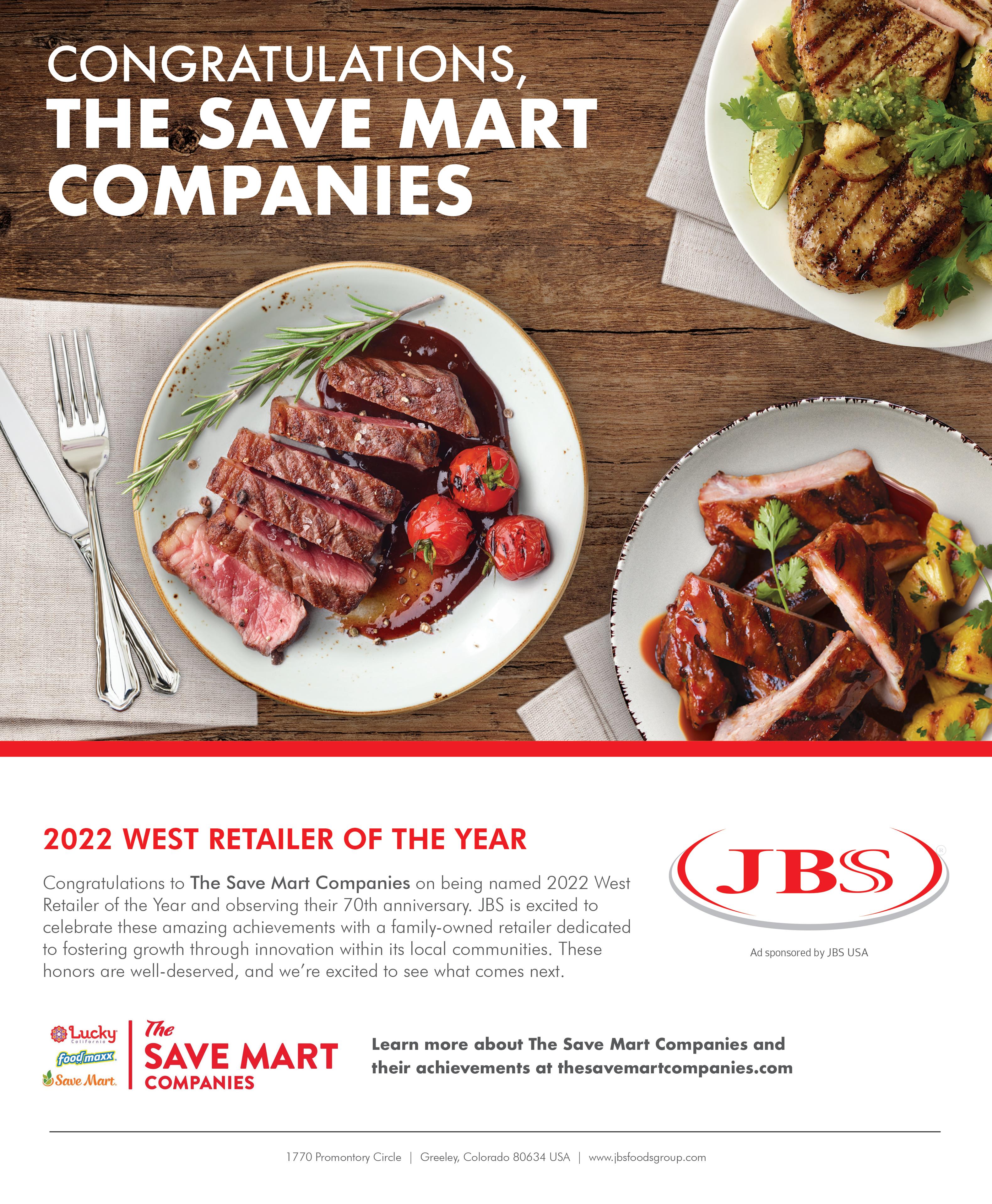
The grocery industry was not on The Save Mart Companies CEO Chris McGarry’s radar when planning his career. The New Jersey native attended Seton Hall University and earned three degrees: a bachelor’s in history, an MBA in finance and a law degree.
“If you had asked me 30 years ago if I’d have a career in grocery, I would have questioned your sanity for sure,” McGarry told The Shelby Report’s Bob Reeves. Save Mart has been named Shelby’s 2022 West Retailer of the Year.
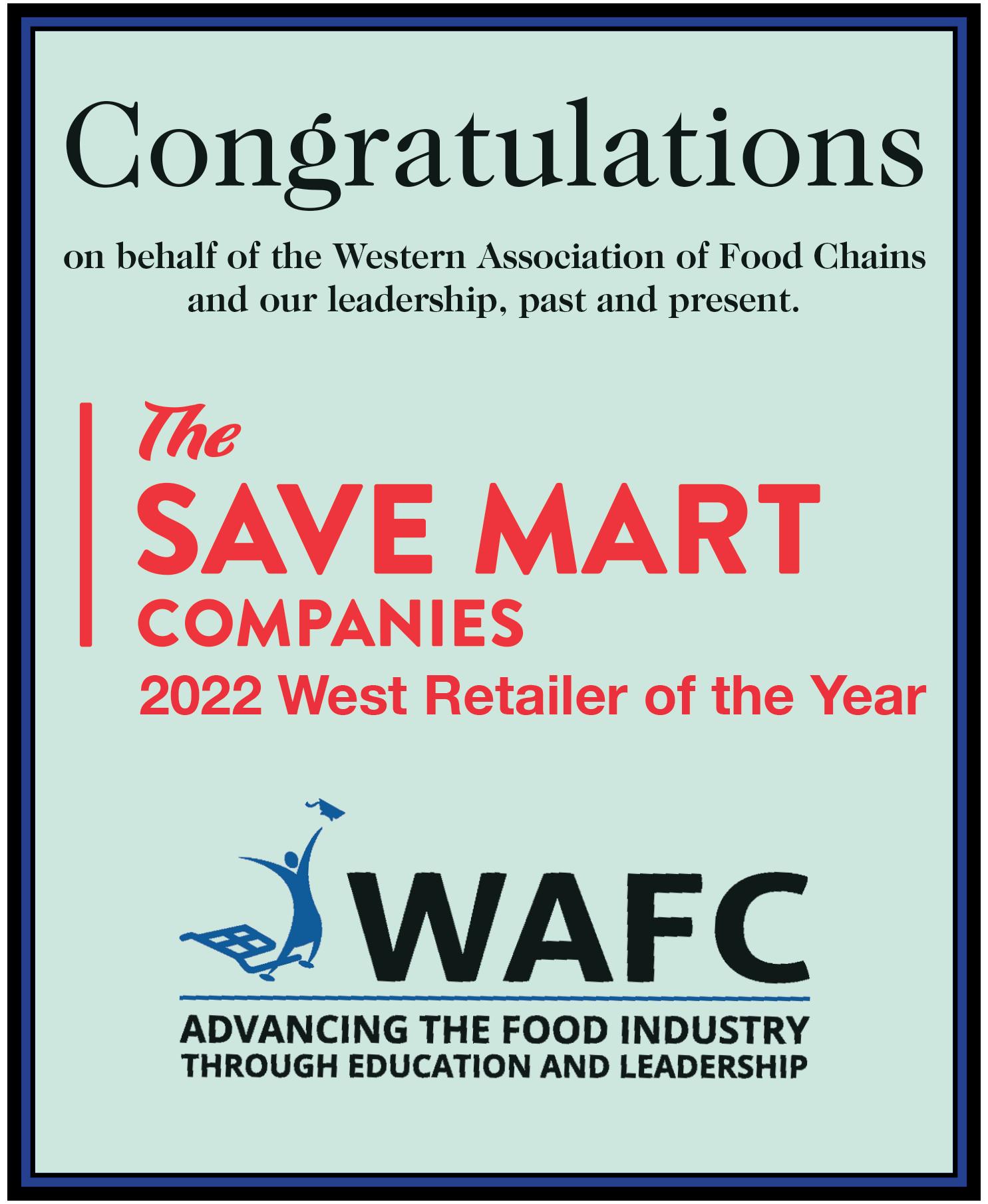
McGarry said when he talks to students in the food industry program at the University of Southern California and they tell him they are studying law, he points out that the food industry needs lawyers.
McGarry started out in private practice with a midsize firm in New York and New Jersey. He said some of his clients involved supermarket chains and he represented the Grand Union company, “an old-time, now defunct regional chain.” That was his first foray into the grocery business, when the general counsel at Grand Union hired him as assistant general counsel and also to run the real estate department.
While he was hesitant at first, McGarry said he accepted the job and continued there for three or four years until the company went out of business. He then got a job as general counsel for a thirdparty logistics company, which supplied a lot of grocery stores.
This kept him close to the industry but on the supply chain side. When the company eventually was acquired by DHL, he “parted ways” in 2005. Early the next year, he was hired as general counsel by A&P Supermarkets.
“That’s where my transformation professionally began to occur, as I moved away from doing legal work for the company and undertaking a variety of different responsibilities,” McGarry said.
As general counsel, he began hiring for the legal department and was looking for a different kind of lawyer, “folks that had a business acumen and were very much customer service oriented,” he said. “I was intent on changing the personality of the legal team as being really value add, great partners, driving the business. And what began to happen is, my lawyers were being poached by the business teams to take on business roles in merchandising, operations, risk management, these kinds of things.”
He’s always felt very strongly about “developing people, hiring the right people and making sure that they’re engaged, that they’re challenged, that they’re developed.”
“I always believed in building that relationship with the store level. I worked my way through school…I had developed a deep and abiding respect for hard-working people. That never left me, and I found that there were opportunities for me to help people in a way that helped the business in grocery. That’s something that I firmly believe in even today. It’s what drew me to The Save Mart Companies.”
McGarry joined The Save Mart Companies in 2017. He became chief administrative officer that same year and was promoted to CEO in 2021.

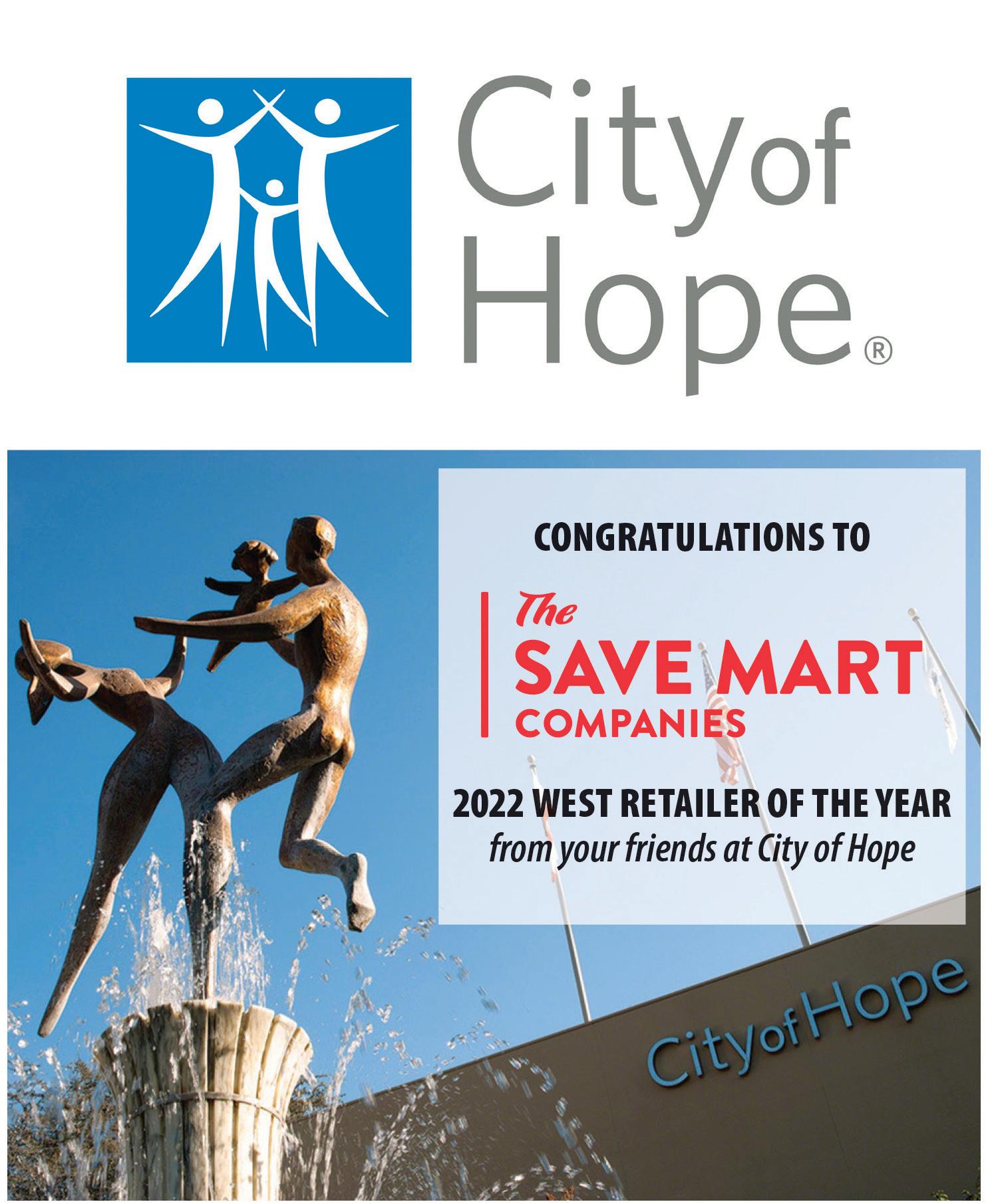

McGarry said working in the grocery industry on the West Coast has some differences.
“You really need to be very creative and innovative in how you’re maximizing the use of space –you don’t have as much space,” he said. “And then, think about what a strawberry has to go through in order to get to a store in the greater tri-state New York area. I have a profound appreciation for what we have here, being in the breadbasket, the heartland for all the agriculture.
“I love California. I love the distinctions between the San Francisco Bay Area and the Central Valley. I love the symmetry of the agricultural fields. It’s very peaceful; it’s very calming. There’s something rhythmic about it,” McGarry said.
He noted the distinctions between the Central Valley, Northern California, Southern California and the Bay Area.
“That’s something that we’re really sharpening our focus on right now in the Bay Area is reflecting the ethnic diversity and then also curating the stores to be more of a store of the neighborhood,” he said. “The Bay Area, in particular, reminds me of a lot of communities that we had in New Jersey and in New York, so that’s the only place where I draw the similarities. But the Central Valley – it’s all about families, the connection to agriculture, center of the plate, a branded experience.
“You can go into a Save Mart store just about anywhere in the Central Valley, and you’ll have a similar experience. In the Bay Area, it’s much different. And then even though FoodMaxx straddles both of those, that is still a branded experience for us in terms of meeting the needs of customers who are really under a lot of pressure with a food budget. In the East Coast, you really need to be very creative and innovative.”
Please see page 40

When he joined The Save Mart Companies, McGarry described the FoodMaxx banner as “languishing in a little bit of no man’s land.”
“It was calling itself a true value proposition, but the reality was we were neither communicating clearly that way, we weren’t priced that way, we weren’t merchandised that way and operationally we were confused. We didn’t know whether were trying to optimize operations in order to drive efficiency and cost savings that would flow to the bottom line, or whether we were focused on sales and margin.”

He said that confusion was some of the outgrowth from the Great Recession in 2010, when FoodMaxx was a clear value proposition. As people traded down, the company expanded the assortment and offerings.
“People were flocking to FoodMaxx. But the problem was that as the economy recovered and folks began to resume their ordinary shopping behavior. We then kind of hung on to what the reality of FoodMaxx had become in 2010-11,” he said. “And through that process, we were antagonizing some of the value shoppers who saw better options [elsewhere]. At the same time, we weren’t offering the kind of spec and quality…so we’re in this no man’s land.”
Just before the COVID-19 pandemic hit, McGarry said The Save Mart Companies decided to give the FoodMaxx banner some “standalone attention.”
“As a consequence, we’ve re-established our market approach there, which is we’re focused on the tonnage, on item movement and not so much sales and margin. Then you see in the stores, we’ve got pallet positions, case packing. The idea is that we drive these operational efficiencies, that’s where the profitability comes from,” he said.
“And this has been taking off. We’ve been experiencing double-digit comps…and we’re only about halfway through the banner.
We’re going to complete the capital program to restore steel, huge pallet positions, a great wall of value, those kinds of things.”
FoodMaxx customers are among the company’s most discerning.
“They’re very smart shoppers,” McGarry said. “You can’t do a bait and switch, you can’t lower the price on critical items and elevate background items and think they’re not going to notice. They get it, and they know what they can buy, for what and where.”
He said another change in the company is to ensure that it is communicating in “an authentic, genuine, honest way with this customer,” including what FoodMaxx is doing in order to deliver savings for them.
“All of these are so important, but it’s kind of our North Star for FoodMaxx,” he said.
With the Save Mart stores, McGarry said the company decided to “play to our strengths.”
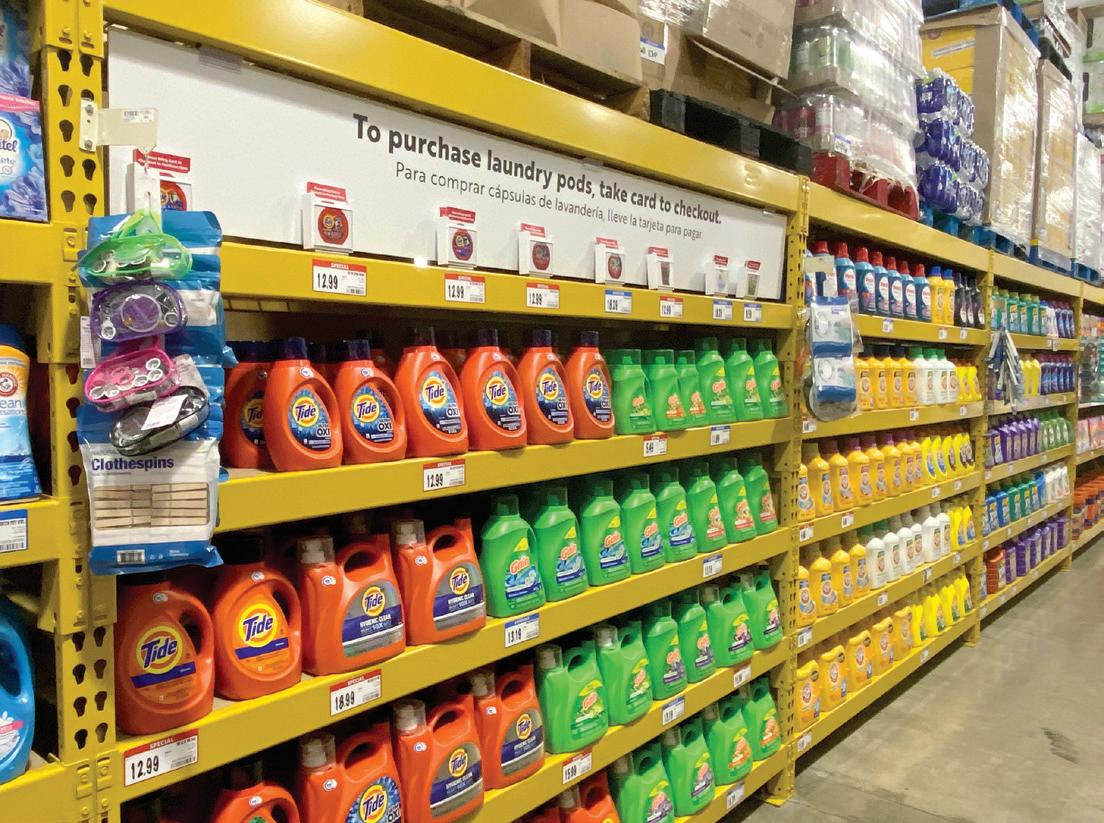

“We want to be true to ourselves,” he added. “We don’t want to have to become a different company to evolve our brands, because I think that’s a recipe for disaster.”
Looking at the next generation of the Save Mart store, he points to locations in Modesto and Redding as examples.
As for the physical environment, “We were trying to communicate that connectivity of the Central Valley to the agricultural sector, ‘Valley Proud,’ and you see it…[there’s] heavy emphasis on agriculture and fresh, and in a way that we haven’t done before – but in a very nice store.”
He noted the exposed concrete floors, cinderblock walls and “the entrails” of the HVAC system.
“That is to communicate a simplicity and authenticity that there’s no polish here that we’re trying to use to distract the customer away from quality and quality of value,” he said. “Even with the physical environment, we want to make sure we are looking our customers in the eye and communicating in the right way with them.”
He also noted the “programmatic attributes” and innovation, which include: an open-air grill; grilling and cooking to order; custom-made sausage; agua fresca; the fruit and vegetable production area; and a sit-down restaurant, which becomes a point of theater.
“We wanted to create different points of entertainment throughout the store, but in an authentic way,” he said in reference to Tipping Point, a fast-casual restaurant located in the store.”
“Tri-tip is Central Valley. It’s a restaurant, but we don’t have an expansive menu. But I can guarantee that you’re going to get the best tri-tip…that you can get in a 50-mile radius. And similarly, as we go through the store, that’s what we’re trying to communicate. We have an entertainment destination, but it’s not ostentatious. It’s really focusing on how can we serve the customer; it’s tailored to the needs of the customer.”
Please see page 42

Another area of importance for the Save Mart banner is that it maintains its pricing. McGarry said that is something that was established across the enterprise in 2018.
“We’ve been careful not to be perceived as trying to pull a fast one on a customer,” he said. “We index on matching items. We know where we index against all the competition and the price zones that we operate. That is an approach that we’ve taken between Save Mart and Lucky California.”
As for the Lucky California banner, it has curated a lot of entertainment for the particular tastes of the Bay Area shoppers. Although there is not a sit-down restaurant, customers can go and get a smoothie or glass of wine while shopping. Prepared foods include a hummus bar, ramen, burritos – “all of these are foods that folks want in the Bay Area.”
McGarry said they are creating entertainment, prepared foods, meal solutions and entertaining solutions in the Lucky stores.
“Just because someone wants to have healthy options and organics, and an entertaining experience, they don’t have to pay through the nose for it. That was our design there, to create that kind of an experience for everyone. And so far, that store is really resonating with the community.”
Drawing a parallel between the Save Mart and Lucky banners, McGarry said he believes Save Mart is more of a branded experience. The company is looking for additional locations and to “tweak” the next generation concept.



He added that the company wants to continue to evolve with Lucky California. “We’ve really struck something here.”
“We don’t really have too much deferred maintenance or stores that are in need of investment,” he explained. “It’s really how do we export some of the programs that we see are resonating with customers in the Bay Area into our existing fleet? And at the same time, we’re searching out these incremental opportunities wherever they may exist.”
Retail today is highly competitive and stores have to be differentiated and execute flawlessly, according to McGarry. Going forward, a sense of entertainment and theater will draw customers, similar to a restaurant.
“There’s consistent quality, reasonable price and you’re always made to feel welcome,” he said. “And that’s grocery retail.”

In 1952, the first Save Mart opened in Modesto, California, with the aim to offer Central Valley families the freshest food at the greatest value, according to the company’s website.
“It was the foundation for Save Mart’s service-oriented grocery store experience. Since then, Save Mart has grown to 83 stores from Tehachapi to Chico and everywhere in between. Save Mart is proud of its Central Valley roots and to this day is still headquartered in Modesto.”

The Shelby Report’s Bob Reeves recently joined company executives for a tour of Save Mart’s flagship store, which also serves as an innovation lab.


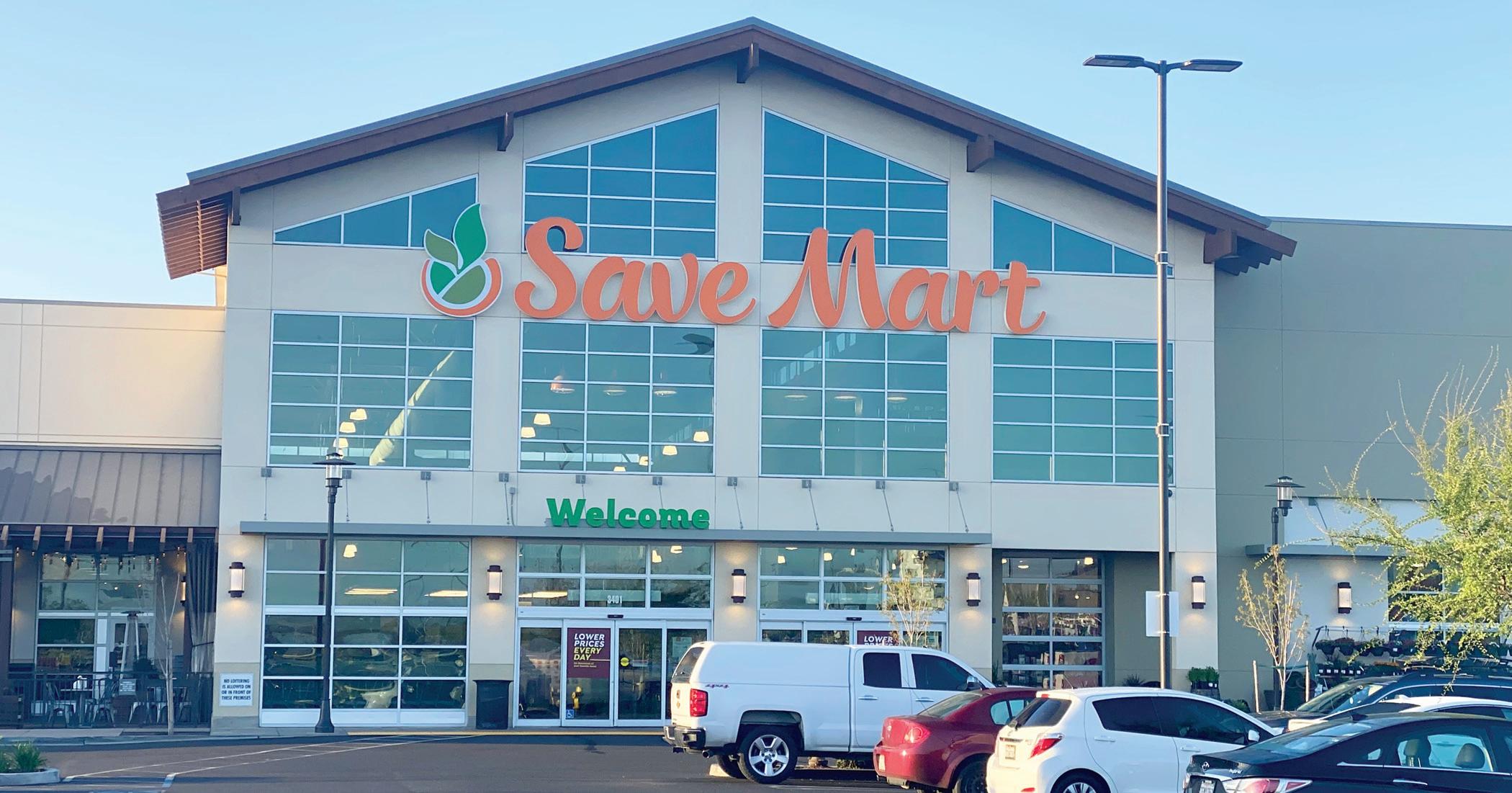
One of the first differences customers will notice when entering is a restaurant with more than 24 beers and some wine on draft.
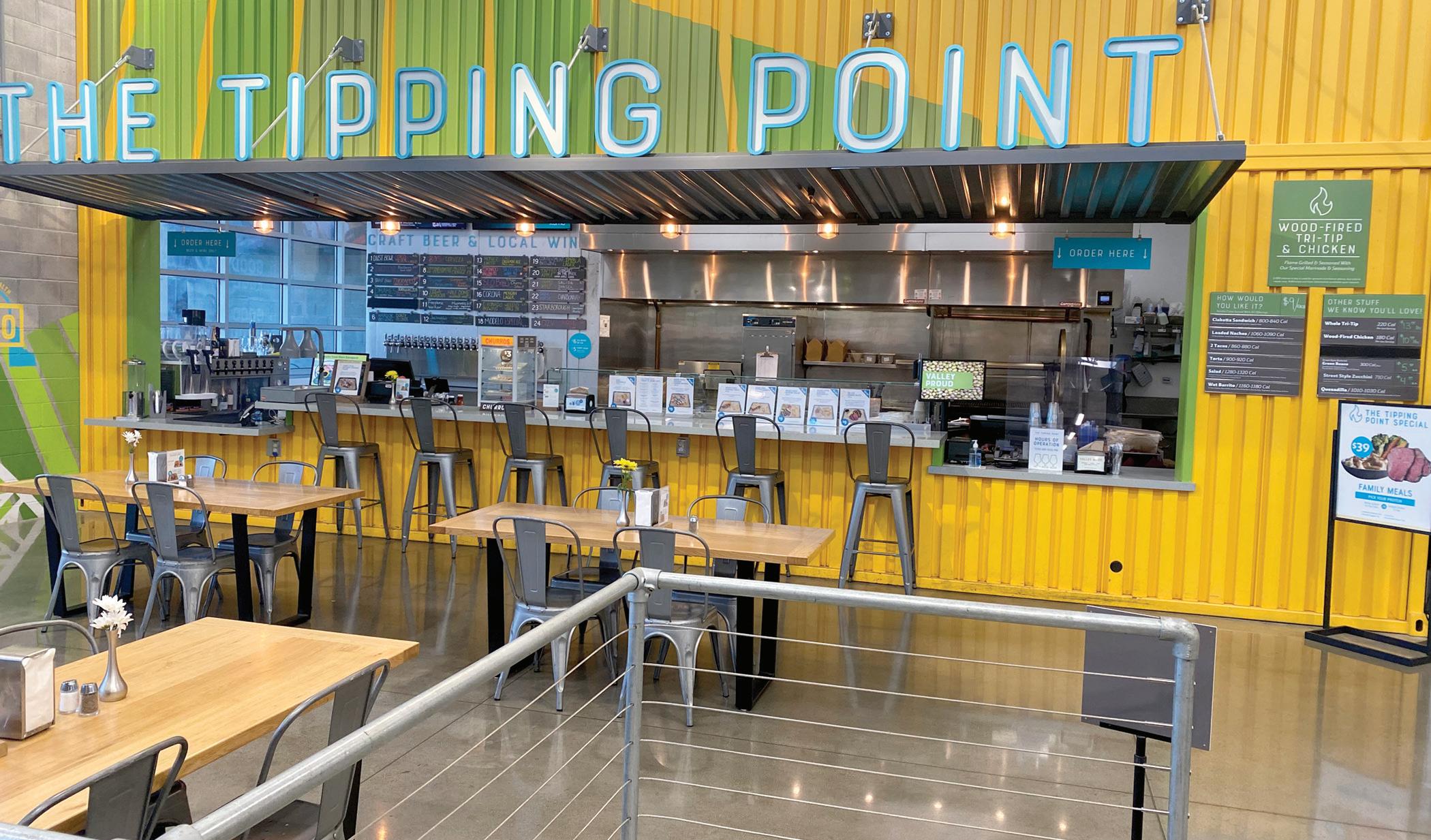
As customers walk through the store, they’ll come across a full-service department that combines convenience and produce.
“It’s fast and casual. We have a limited menu,” said Jerald Smith, store director. “But the thought process behind that was instead of being mediocre at a lot of things, let’s try to really be good at things that we know we’re good at – tri-tip and flame grilled chicken.”

From page 48
“The customer can come in, have their guacamole custom made for them. They can do some shopping and come back around and pick it up,” Smith said. “You can also pick out all your fruits and veggies and have the produce cutting specialists custom cut them…we have a menu of smoothies, we have vitality waters, we have a lot of cold press juice.”
The store has a bakery staffed with world-class bakers and offers a frontend concierge for a more personalized shopping experience.

Entering the produce department, the fruits and vegetables are framed around a farmstand-style theme. Shoppers will notice the lobby brimming with authentic farmer’s bins, which are stocked with fresh and often locally-grown produce.

“We try to really pay tribute to the local partnerships that we’ve created…there are over 170 organic options for the produce department,” Smith said.
Rebecca Calvin, chief merchandising officer, spoke to some of the unique ways Save Mart merchandises its center store.

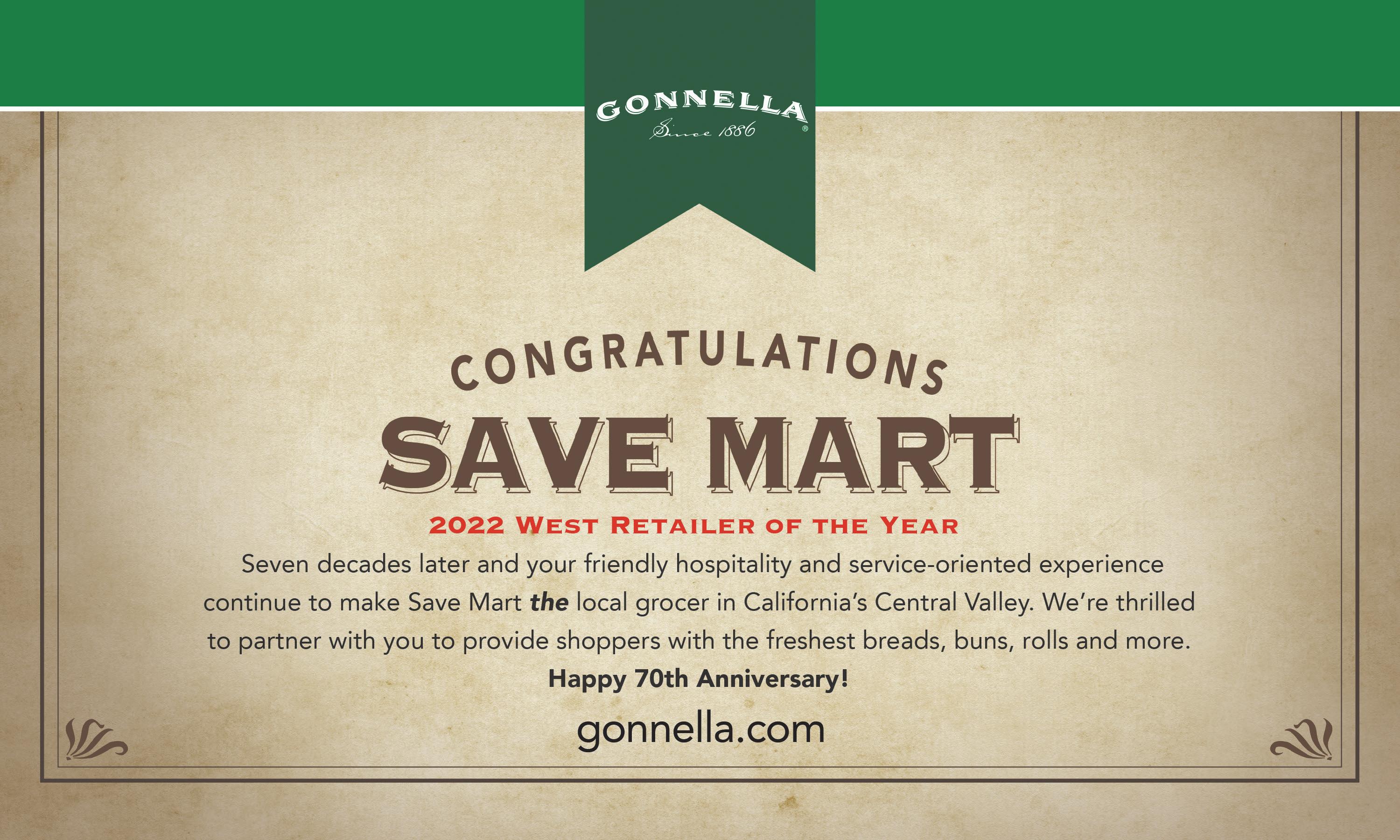

“I would say that we have brought categories together in a different way in this store,” Calvin said. “In other conventional stores, you’d see an Asian set that would include marinating sauces that are specific to an Asian flavor profile. In this store, we have all of those sauces together. We’ve tried to offer all of the solutions for a category or a way of cooking or preparing in one spot.”
Please see page 54

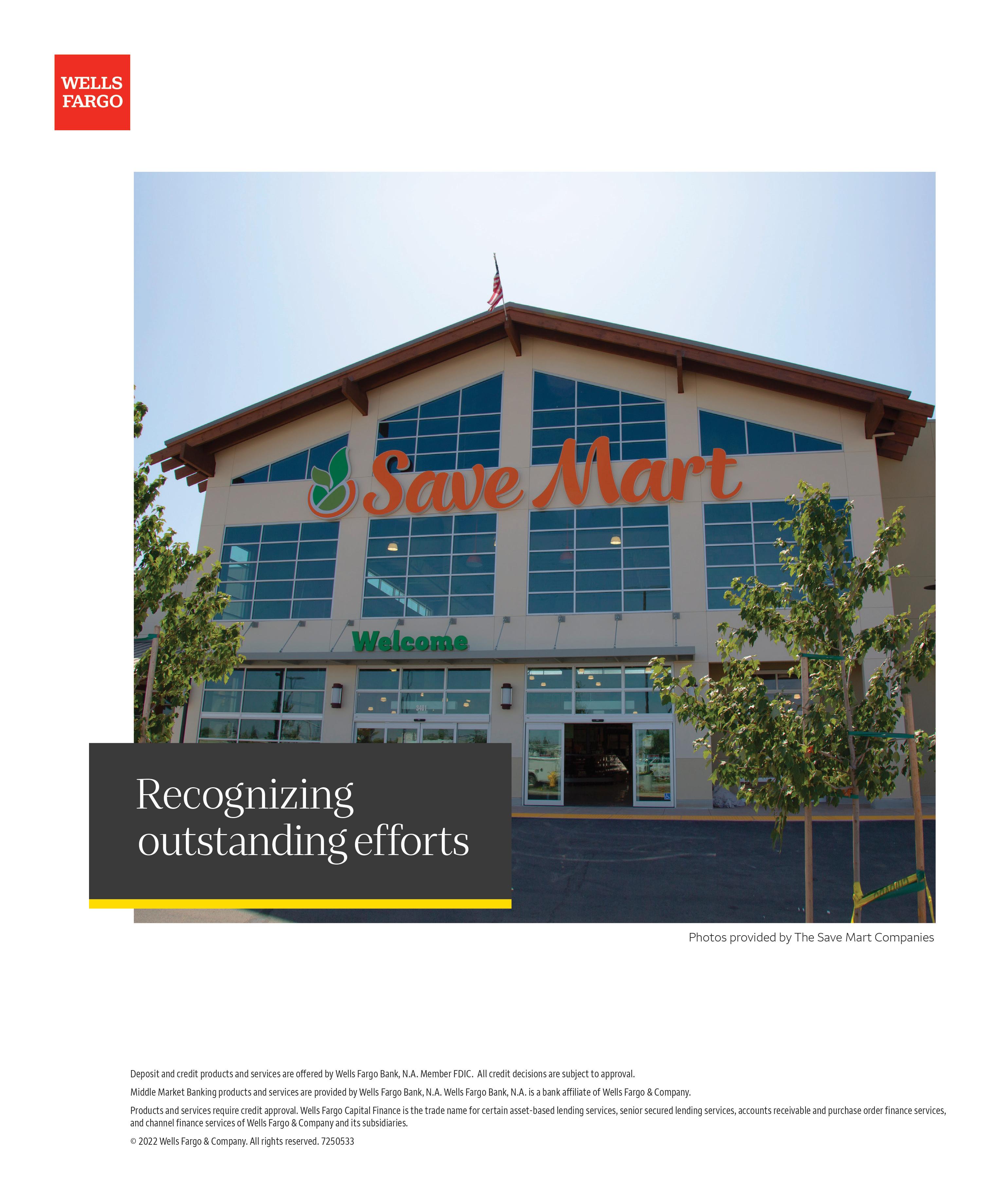
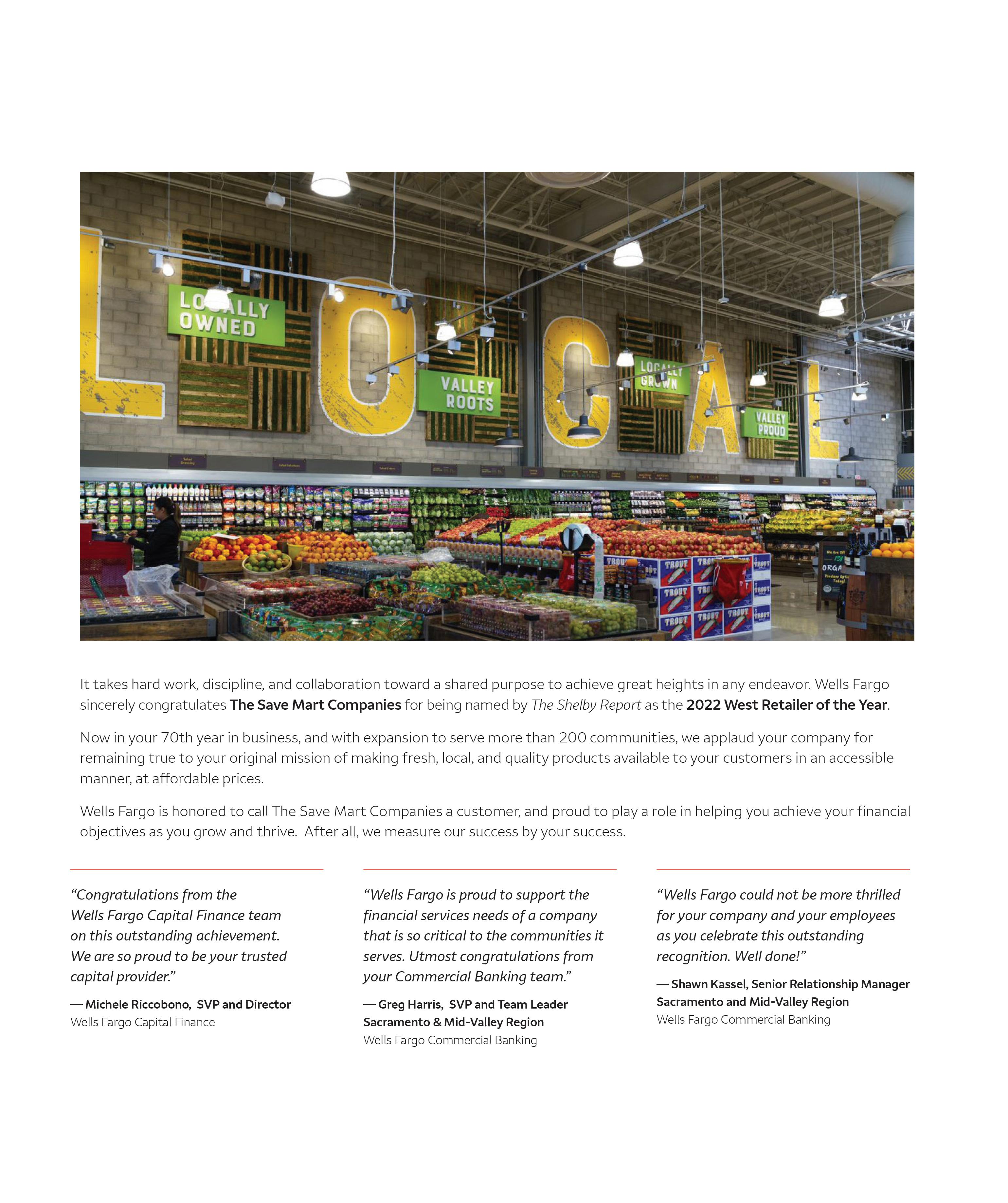
Serving as an innovation lab presents the opportunity to experiment with prepared food dishes.
“That’s where we work on the innovation for the future stores,” said Kevin Cabrera, executive chef at The Save Mart Companies. “Those specific stores are used when we try recipes and get the employees and consumers to try them.”
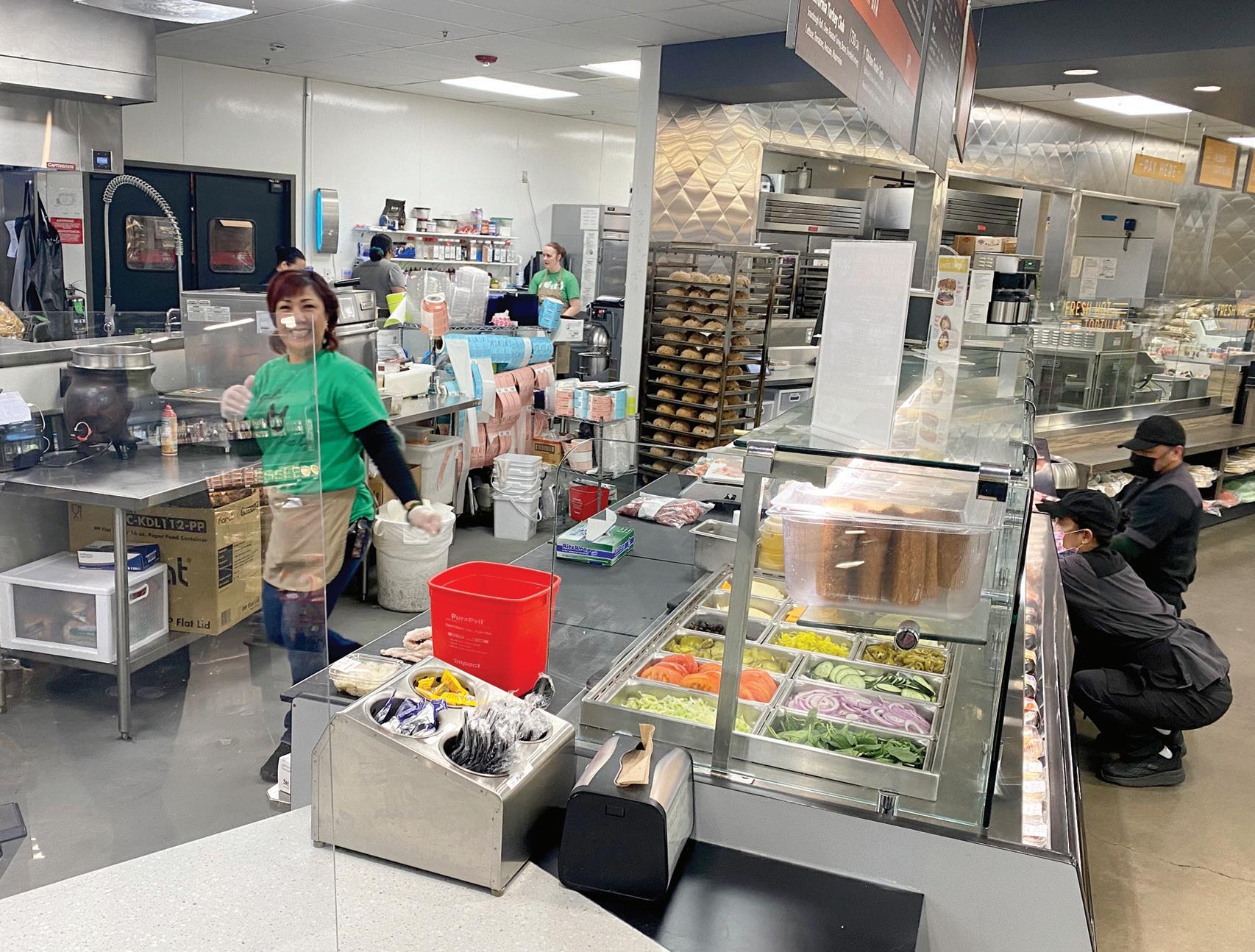
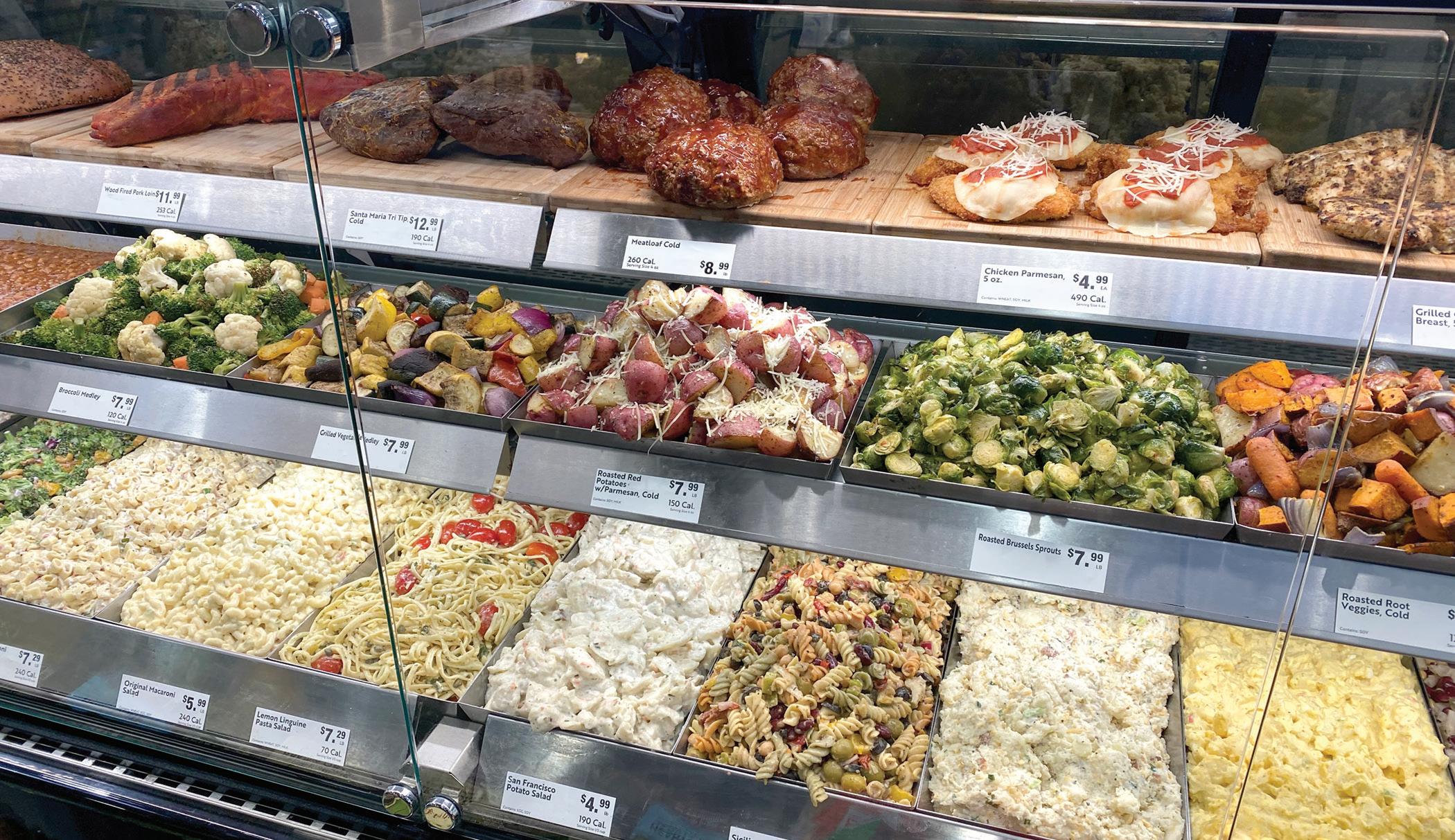


While dietitians focus on nutritional balances, Cabrera said he uses data as guidelines to formulate balanced or healthy dishes.

“For example, we have a pretty big following on our fried chicken. But how do we convert that to healthier offerings, less calories for consumers that would enjoy that, but want some alternatives,” he said.
“As we progress in our company into food offerings, there’s definitely more of a blend of balanced diet and thinking about what consumers eat on different days.”
Cabrera enjoys going to events such as the San Joaquin Asparagus Festival, which The Save Mart Companies has sponsored in the past. These gatherings present the opportunity to do cooking demonstrations, which make their way onto the company’s social media channels and help promote its food culture.
“Our focus is on engagement. We’re continually working to kind of figure out ways to tap into the different demographics of our consumers,” he said.
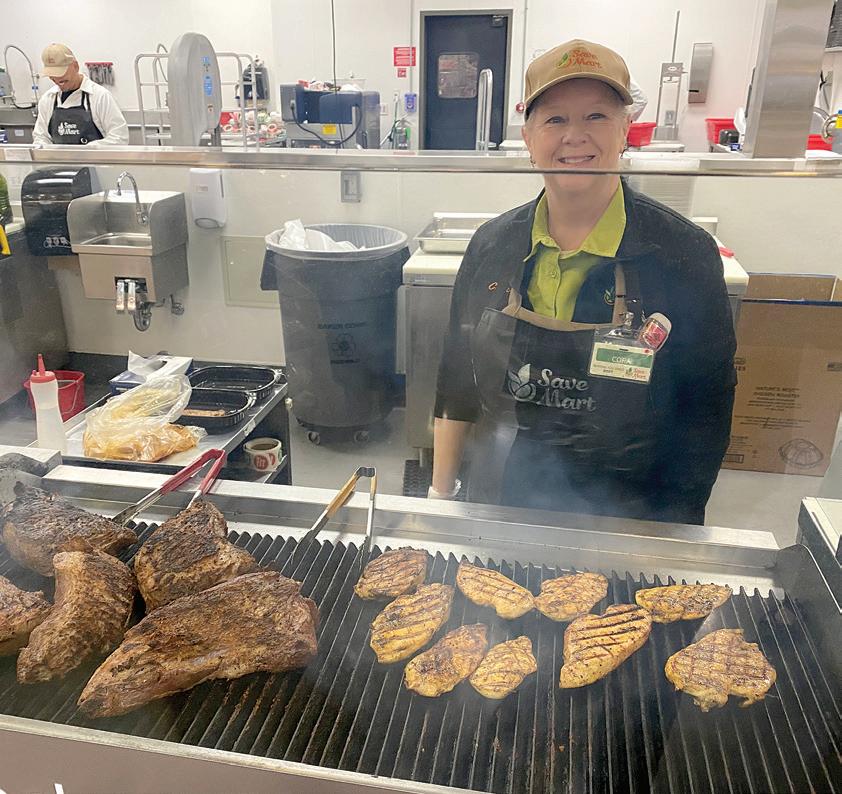
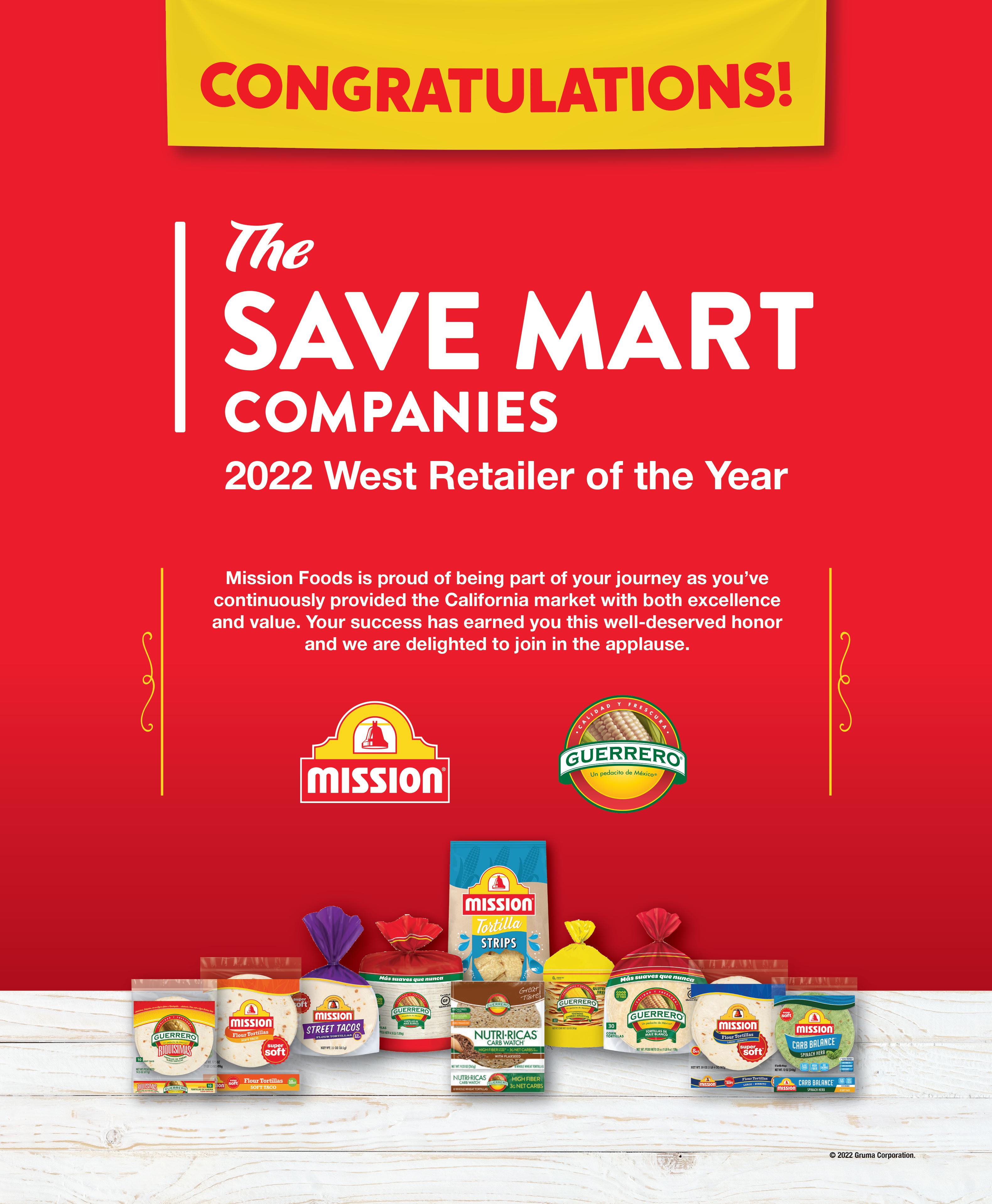
Headquartered in the heart of California’s Central Valley, The Save Mart Companies serves more than 200 communities across the state and neighboring Nevada. The company has been in business for 70 years with Save Mart, Lucky, Lucky California, FoodMaxx and Maxx Value Food stores, distribution centers and a transportation facility employing more than 14,000 team members.
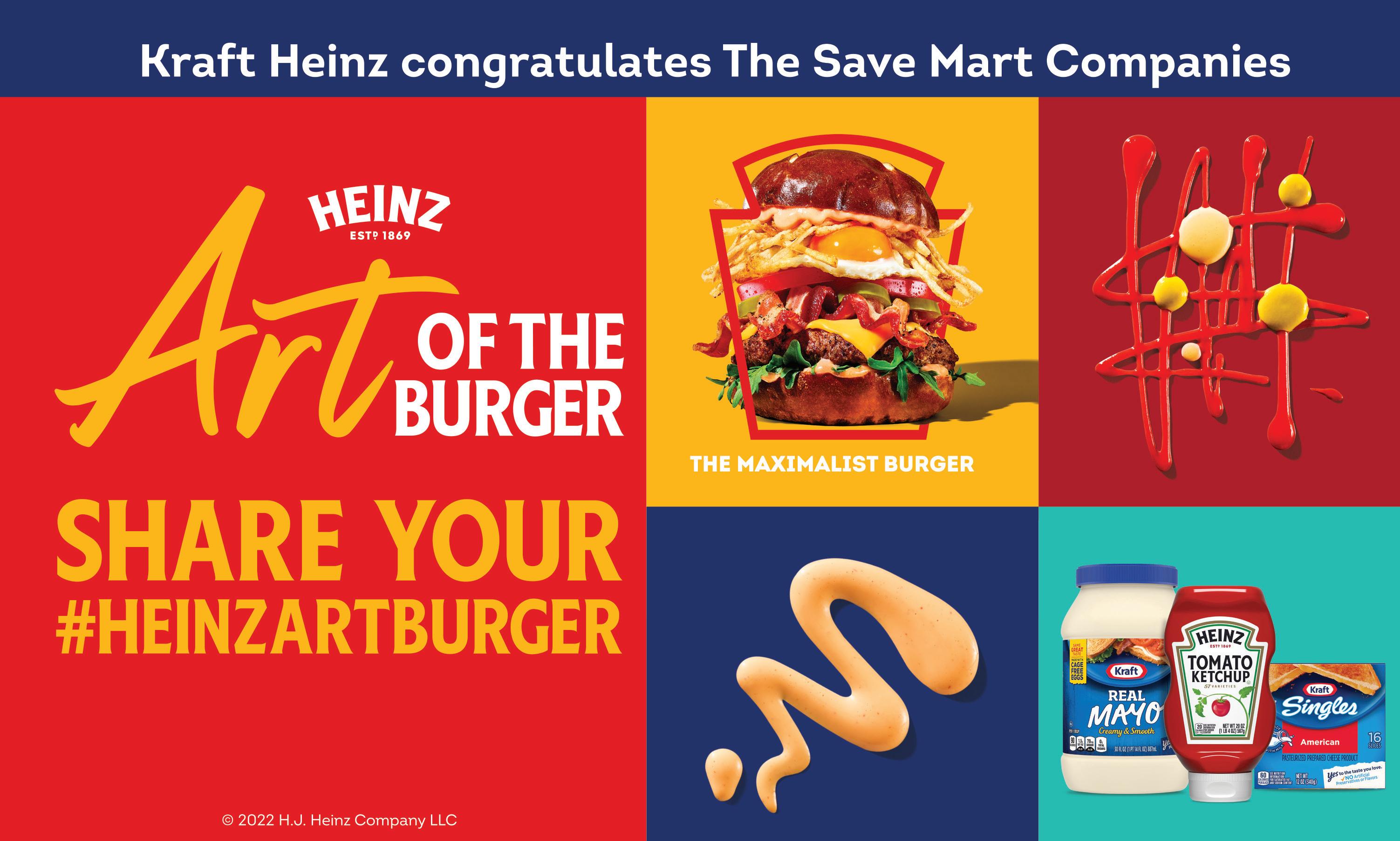

“I think the interesting thing about the Central Valley and the greater Sacramento area – and all the areas we operate in – is there’s a lot of people who did not grow up here,” said George Ross, VP of operations for Save Mart. “You have a very diverse shopping environment, you have a lot of different flavors, a lot of different tastes.”
While the area boasts a high Hispanic population, there also is growth in predominately Asian and Middle Eastern communities, he said.
“More and more people are moving here. This is an area that as you look at California as a whole, is affordable. People can afford to live here and live well. We want to appeal to all of those tastes with our offerings in our environments,” Ross said.
He went on to tout the company’s history with local farmers, particularly since it operates in a major agricultural location.
“[The Valley] produces a ton of the nation’s crops, so we have great relationships,” Ross said. “We can go from a field to shelf in a day. Not many of our competitors can do that. I think that really helps us establish ourselves with our guests. They know they’re getting the freshest, highest quality product.”
Hal Levitt, SVP of retail operations and supply chain, is grateful for many aspects of the company. However, its people-first mindset is at the top.
“We do what’s right by our team members and our customers. And I think we have that mindset of staying with that single point of focus. It can be from anybody in this organization,” Levitt said.
The communication flows from frontline employees to store managers and all the way to Chris McGarry, CEO.
“We are very connected to our people, which keeps us connected to our customers,” Levitt said. “I think that’s probably one of the most important things that we do as a company.”
Levitt, who has worked in the grocery industry since age 16, sees The Save Mart Companies as an organization that stays close to its core and can make adjustments.
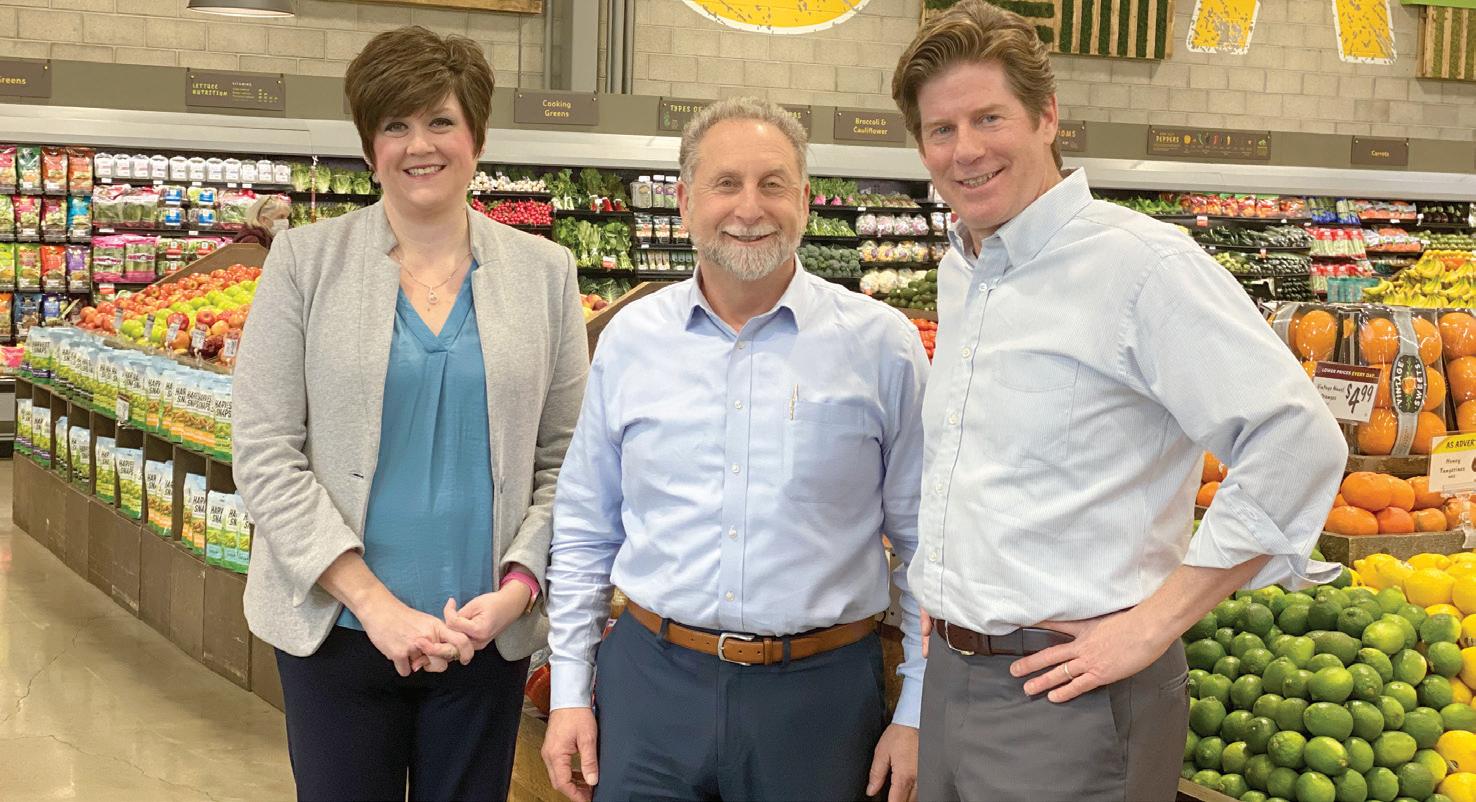
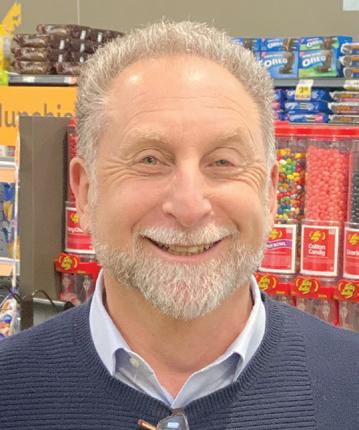

“Coming through a lot of different organizations and being on the frontline for most of my career, I would always sit back and wonder why we are changing direction so frequently,” he said. “It’s very confusing for the frontline teams when a company’s direction changes, whether it’s on merchandising or marketing.
“[But] we stay true to what we say. We do that year over year. We have long-term plans, we stay true. And then if we find that something in our plan is not right, we pivot, we adjust and take the right direction.”
Rebecca Calvin, chief merchandising officer, pointed to the alignment of the executive team and the company’s nimble response time.
“The cohesion of the executive team is something I’ve never seen before,” she said. “Even as I worked my way up through the ranks, I’ve always been lucky to have exposure to the leadership team. But this team, we’re in lockstep. We’re aligned, we make decisions together.
“[McGarry] is a very collaborative leader, he holds everyone accountable, but also fully supports the good and the bad of what happens. We all run at the same pace, which is fast. I always joke about proverbial running shoes or sprinting shoes, depending on what day of the week it is. I think the secret of our recent success is how aligned the leadership team is.”
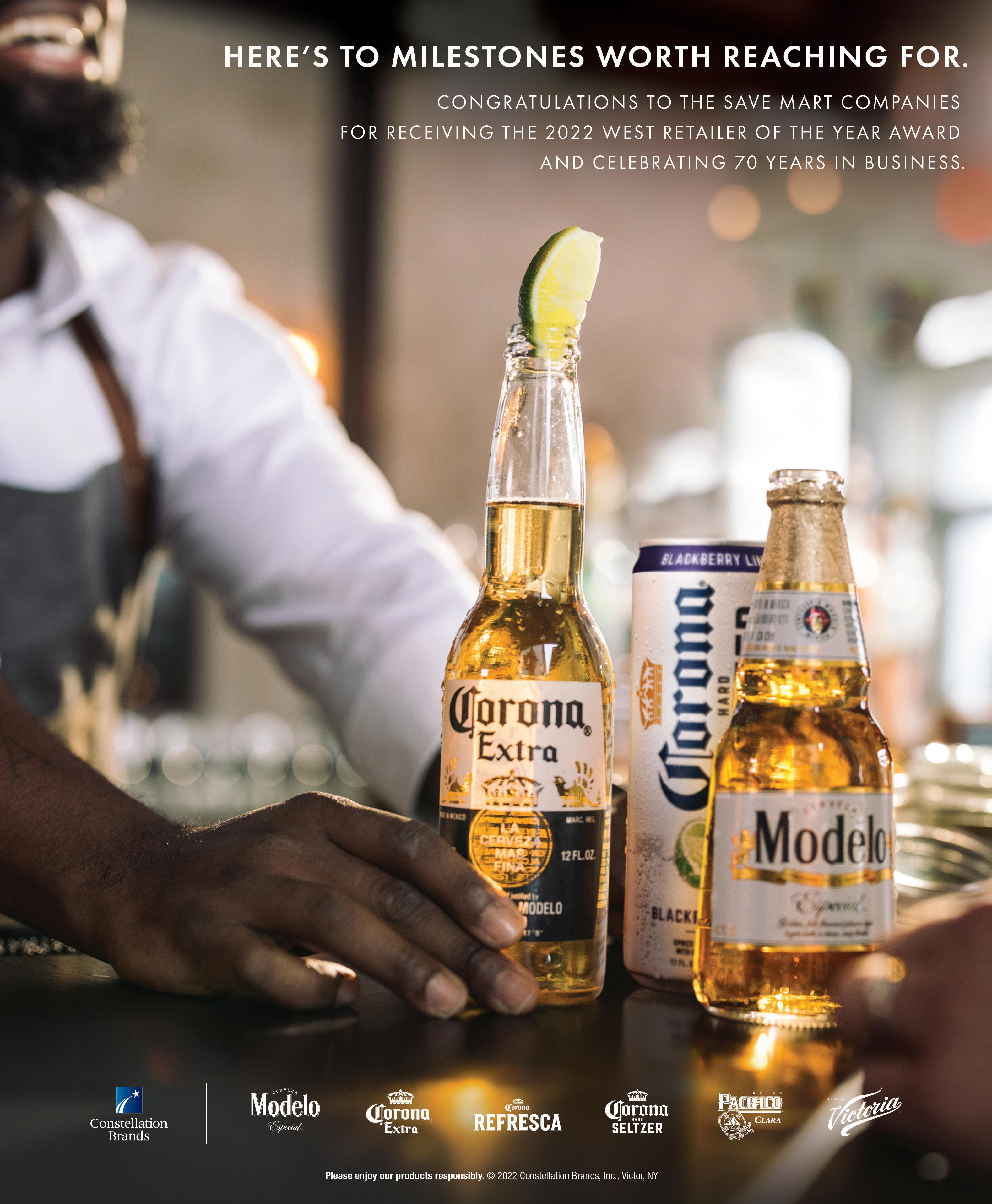
Zeb Early, VP of frozen, dairy, deli and dry grocery, has been with The Save Mart Companies for close to 20 years.
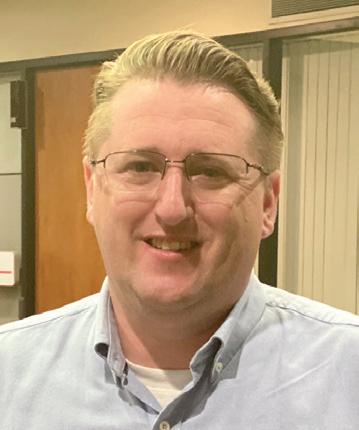
He attended college at Chico State and, while there, started working for a grocery store on the night crew. He later worked with a small independent group that was acquired by Fleming, which in turn went bankrupt around 2002. Fleming sold its retail stores to The Save Mart Companies, and that’s when he joined The Save Mart Companies under the FoodMaxx banner. Early recalled how the late Bob Piccinini, Save Mart owner, visited all of the stores.
“Bob was very much about the people,” Early said. “He came in and he spoke to the people. He respected the knowledge and the integration of the people into the company. So we’re always people first, from our associate standpoint.”
Early said having started with a small, family company and then working for a much larger, publicly-held company, the family atmosphere at The Save Mart Companies “was definitely a differentiation point.”
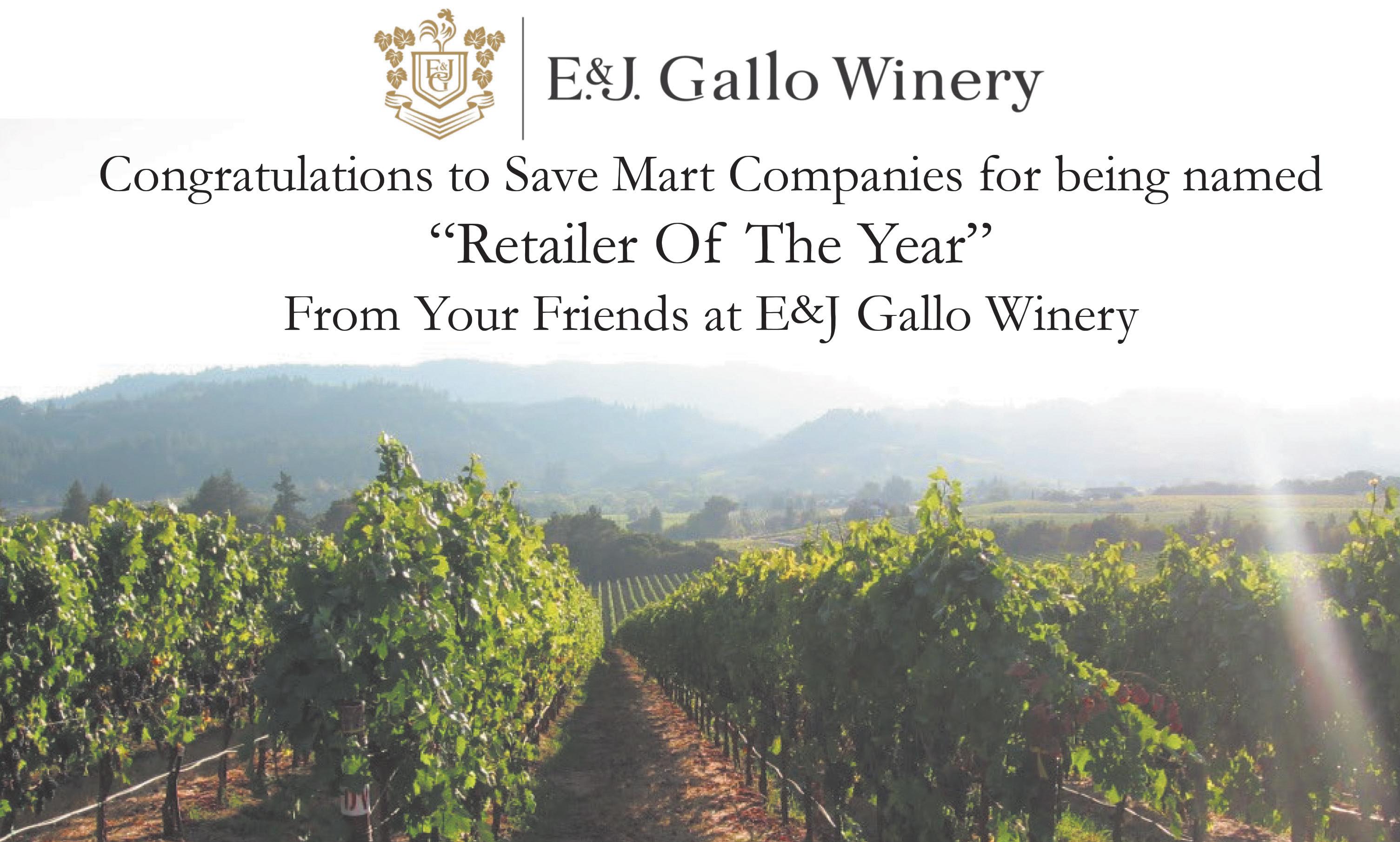
He said Save Mart grew again, more than doubling in size, with the acquisition of 100 Albertsons stores about three to four years later.
“We grew different people with different talents and different backgrounds and skill sets. But we integrated those throughout the company particularly well throughout that time,” he said.
The points of view and practices of those new to the company were respected and some became part of Save Mart’s corporate initiatives.

“As far as the actual integration of each individual business unit, there was a full team that was put onto it,” Early said. “And there was a rebranding of the stores to brand them Lucky, with a big celebration at each store as we did it.”
He said he was running stores in the Bay Area at the time and recalled there was some integration of people between Save Mart Lucky at that time, or Save Mart Albertsons, but there was definitely more of an identity to move those stores back to the Lucky banner.
Early, who is married with three children, said he loves his current job because it’s ever changing and always interesting.
“There’s always a new challenge, new products from innovation, bringing food to our customers, trying new ideas from the merchandising and sales aspect, how to bring new products to life,” he said. “I have a fun job, a challenging job. I have a large team that does phenomenal work.”
He said one of the things he appreciates about The Save Mart Companies is the ability to move nimbly.
“Northern California – this is where we understand our customer base” and can compete from a
price and from an innovation standpoint.
“This is, I would say, a dream job…I enjoy tremendously what I’m doing. But there’s also opportunities where you will look at those as they come about,” he said. “And definitely you can look at operations.
It’s fun to actually be with the people that are making changes in those neighborhoods every day and working with them. Then there’s other opportunities in merchandising.
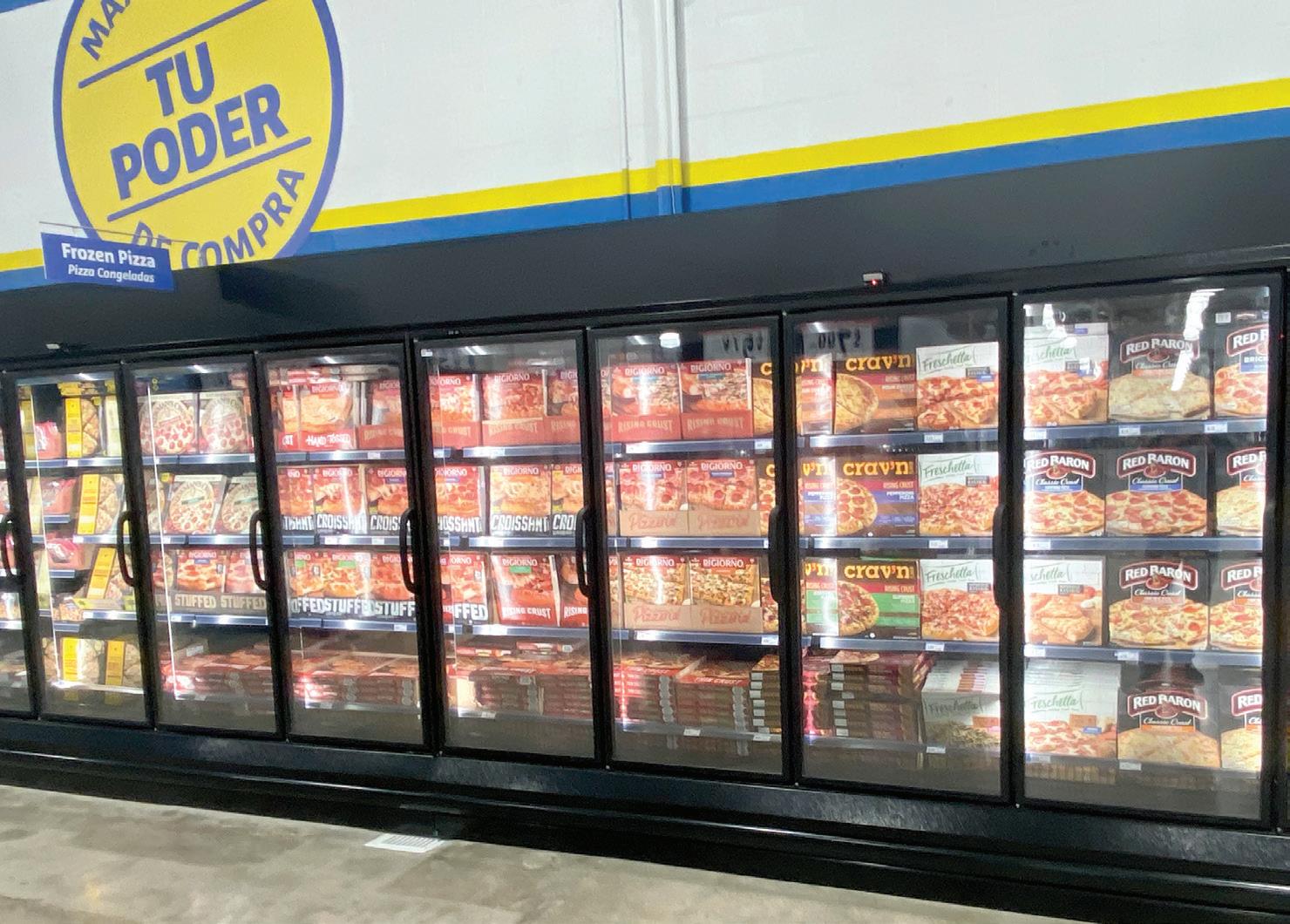
“That’s one of the things I enjoy the most is we do have the opportunity – with the knowledge base and the skill base – to grow inside the company.”
Early appreciates the three banners – Save Mart, Lucky and Food Maxx.
“I think it’s a huge, fun piece as far as from a merchant and from a business standpoint, as to how to look at that customer as well as how we can serve them better,” he said.



James Gillespie is senior director of local merchandising at The Save Mart Companies. He acknowledges it’s a department not found at most retailers.

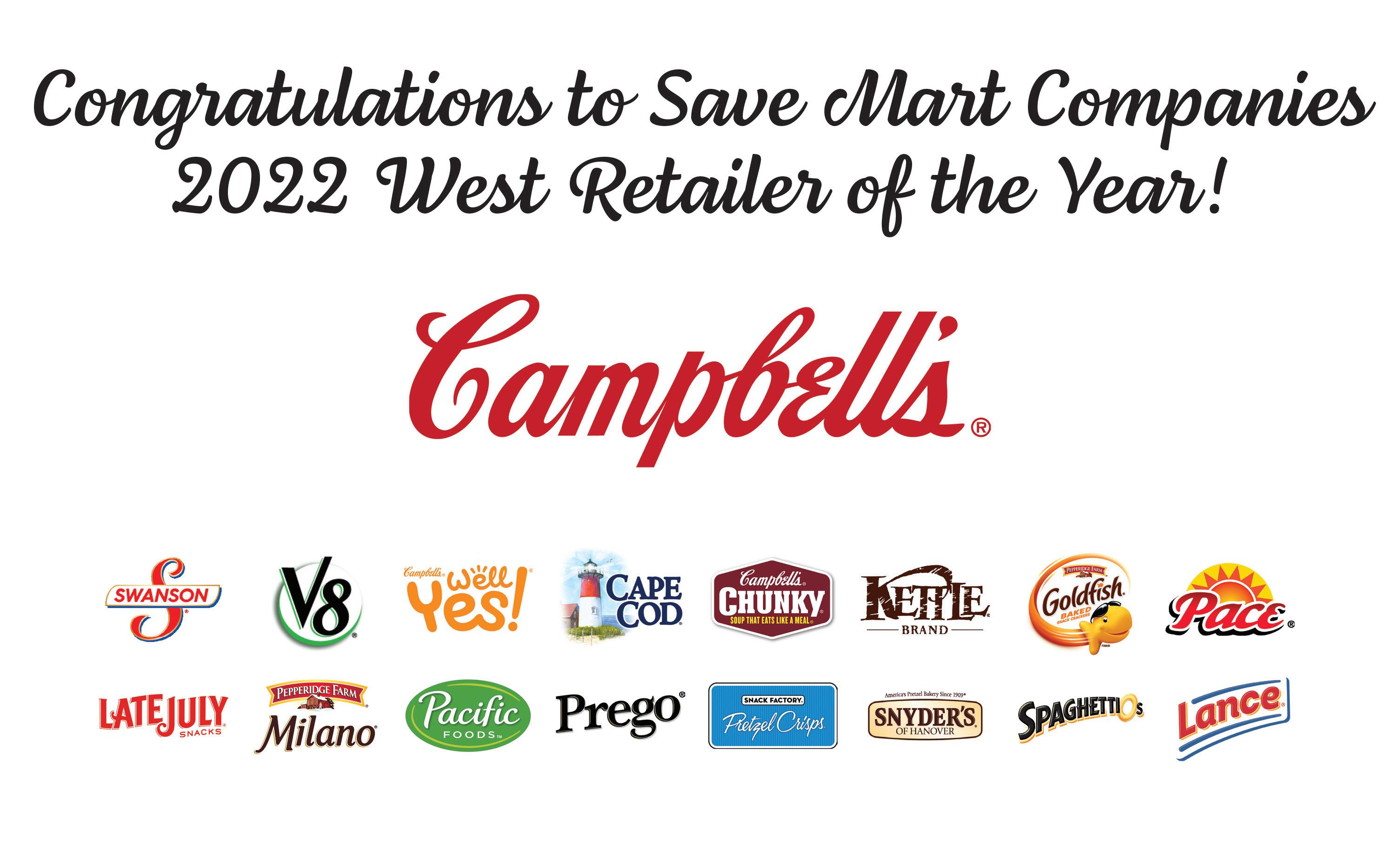
The local merchandising department tries to find those products that are important to local shoppers in each neighborhood.
“It’s about getting our stores to be merchandised to the neighborhood to what our consumers are looking for,” he explained.
Gillespie said the department goes after local vendors, such as a popular bakery in Livermore or a brewery in Sacramento. The goal is to find the places consumers visit and bring those products in through the stores.
“We can get it unique to the store, to the neighborhood, to the county,” he said. “And as these vendors grow and they’re good products for us, we grow with them.”
It’s possible for a product initially carried in one or two stores to eventually expand across the entire banner or even all three banners of The Save Mart Companies.

Gillespie has been with the company for 31 years, starting off in stores in the Bay Area. He worked his way up through operations, store management, operations supervisor and then moved to the headquarters where he started in category management and buying. He moved into his current position late last year, following the retirement of his predecessor.
Gillespie’s wife of about five years also works for the company and has for more than two decades, he said. They have a blended family with five daughters between them.
“She’s an assistant manager at one of our stores. So when we say Save Mart family, we are a Save Mart family,” Gillespie said.
While the COVID-19 pandemic created supply chain challenges for nearly all grocers, Gillespie said The Save Mart Companies was in a good position.

“As products are unavailable with some of the major CPG companies, we were able to lean on a lot of local vendors to help supply
our consumers with products on our shelves,” he said. “It’s a little bit of a different scenario, but our customers in our stores really look for those local products.”
Gillespie said they find local vendors a variety of ways but the most common is through store managers.
“Our store managers reach out to us…they’ll send it to us, and we go after it and look for that vendor,” he said.
Just identifying local vendors is not enough, as they have to meet the legal and food safety requirements to sell products in California.
“We like to say that if we’re really interested in the product, we give them time and we give them the steps that they need to do in order to be legal to be able to sell in our stores,” Gillespie explained. He noted that the department is unique in that, financially, it covers every department in the stores.
“My hands are dipped in produce and meat and grocery, liquor, wine – we’re in wine country, right? So 80 percent of the wines we carry are technically local. I kind of have my hands in all of it,” he said.
Identifying and partnering with local vendors is an evolving and fluid process, he said.
“Part of my job is how do I make that store in that certain neighborhood reflect that neighborhood in the products that people want to sell,” said Gillespie, adding that it’s not just local but ethnic products as well.
“That’s what our job is – how do we be the local store for all our consumers? How do we get to that neighborhood?”
While The Save Mart Companies has evolved over the years, one thing hasn’t changed to Gillespie – the family environment and atmosphere.
“The culture is still in place today as it was when Bob [Piccinini] was here, and it lives throughout all the stores, the offices, everything…the foundation of how Bob built this company still lives and breathes today.”
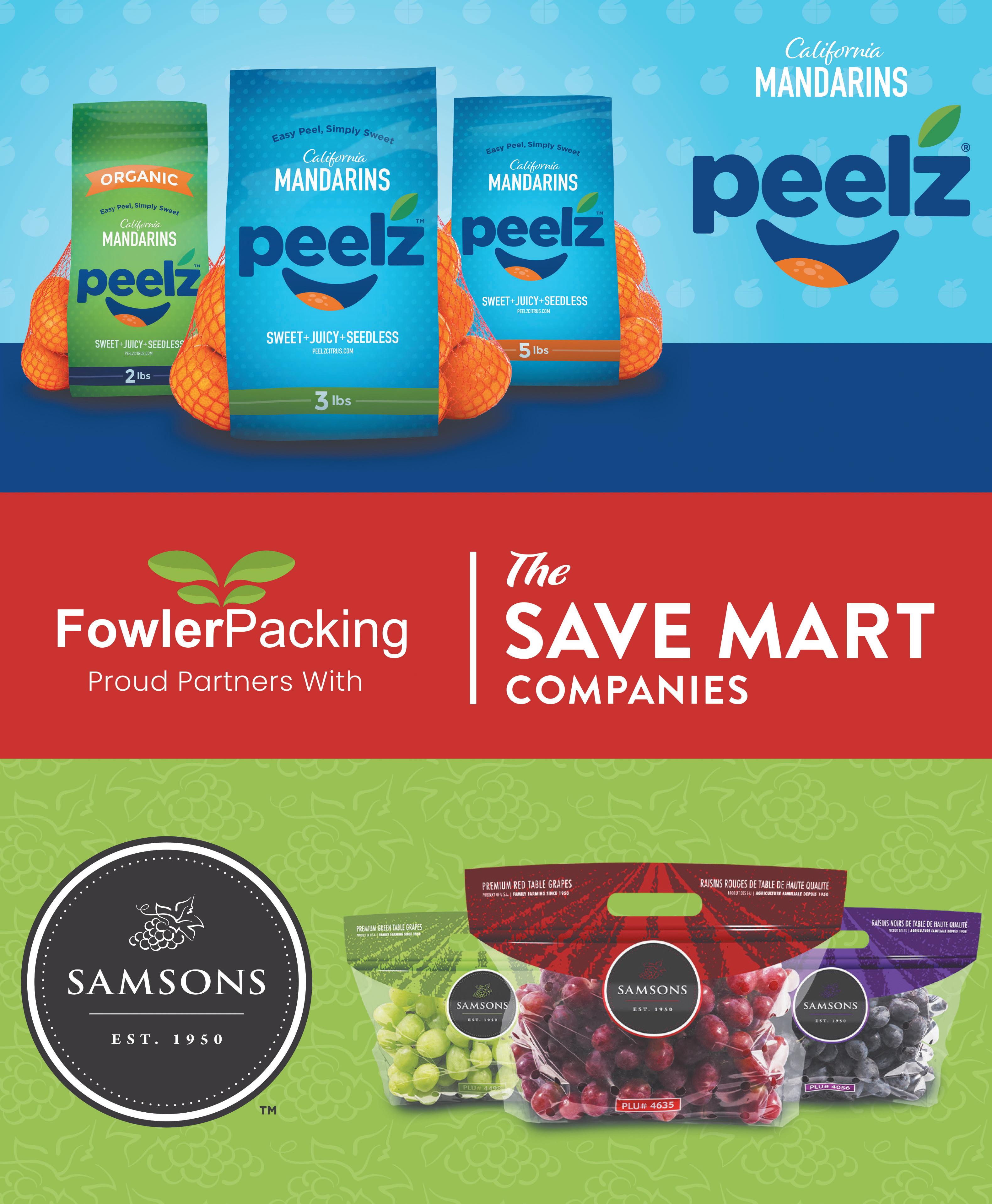
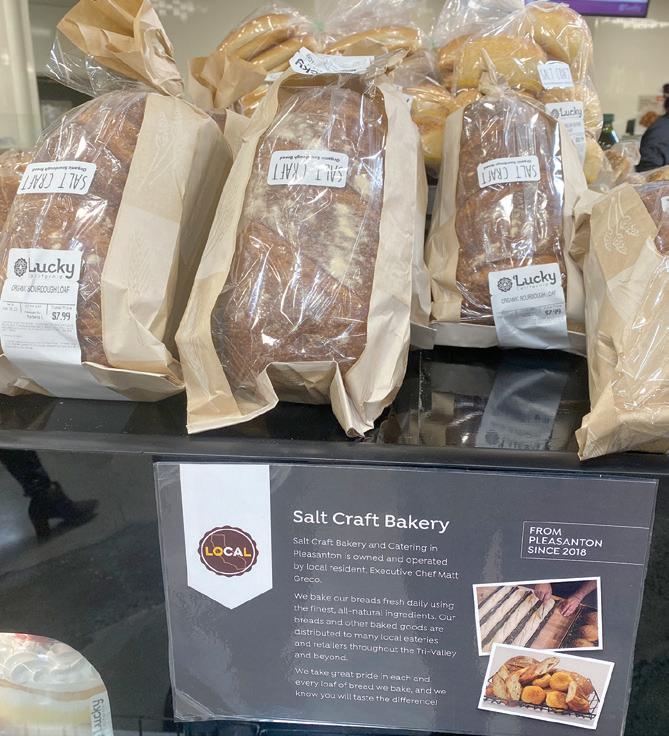
In celebration of The Save Mart Companies being named The Shelby Report of the West’s 2022 Retailer of the Year, Lucky California Store Manager Mario Guerrero led Shelby’s Bob Reeves on a tour of the company’s store in Pleasanton, California.
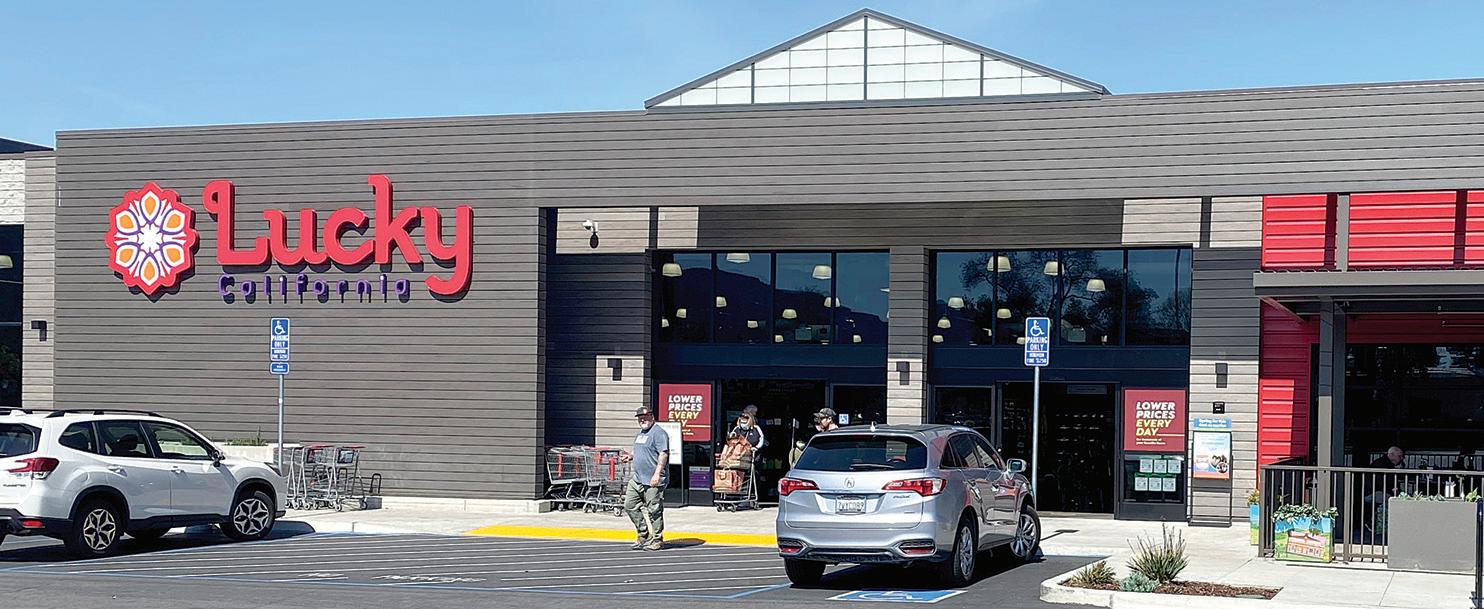
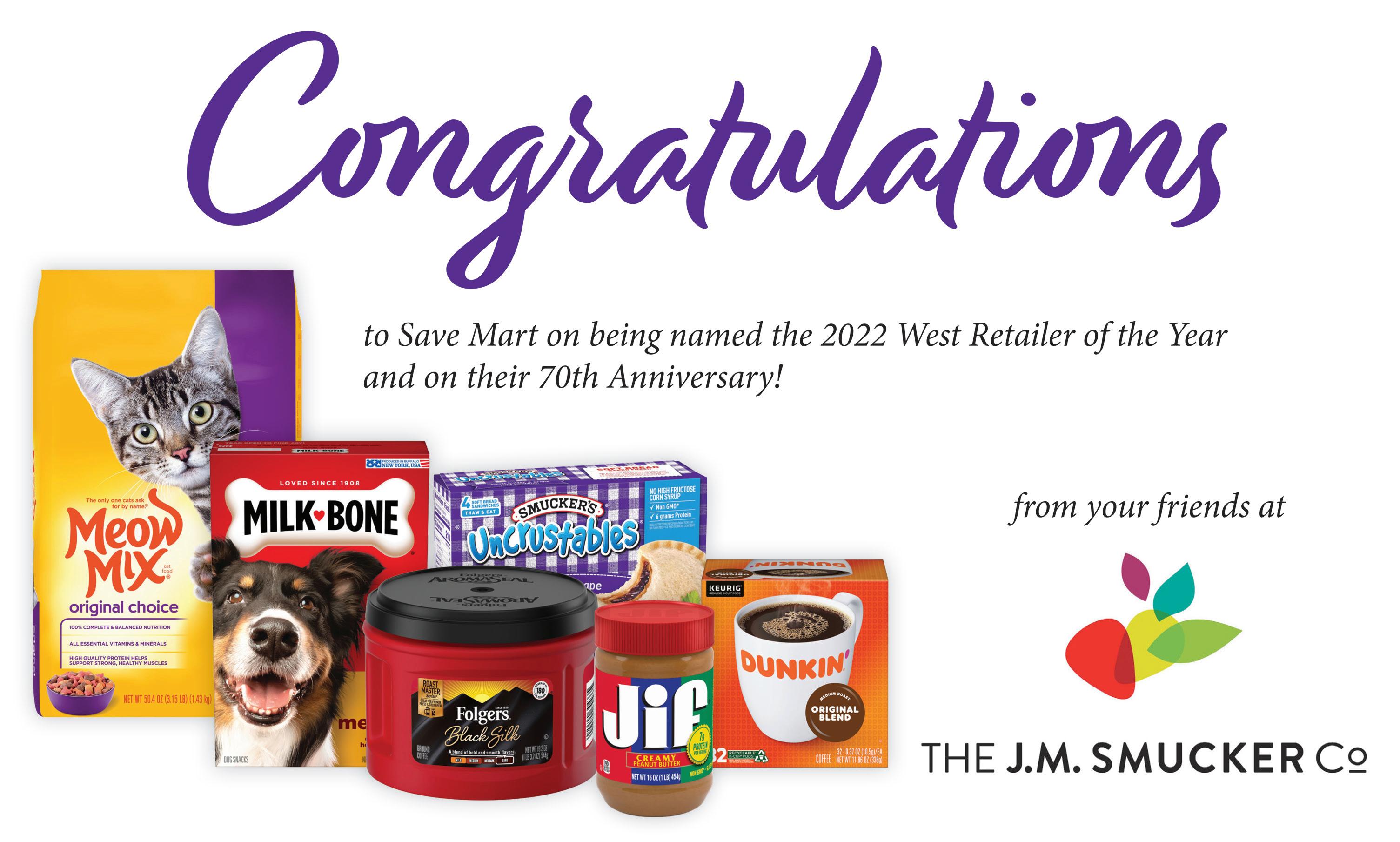

Lucky is a banner of The Save Mart Companies, along with Save Mart and FoodMaxx. Guerrero, a native of Hayward, has been with the company for 22 years. He said Lucky California wants to be known as that “traditional grocery store with the plus.” That includes walking into the store and smelling the aromas of regional foods cooked in-store. There is also a demo station that’s used on weekends, where employees create a “culinary craft recipe” for home cooks to follow and taste.
“All you do is download the actual recipe on the QR code,” Guerrero said. “Everything’s there for you – you’ve got your protein, you’ve got your veggies and anything that’s grocery related is right there. It’s a onestop shop.”
Another aspect of the store is the huge emphasis on local products. Guerrero said several local items are featured in The Drinkery, including the top craft beer on tap, Maui Waui from Altamont Brewery.
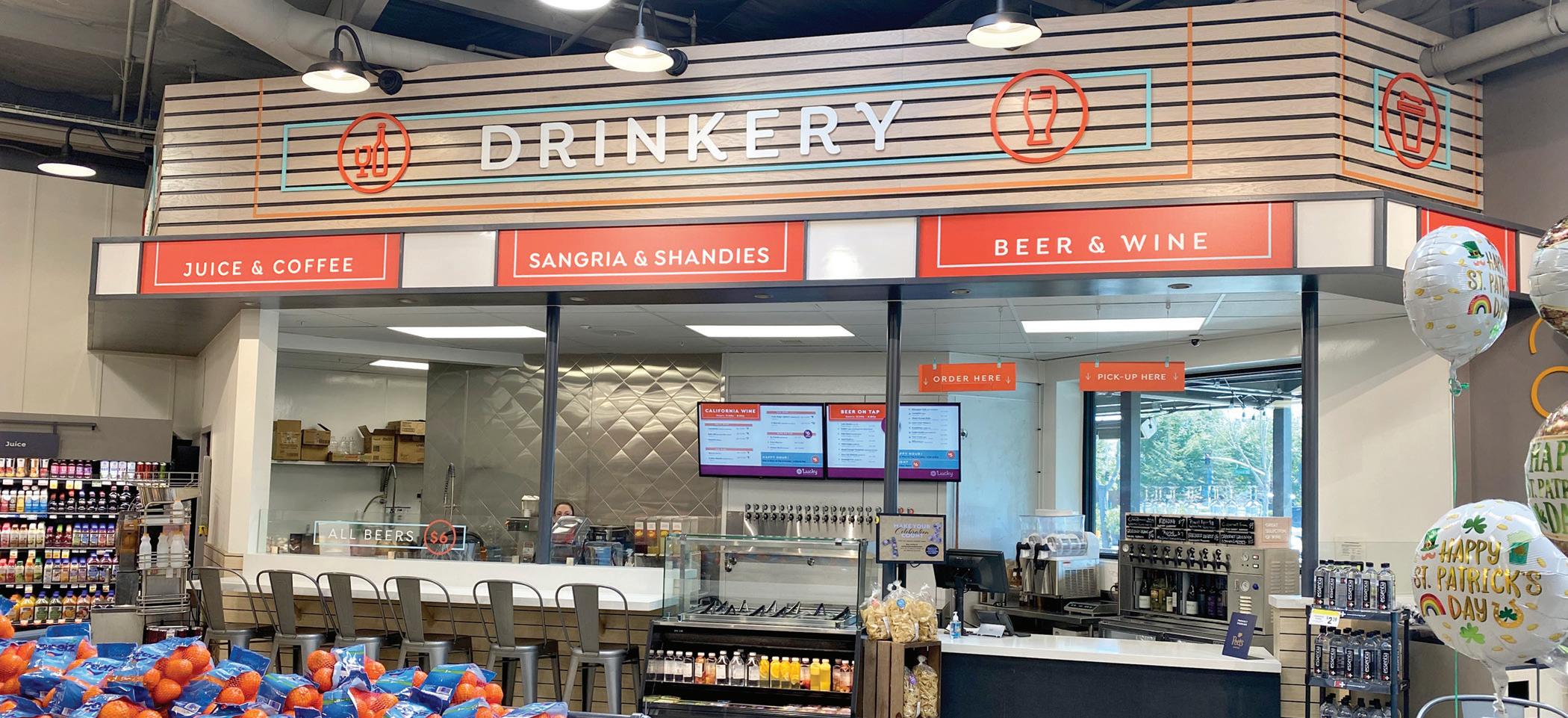
“Customers know where to get it and its price is in line with our competitors,” he said. “We have a lot of local items featured throughout the store. We’ve got the hummus as we go into the entertainment island. It’s local here in California, and we’ve also got hyperlocal.”
Guerrero said Lucky customers love the local items and, through signage and other methods, the store tries to educate them.
“One thing we want to be known for here in Pleasanton is, as you walk in, we’re not your traditional grocery store,” he said. “There is a lot of emphasis on fresh-baked bread, your local home fried country chicken, rotisserie chicken. And once we walk into the service deli, you’ve got a lot of the proteins that have a side that will complement them.”
The Drinkery features smoothies made by one of Lucky’s drinks specialists, as well as 16 beers on tap – many of them local, Guerrero said.
“It’s all drinks,” he said. “One of our things that we do produce here is our jalapeño lemonade. We cook our jalapeños, slice them up and make this simple syrup. And then we squeeze lemons and it’s very delicious, not spicy at all.”
Please see page 66
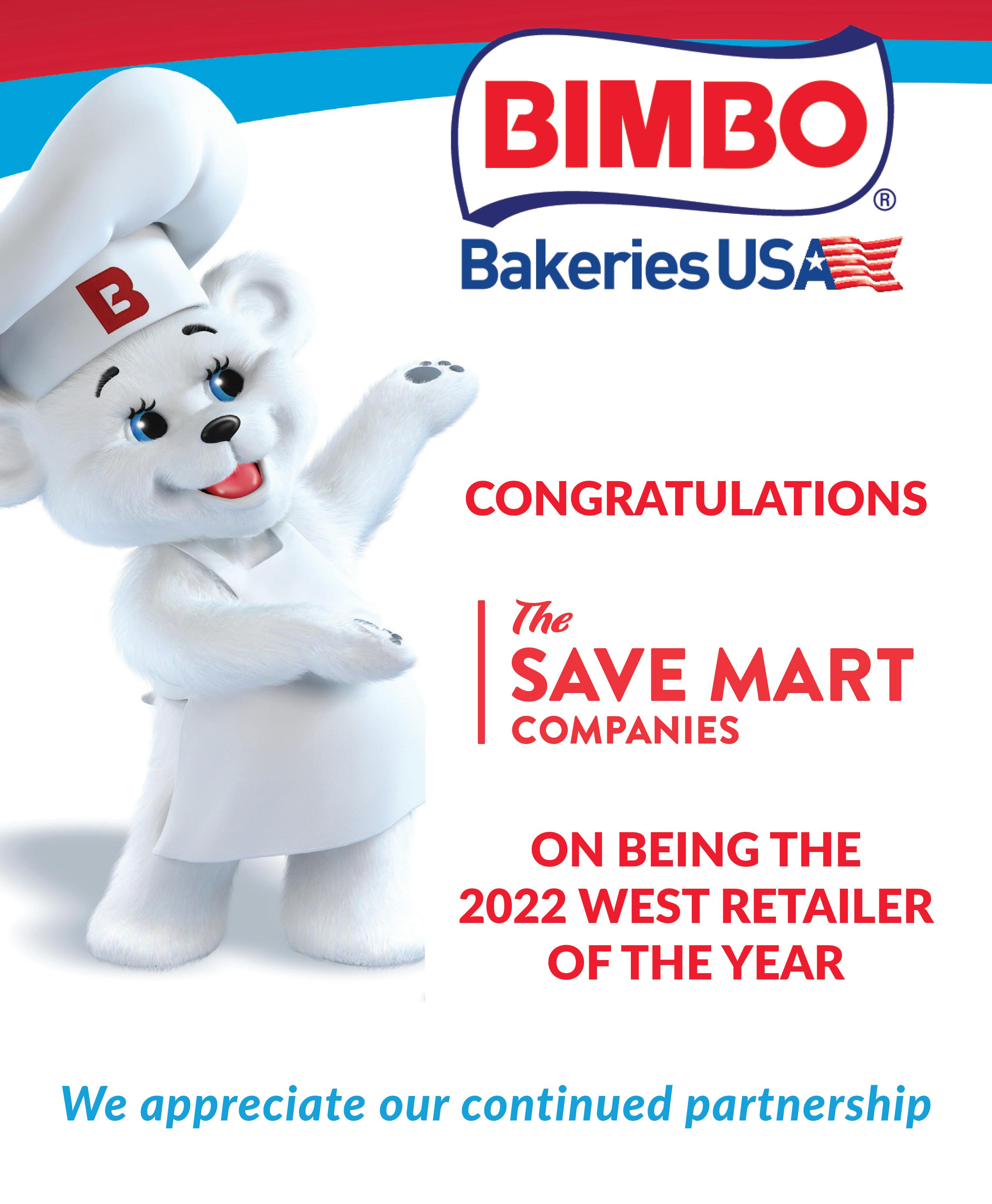
From page 64
Hal Levitt, SVP of retail operations for The Save Mart Companies, said produce is important for the region’s demographics and customers walk into that fresh experience.




Guerrero, who started his career as a service specialist in San Lorenzo, said he enjoyed working in produce. He was quick to point out the cutting station.
“One thing that I tell our cutting specialists is to make sure that we taste it before we put it out there,” he said. “Because it may look good, but we want to make sure that’s quality product…we want to make sure everything’s nice, crisp, the labels are spun.”
Guerrero also discussed an area that features international brands.
“There’s a lot of Asian and Indian descent within our community. You’ve got dragonfruit, starfruit, kumquats,” he said. “When you’re sick, ginger and turmeric are your go-to.
“Then, you have your classic comfort food here that we want to also offer. Every day, the recipe changes. If you have somebody who likes our Tex-Mex enchiladas, you know to get them on Wednesday.”
The store uses items from the Smoke and Fire barbecue area to produce new items, such as enchiladas, tamales or lasagna.
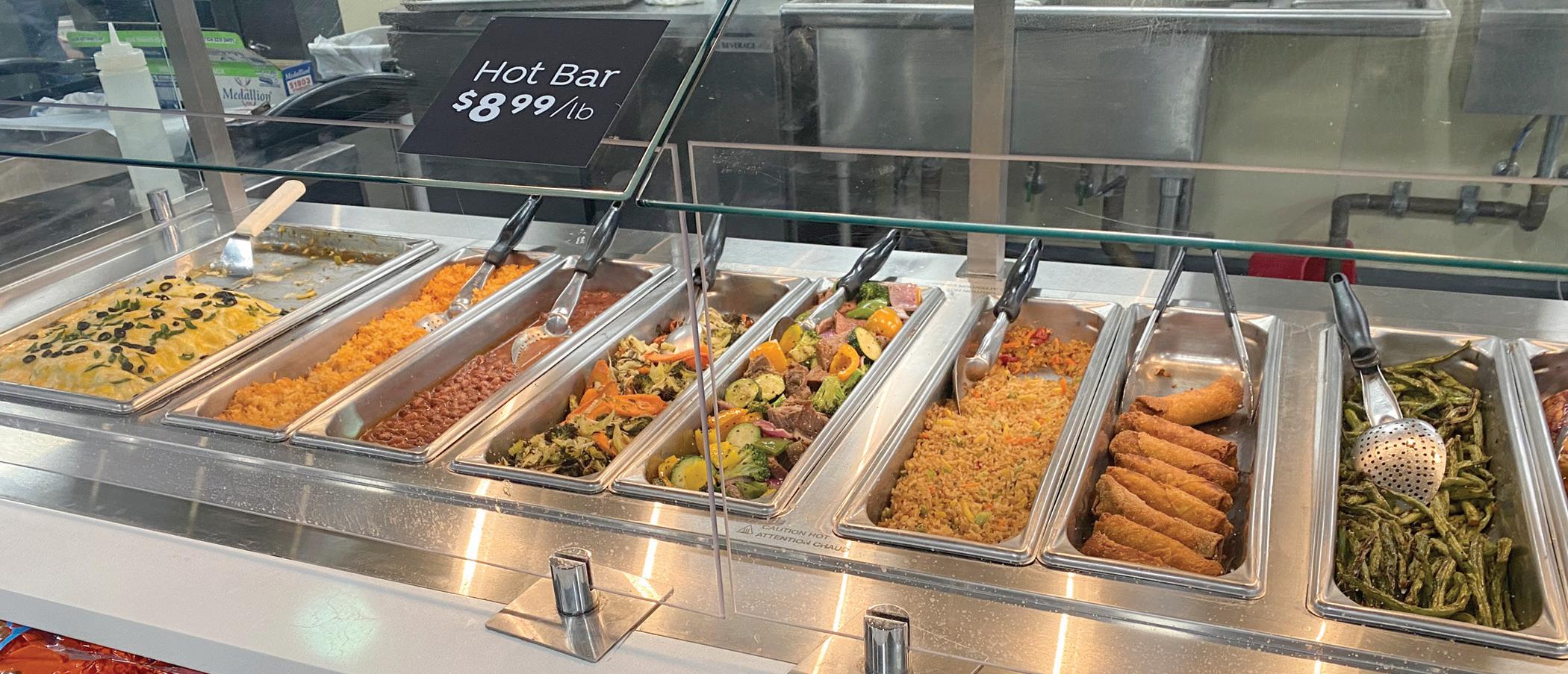
“It’s more sustainable,” Levitt said. “We’re keeping items fresh in other areas, and then we produce other foods from those items.”
Guerrero next turned to the salad bar, where customers can pick toppings. It also features soup and ceviche, always popular in California. The area also features a sushi chef who prepares food in-house, all customizable.
“These are all internal recipes,” Levitt said. “They’re not coming in packaged. They are producing these items here in the store. Our chef, Kevin Cabrera, works on developing different recipes for us. And it’s all produced in-store.”
Guerrero walked to the entertainment island, which is a destination for a celebration – party, wedding, birthday. Charcuterie boards are available, along with fresh fruit, chips and guacamole that is made in-house.
Please see page 68
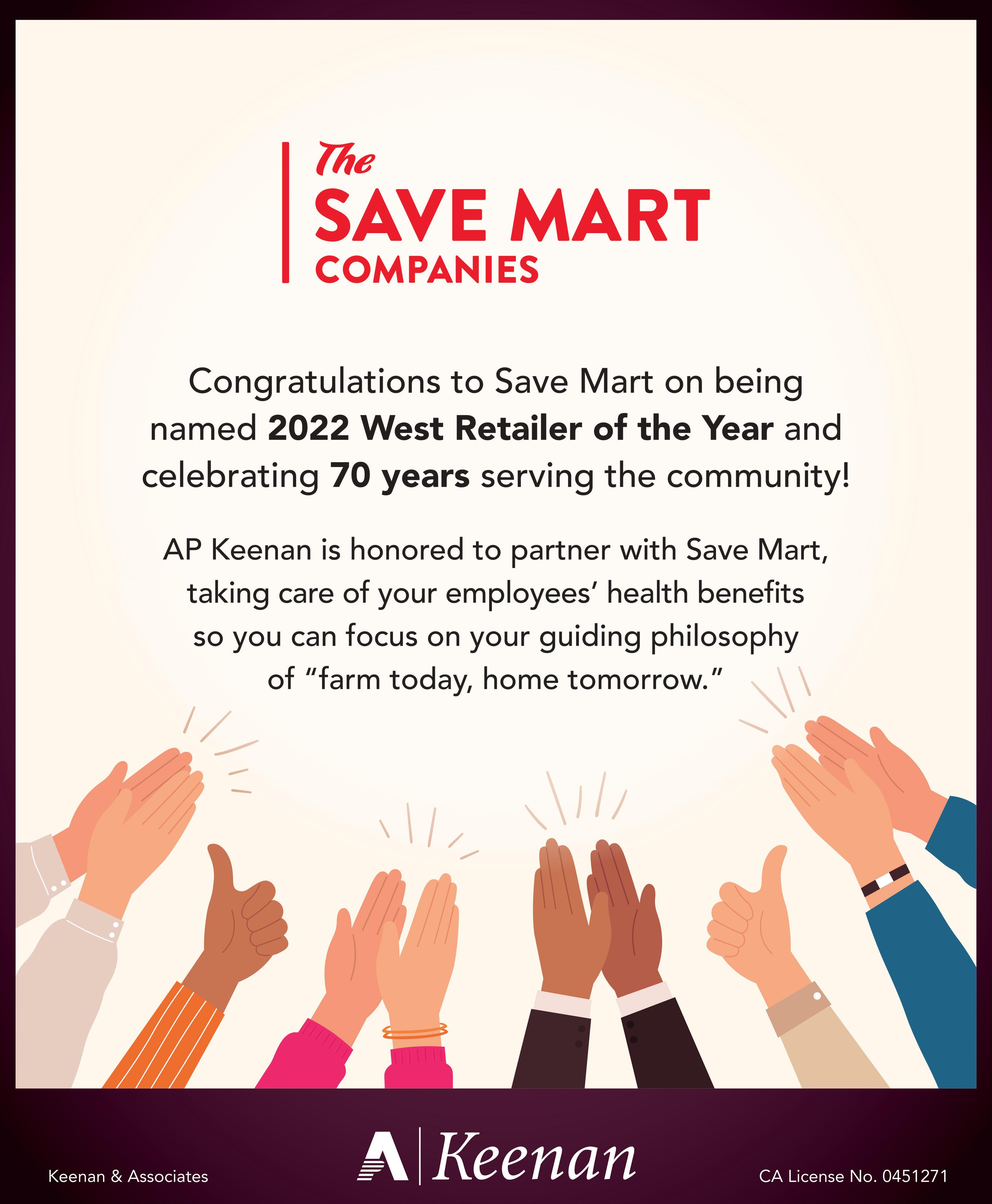
“If you’d like it spicy, we can throw some habañeros in there to give you that kick,” Guerrero said. The entertainment station can produce any type of party trays or charcuterie board, which also is customizable.
“We have some of our guests that bring their actual wooden boards here, and then we just fill it up. They can tell their friends they got it made at the local Lucky…we’ve got veggie trays, bean dip trays, flat breads, dips, spreads and our customized charcuterie boards.”
Guerrero referred to Salt Craft Bakery items, which feature the local sign: Pleasanton since 2018. He also pointed to a two-tier colossal raspberry cake and single-serve cake options.
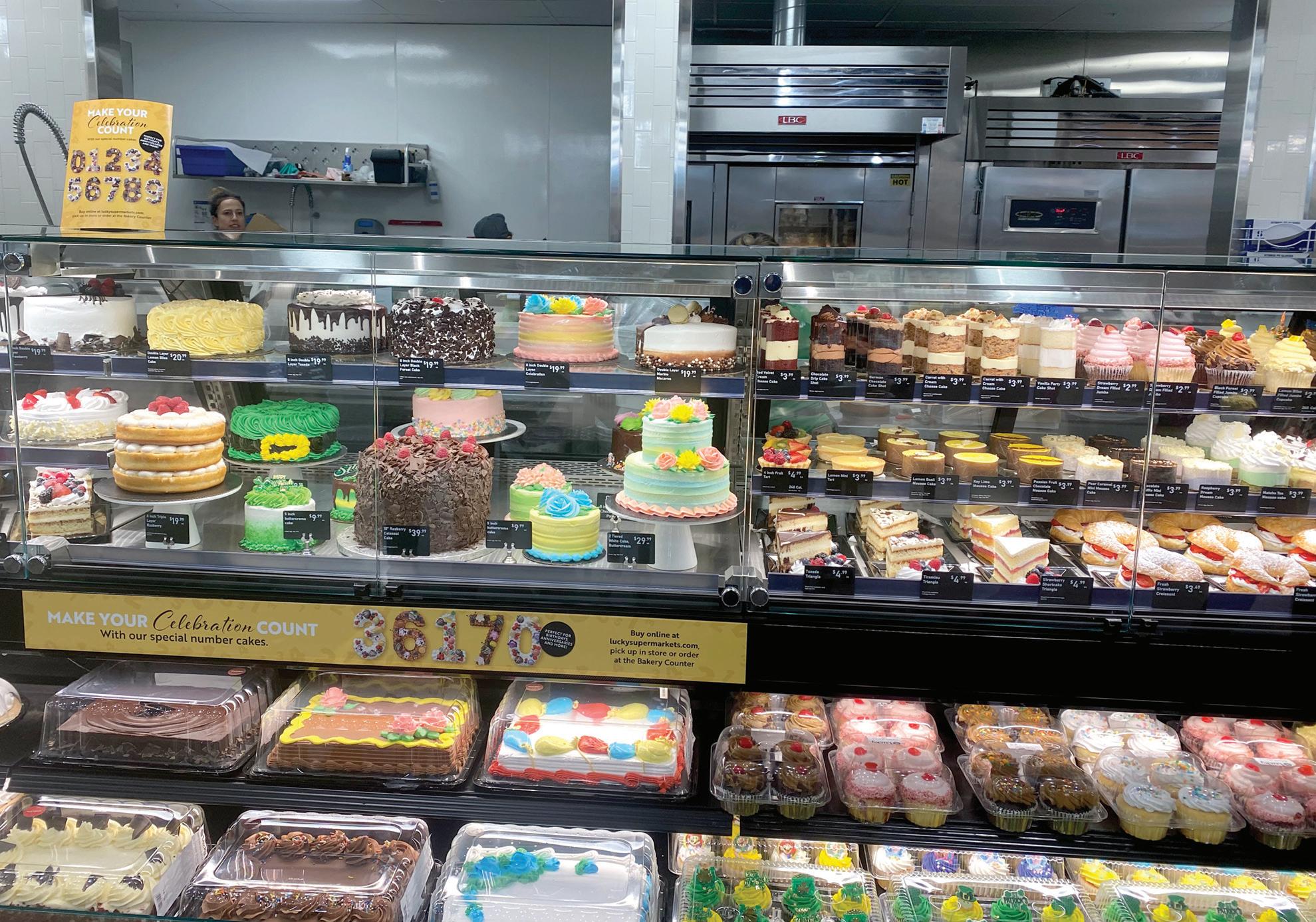
Bobby McDowell, VP of store operations for the Lucky banner, said the latter has taken off in popularity.
“One of the trends that I’ve seen that people do now when they’re entertaining, instead of buying just a large cake, which a lot of people still do, they’ll buy multiple small things and have people just take pieces…I think it’s a trend that we’re in front of.”
Guerrero noted local items featured from Sheng Kee Bakery, based in San Francisco since the 1950s.
“It’s a great product and it pertains to our Asian clientele. People are really hooked on this item,” he said of the pineapple buns. Also featured nearby are items from Ariana Sweets, a Middle Eastern bakery.
He also noted the recipes available to shoppers, featuring two ways to make a meal – a ginger beef stir fry or beef fried rice.
Rebecca Calvin, SVP and chief merchandising officer for The Save Mart Companies, said the recipes are important.
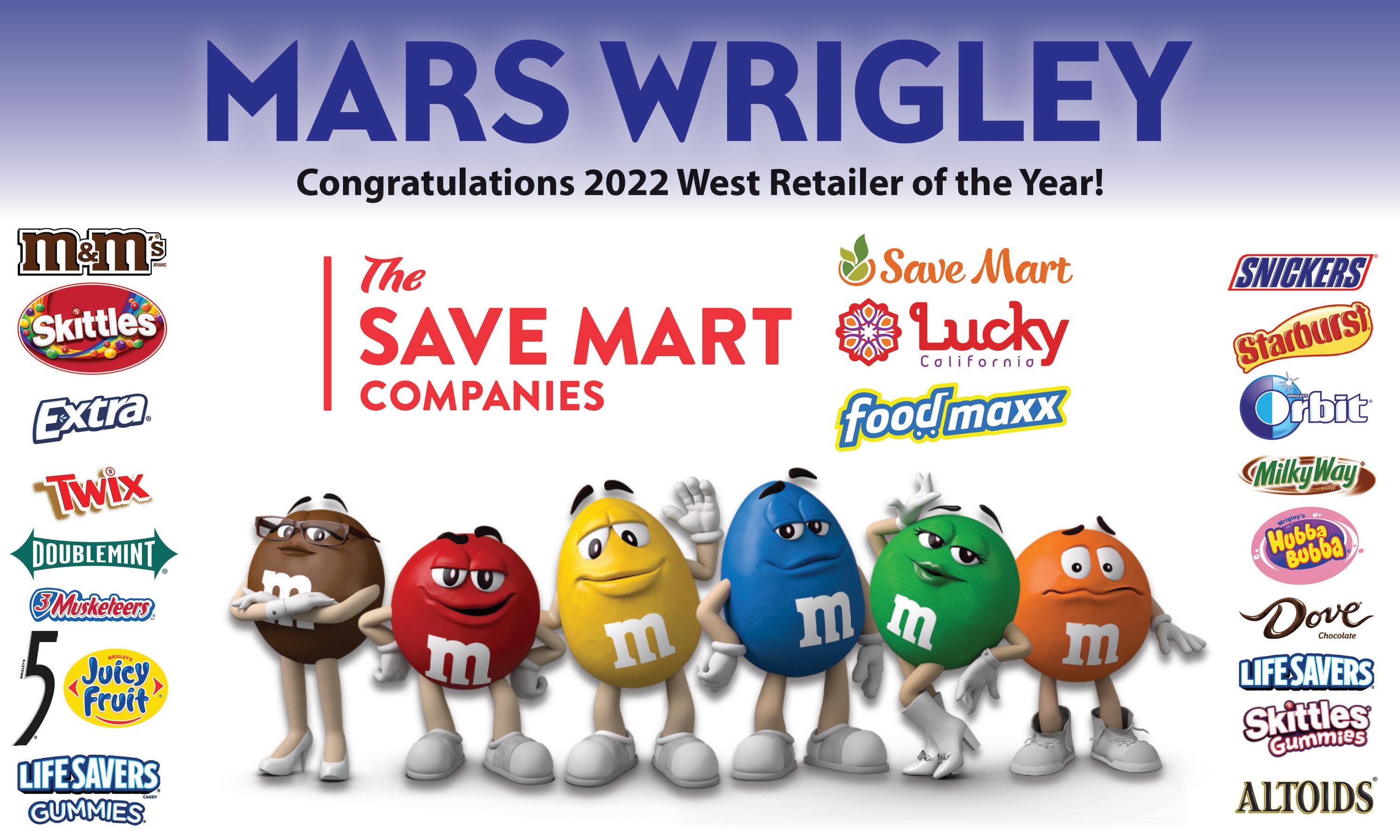

“This was our way of celebrating how the Bay Area eats, by having these recipes. But it’s all of the ingredients plus general merchandise,” she said.
“This store is one of the top stores in the company for cookware, because we feel like we brought everything together in one spot to inspire one to make the recipe at home, learn how to do it with QR code activation and here you can watch it – plus you have all of the ingredients in one spot.”
Please see page 70
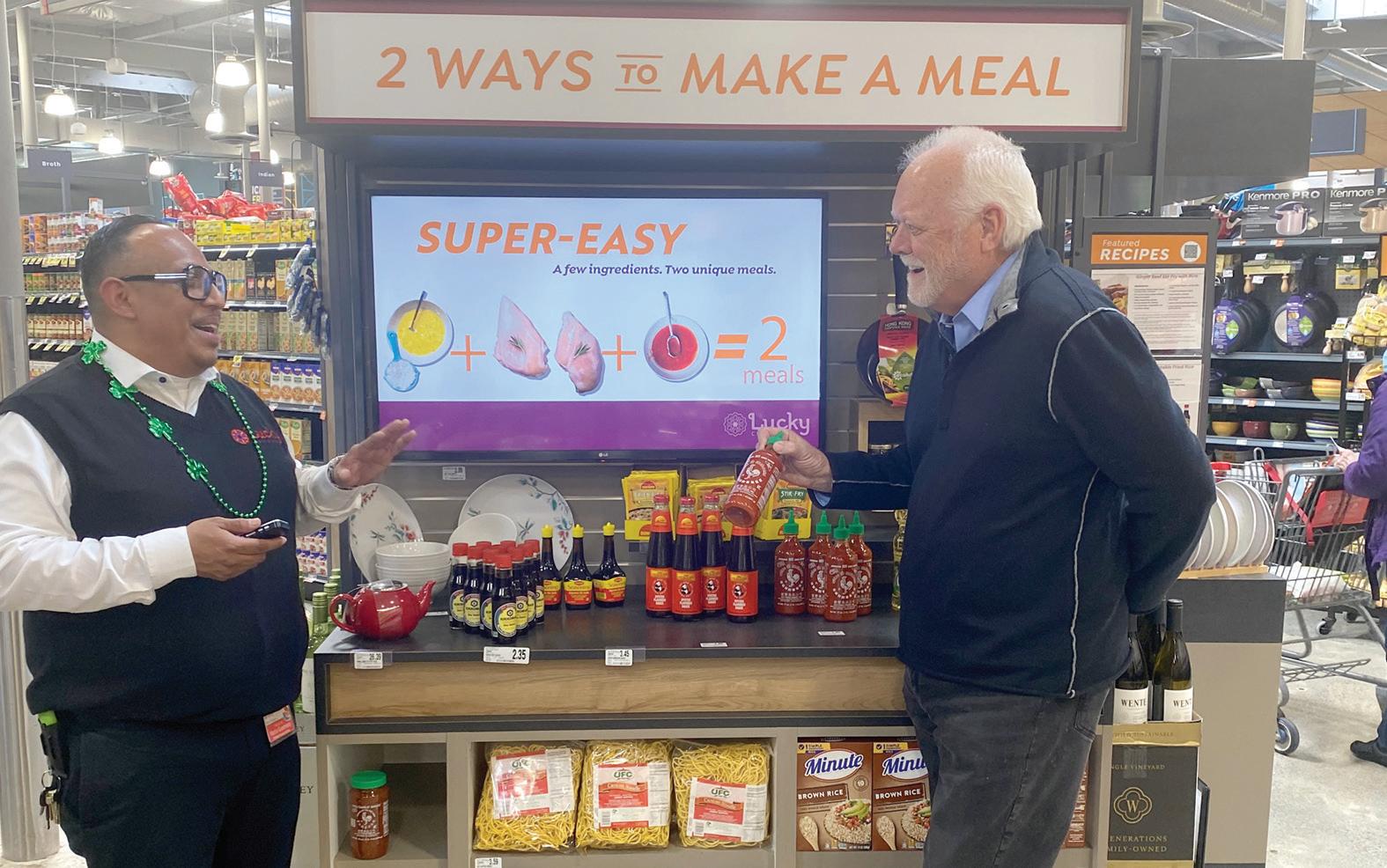
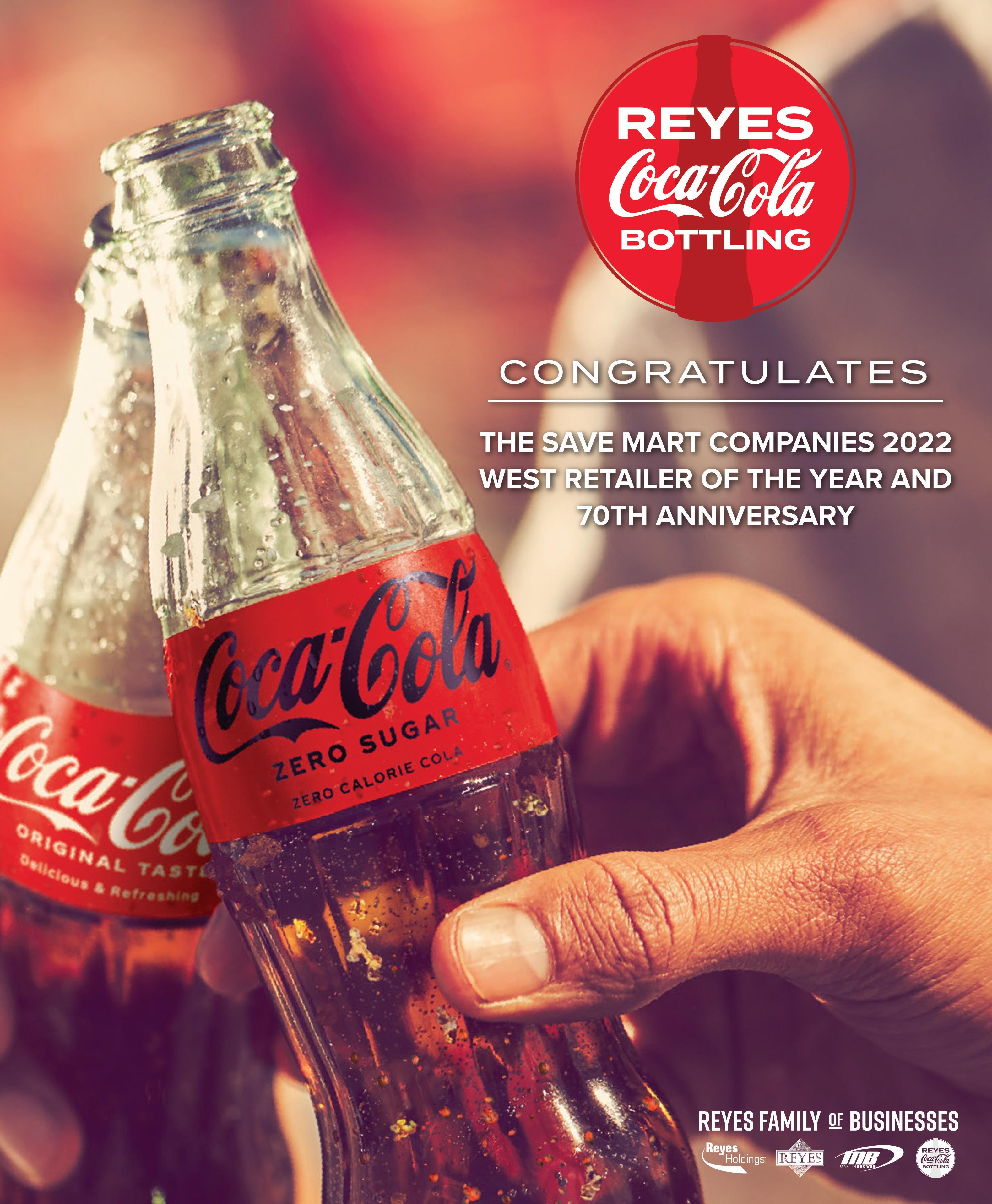
From page 68
Guerrero continued the tour, pointing out other local vendors.
“We want to be known for, ‘Come to Lucky California and get all these local items that other stores may not carry,’” he said.

Another option for shoppers is to visit the meat department, pick out a selection and get it grilled for free.
The store in Pleasanton also is carrying a selection of finfish, which is unique to the store, as is its candied salmon. Black cod is popular as well as an oyster bar available on occasion.
Another thing unique to the store is its in-house sausages, Guerrero said.
“We have eight different varieties right now as well as our featured pub patties … all in-house recipes.”
Dry-aged beef also is available. He said there was a waiting list during the holidays. A QR code is available to explain to the curious what dry-aged beef is, Guerrero said.
The dairy department features some items for the store’s Indian clientele, such as the Gopi brand yogurts, ghee, cheeses and paneer.
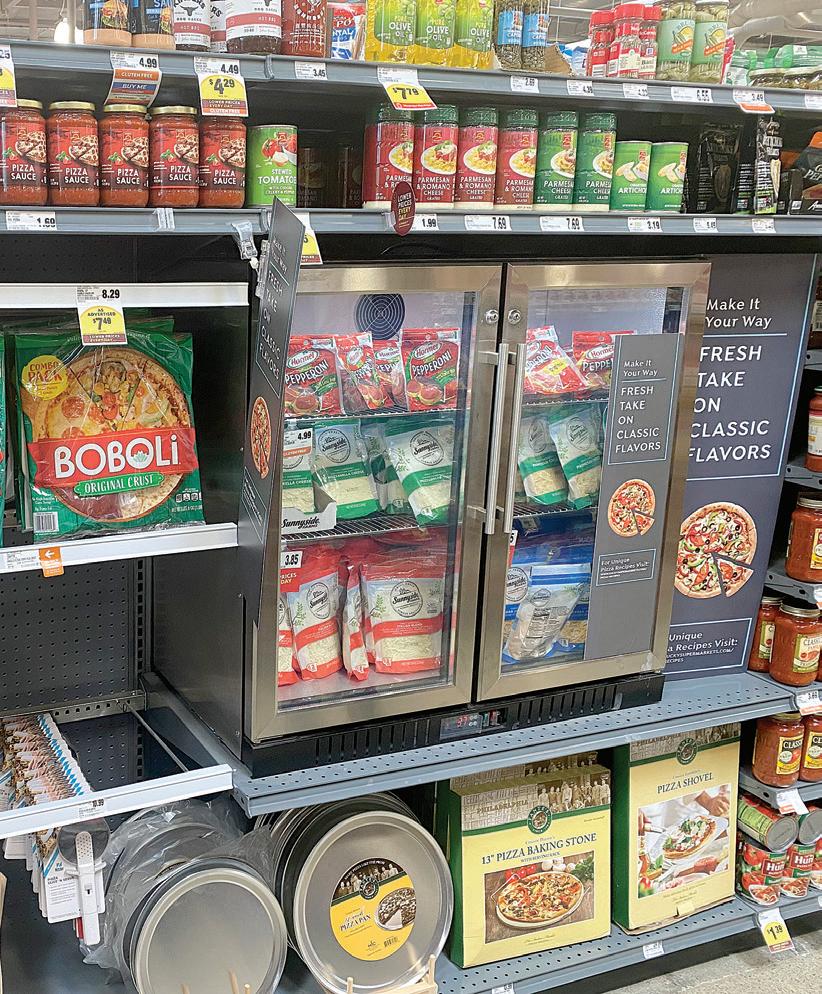
With Napa Valley not far away, the large wine section boasts many local varieties.
“We want to get our guests to taste this, potentially in our Drinkery, and then come back here and buy it later on for at home, parties and so forth,” Guerrero said.
The next stop was at the pizza station, which is a big draw. “We just rolled out our new pizza kit in the service deli…and it’s been doing really great for us.”
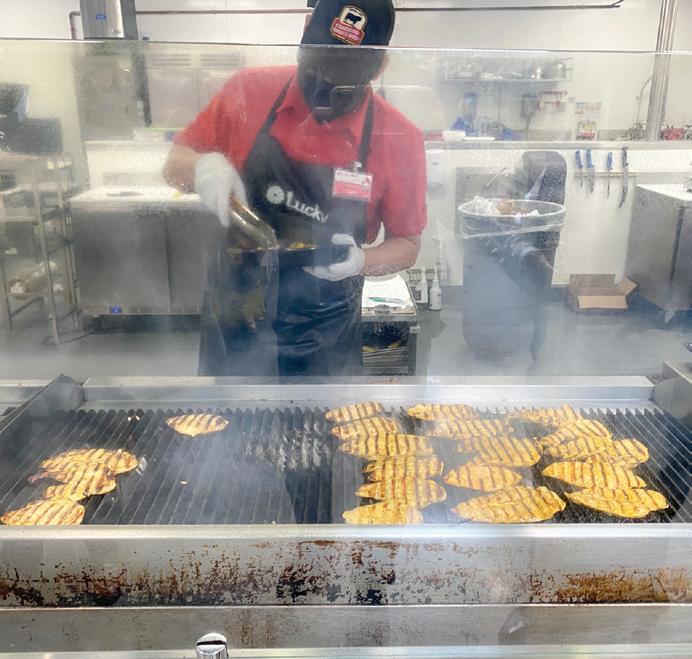
A bulk olive oil station offers a variety of quality olive oils customers can put into containers. Information is available on pressed olive oil and Balsamic vinegar.
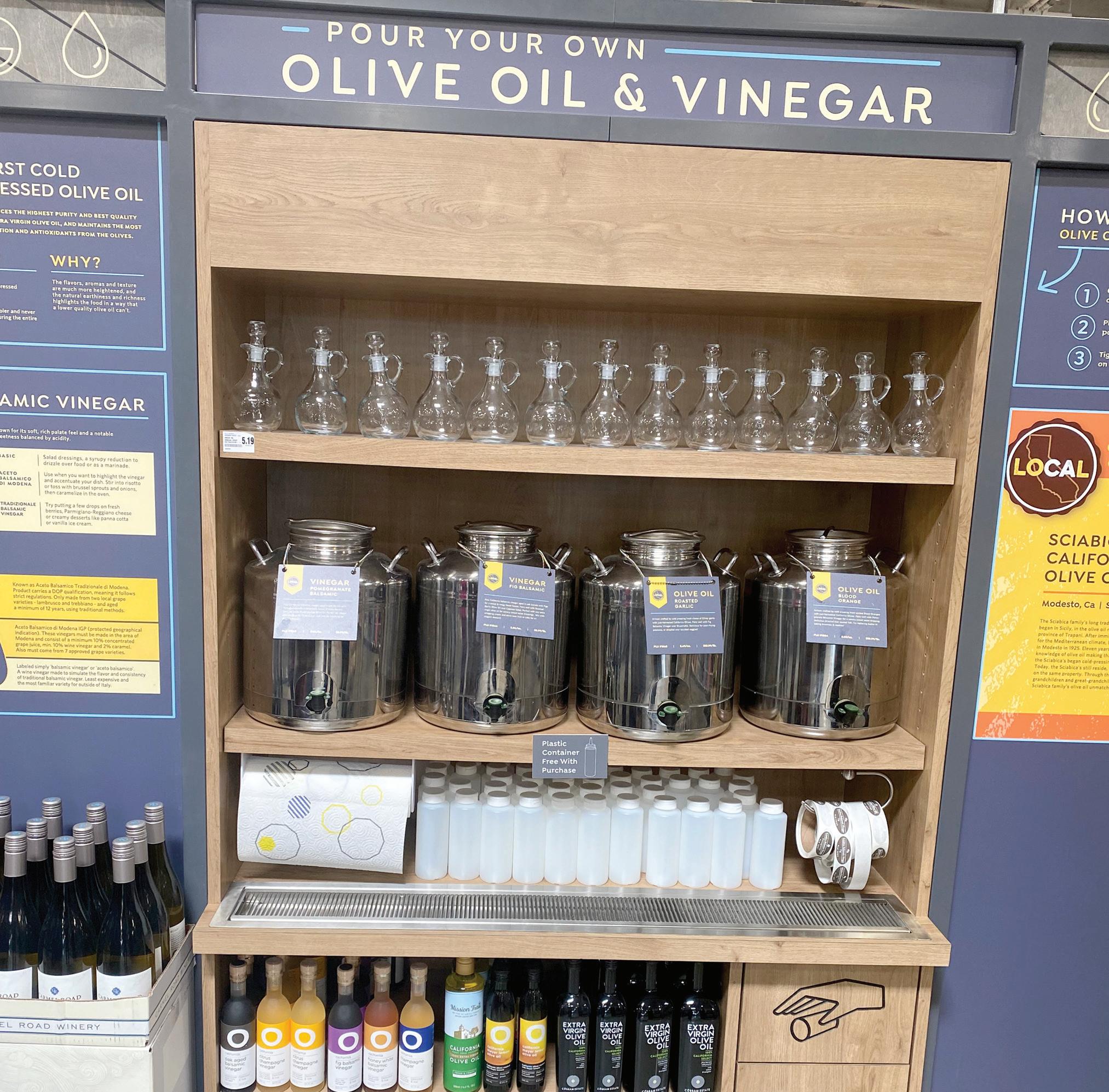
Another station allows customers to make their own nut butters, such as peanut or almond. Local honey also is available, Guerrero said.


The Save Mart Companies offer an on-demand grocery delivery service to customers in partnership with robot delivery company Starship Technologies.

The Save Mart Cos. was the first grocer in the U.S. to work with Starship Technologies, according to a previous article of The Shelby Report. The debut of the advanced contactless delivery service embraced the flagship store’s role as an innovation lab and preceded the one-year anniversary of the store’s celebrated opening in October 2019.
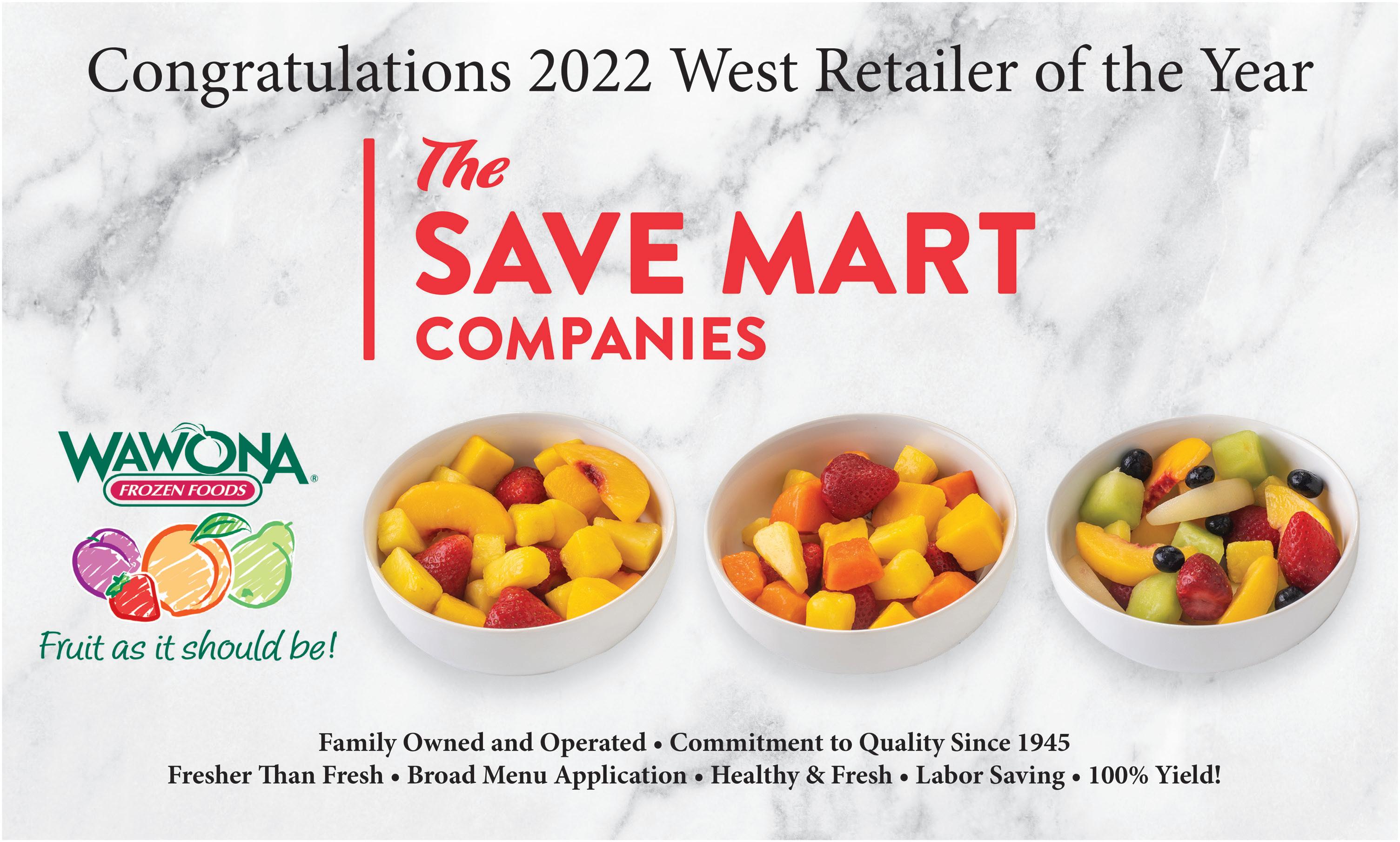

“It’s 100 percent contactless,” said Jerald Smith, director of the Save Mart flagship store. “It’s 98 percent autonomous, so they literally steer themselves to the residents. A customer can go on the starship app on their mobile device; they can make their selections for their groceries; and the robots will then deliver straight to their homes.”
The robots, each of which can carry 20 pounds of groceries, travel up to four miles round trip and provide a safe, low-cost and contactless delivery alternative for Save Mart shoppers.
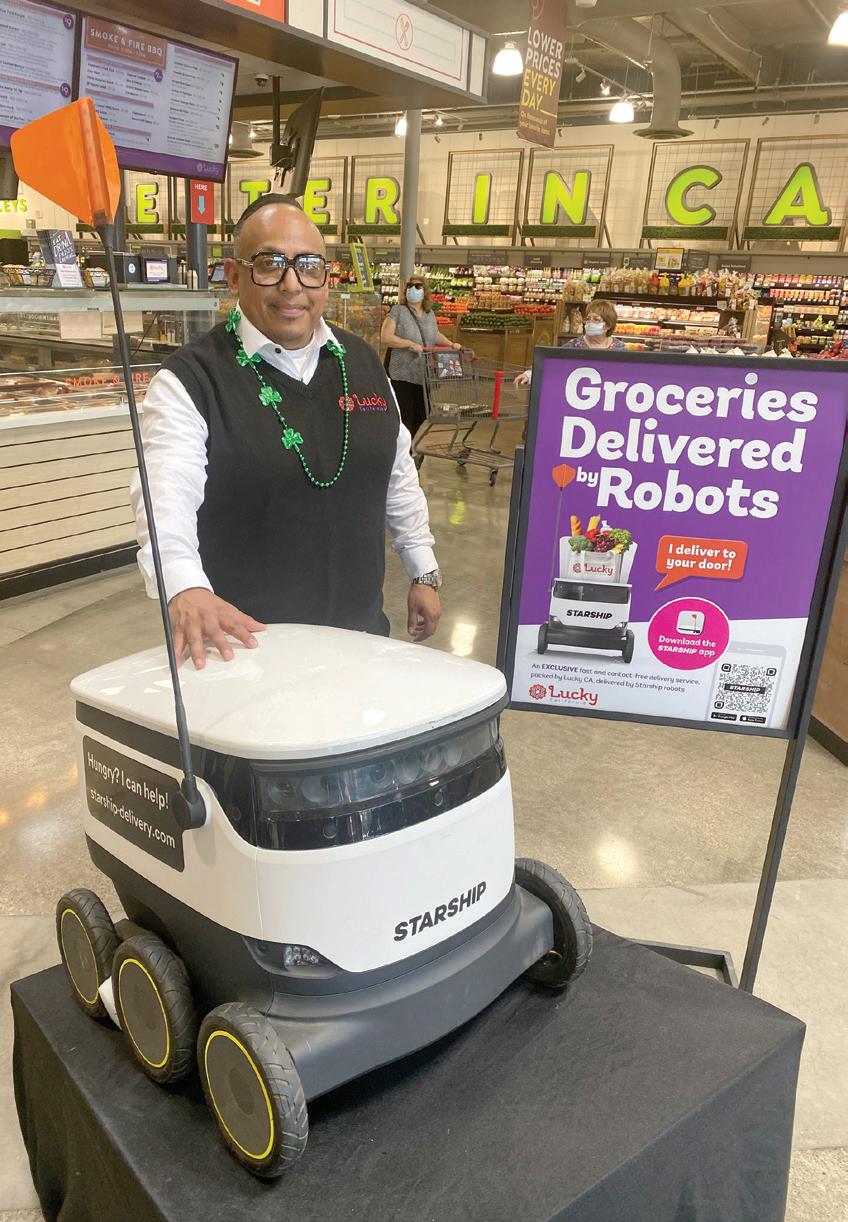

Smith mentioned the robots can deliver to customers anywhere. They can mark their location on the app for delivery.
“You can drop a pin [mark your location] if you’re at a baseball game and you don’t feel like leaving the game to get some snacks,” he said. “You can go on the starship app, order the groceries [and they] are delivered right to the park.
“You use your own mobile device to open the unit up. You grab your groceries, close it and it’s off back to
the store.”
The robots move at pedestrian speed and use a combination of sophisticated machine learning, artificial intelligence and sensors to travel on sidewalks and navigate around obstacles. They can cross streets, climb curbs, travel at night and operate in both rain and snow.

Dave Herbers, VP of non-food, alcohol and pharmacy for The Save Mart Companies, was on a different path before he joined the grocery industry. Growing up in Cincinnati, Ohio, he attended Miami University in Ohio and majored in math and statistics.
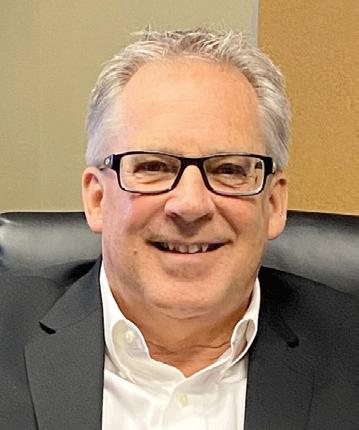
After a stint with General Electric, he “spent 13 fantastic years in the food industry with Kroger,” Herbers said. “I learned a lot. I got to work in a number of different divisions, and actually moved five different times.”
Herbers described the pharmacy business as tough, noting that is going through a “huge transformation” in the U.S. and throughout the world. The companies that manage insurance payments are the driving force.
“We do not determine retail, we do not determine cost. Both those factors are given to us,” he said. “It’s a very challenging department.”
Herbers said The Save Mart Companies is fortunate to partner with Topco, the largest American food retail group purchasing organization, at its 89 pharmacies. “With Topco, we are now able to play with the big boys,” he said. “Topco is probably fifth in purchasing powers.”
The Save Mart Companies has a senior executive director of pharmacy, with two senior directors that are out in the field – one supports Lucky stores, the other Save Mart. There are no pharmacies in the FoodMaxx chain.


Topco manages the pharmacy supply chain and puts out the bids “for to get us the best possible cost,” Herbers said. “Topco is a great source for us for any type of continuing education for our pharmacists and for any type of legislation.”
Married for 37 years, Herbers and his wife have three grown children. Shifting to the alcohol part of his duties, he said The Save Mart Companies started doing well with it 70 years ago and has been able to build upon that.
“We had very good, excellent supervision
of that category,” he said. “I attribute that to the success that we earned and put to the bottom line during the COVID-19 pandemic…and we were positioned extremely well in the pandemic to take advantage of that when the restaurants and bars closed.”
Herbers said The Save Mart Companies’ customers “really don’t want to go anywhere else and there really wasn’t any other place to go. So we capitalized on that. And we gave them great prices, great promotions. The Save Mart Companies was able to keep a significant amount of that market share gain [after the reopening].”
Also during that time period, right before COVID hit, there was an “explosion of all the different drinking options that you have, such as White Claw.”
“You see those alternate drinks; now you have the ready-to-drink,” he said. “You can buy a Manhattan off the shelf and it will probably taste as good if not better than what you would mix at home.”
He said the challenge is picking from the selection available. “The stores are not getting bigger, if anything, they’re really kind of getting smaller. The Save Mart Companies focuses on more of the fresh and the produce and the food service functions – that takes up space. So we are challenged to do more with less,” he said.
As far as the wine selection, Herbers said, “We hit it out of the park. Anybody will tell you that on everything that’s basically $18 and less, we just win that.”
He said he is committed to hiring people who have an expertise in wine, which has been tested in three stores.
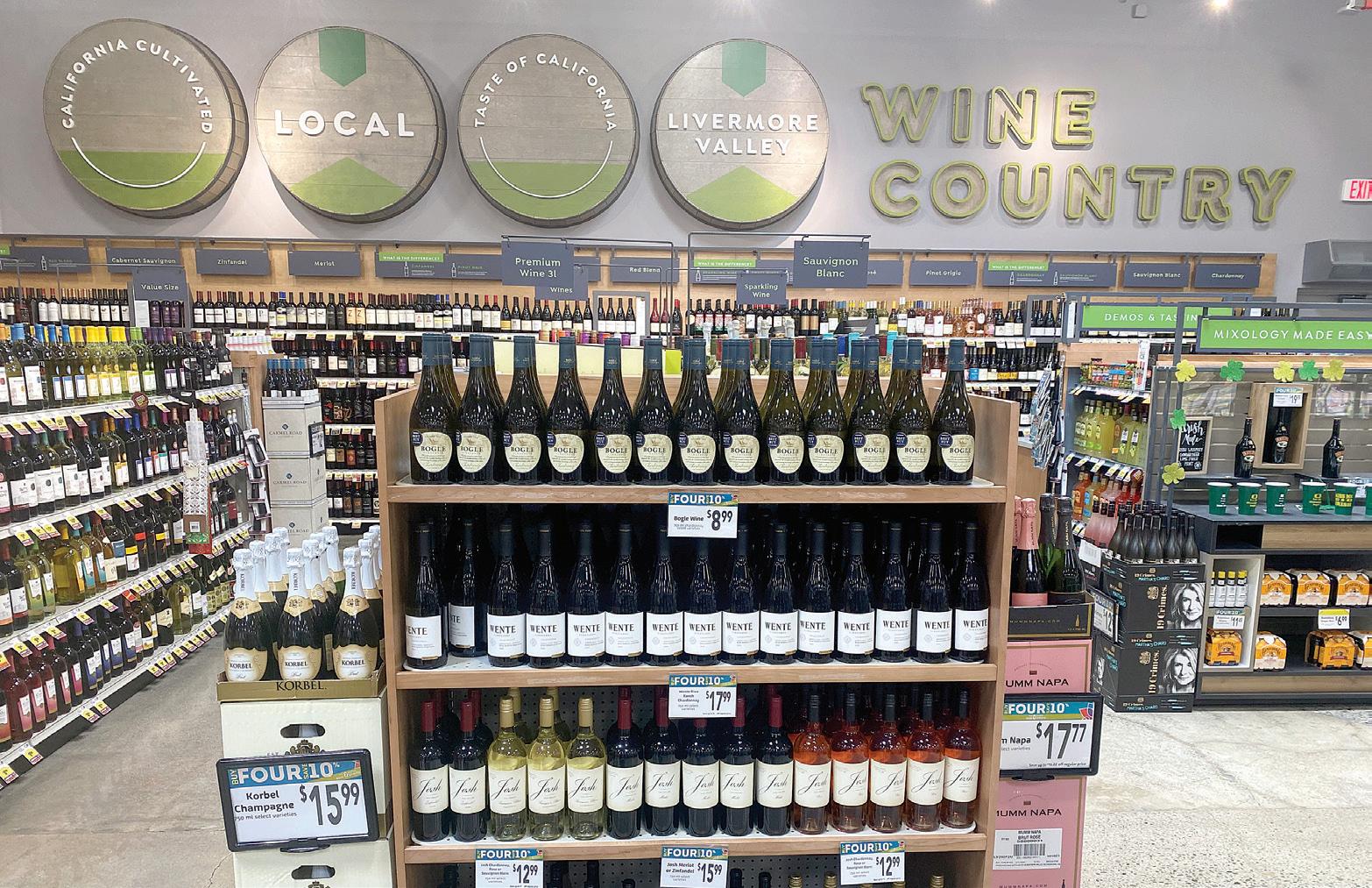
“We have three stores that we’ve invested in,” Herbers said. “They do very well.”
As far as non-food items, such as household essentials and home care, Herbers said those have a “great presence” in the store.
“Our department is, I think, critical,” he said. “Whether we are a destination like a produce or meat department, we are still very, very important to the customer.”
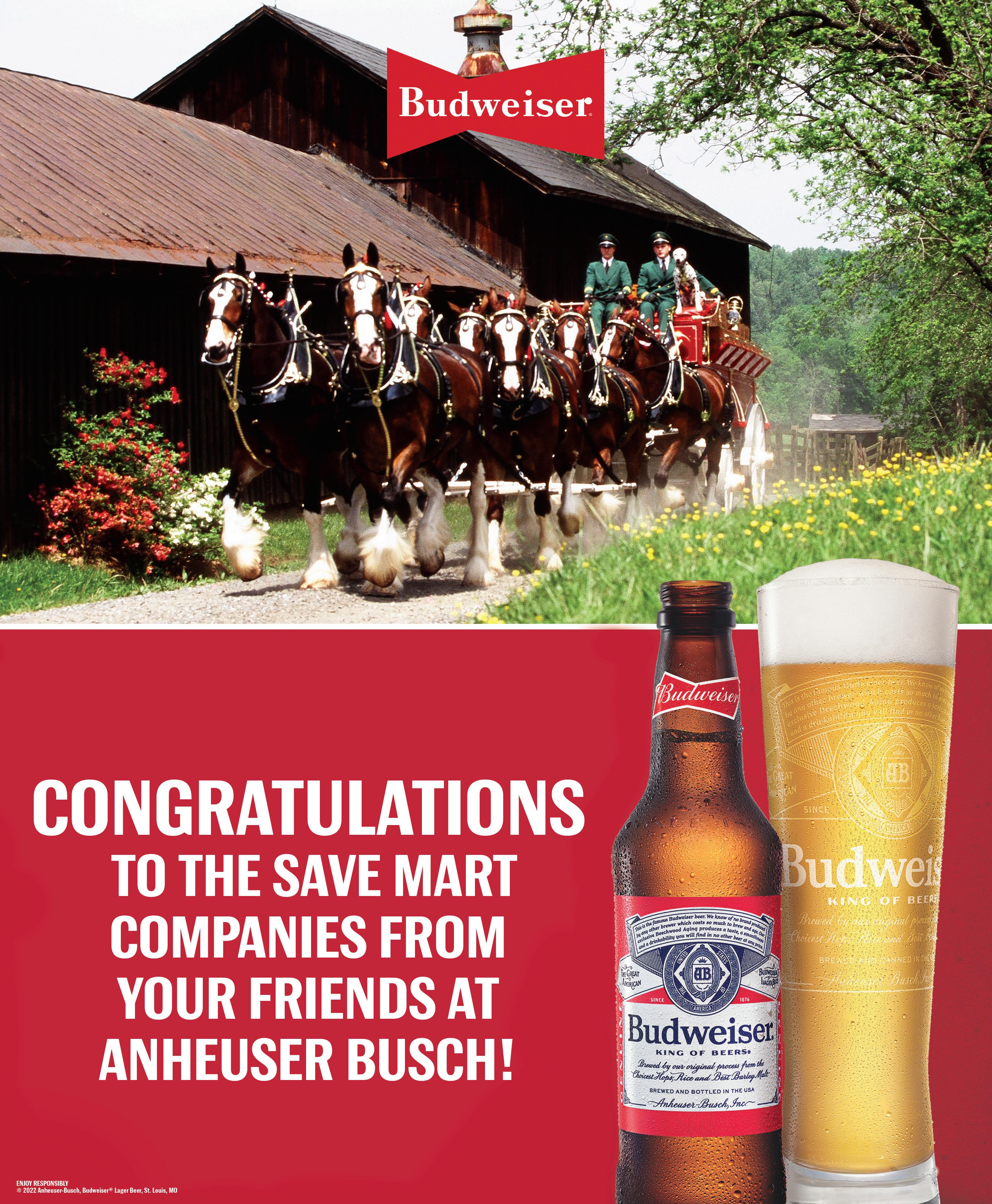

Bobby McDowell, VP of store operations for Lucky California, got his start in the industry in 1983 with Skaggs Alpha Beta. He has worked his way up through the ranks and has worked with a couple of different companies over his career, including box-format stores.
His aunt worked at Alpha Beta and got him a job there. He said he learned a valuable lesson while working there – “In the grocery business, there’s always something to do.”
McDowell, who served in the U.S. Marine Corps Reserves for six years, attended the Food Executive Program at Cornell University after joining The Save Mart Companies.

He and his wife, who is senior director of business analytics for The Save Mart Companies, have a blended family – each with a grown daughter. They also have one grandchild.
McDowell said his typical work week starts with a couple of days in the office and then he’s out in the field.
“That’s where it all happens. It happens in the store,” he said. “We can only see so much from the office, and we want to make sure we’re out supporting the stores and providing for all their needs. We have a very servant-leadership atmosphere and culture here. When we go to the stores, we’re asking them what can we
to help them succeed.”
McDowell said he does a banner broadcast most weeks that is viewed on break room TVs. He tries to pick a different store each week, based on some performance metric. “I want to celebrate with them,” he added.
The Lucky California banner has about 4,000 team members and 66 stores. McDowell has 10 directors of operations who report to him.
“It’s a flatter structure than we’ve had in the past where I have one person between me and the store. I love having that close connection with the stores,” he said.
Each week also includes a conference call where the camera makes it more interactive, McDowell said. Once every four to six weeks, he will have face-to-face meetings with his directors.
“We really spend that time – I call it sharpening our axe – helping us become even better leaders than we are today for our store teams,” McDowell said. “We spend a lot of time with that, a lot of the strategy and the different things that we’re working on. We talk about that every week.
“I also schedule my visits each week to where I’m out with the directors. I try to make sure I get quality time with each of them and also do one-on-one meetings with them.”
McDowell said he measures himself by the growth of his people and “the success they create for the banner, because everything that happens, happens through our team…we really want our folks to shine and to be able to talk about what they’re doing because, at the end of the day, we want people
who are independent thinkers.”
Store managers come in periodically “just to reset or talk about new strategies…but at the end of the day, we empower them to really lead in that servant leadership way that we talk about.”
McDowell, who has been with The Save Mart Companies since the 2007 acquisition of several Albertsons stores, said he “absolutely loves the culture of this company.”
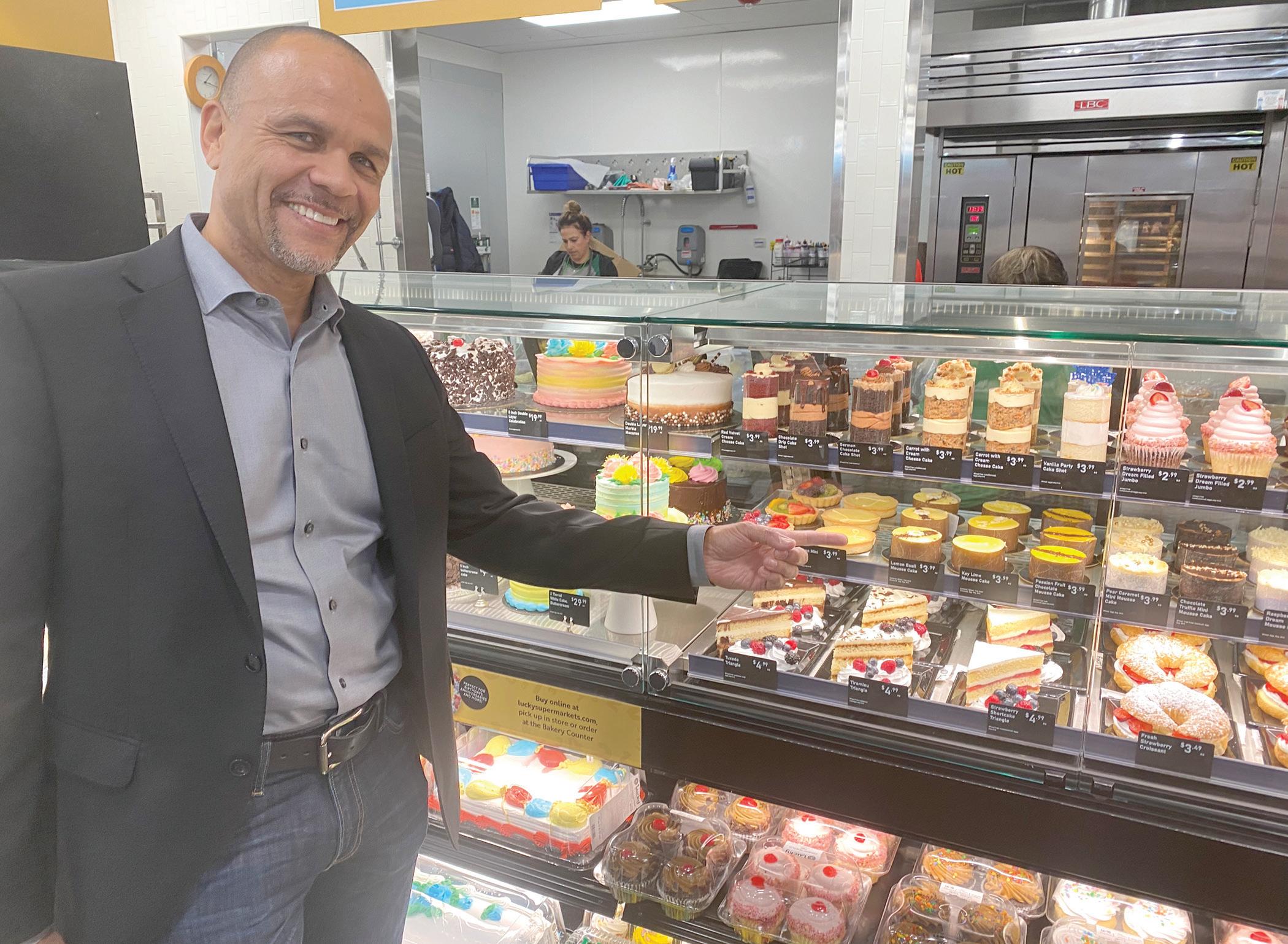
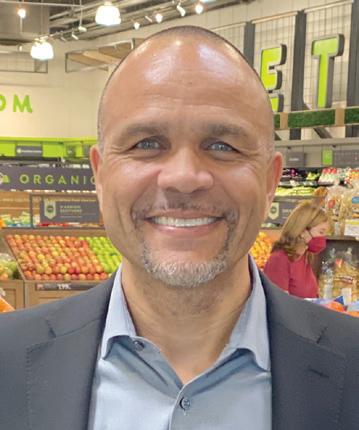
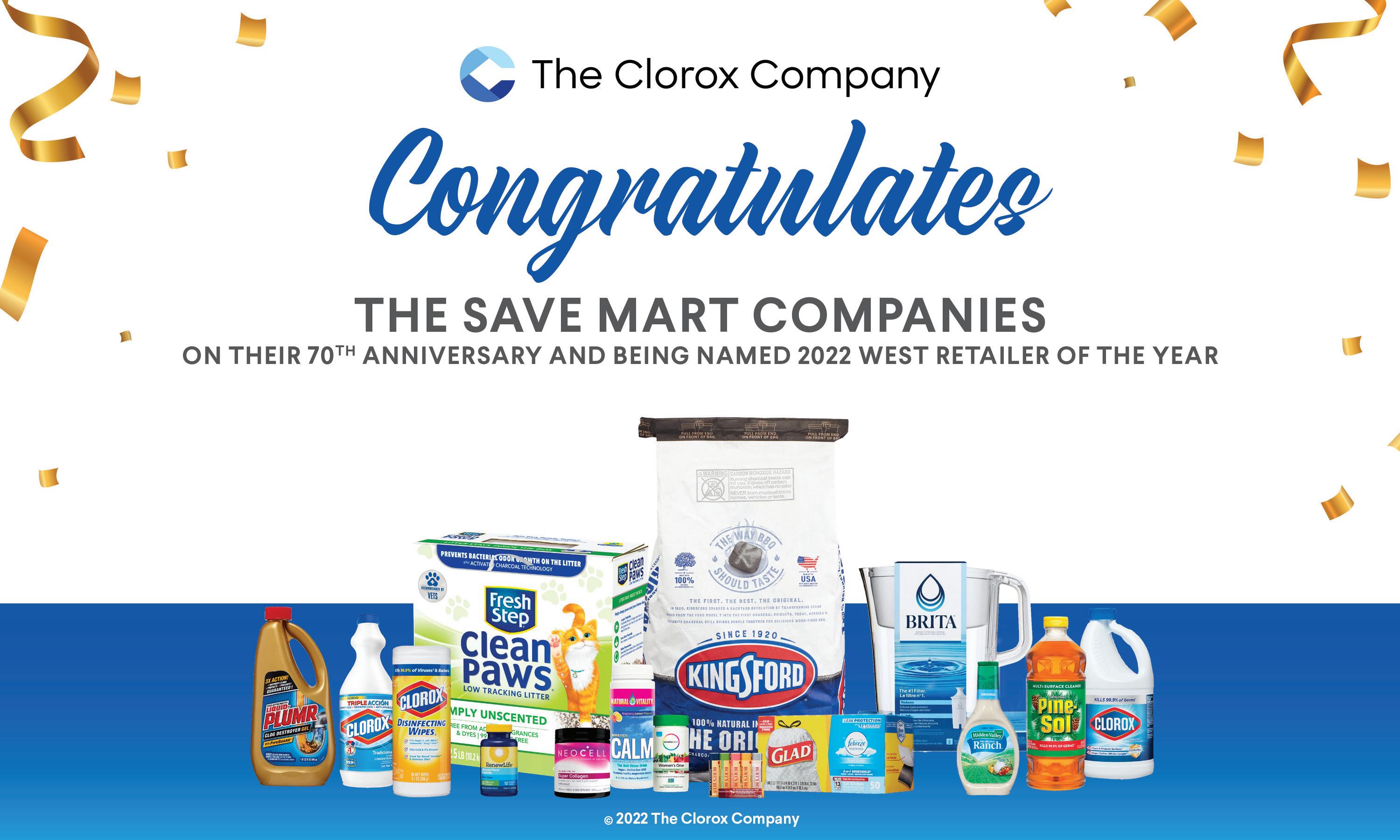
While it may sound cliché, it “really is a people-first organization.”
“We think about our people first. We promote our people. We really practice servant leadership so that we serve the needs of our team. Everybody understands the expectations, and they know they have our support,” he said. “I think we do a really good job of promoting our people, making sure our folks are pushed to the forefront and get the credit for the different things that are going on.”


FoodMaxx is The Save Mart Companies banner that is committed to everyday low prices across the store, particularly those items customers buy most, such as milk, eggs, bread, diapers, produce and fresh meat.
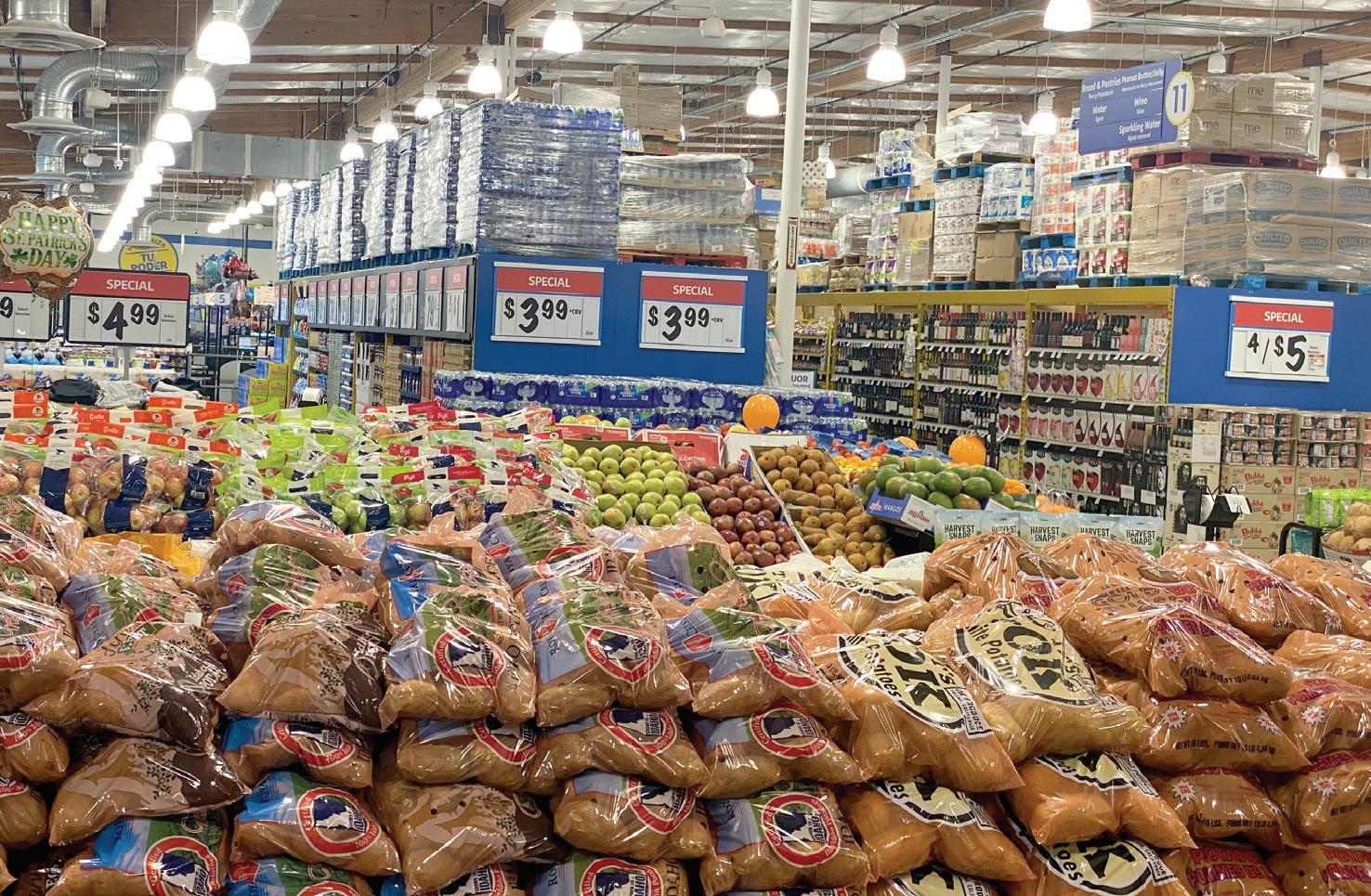

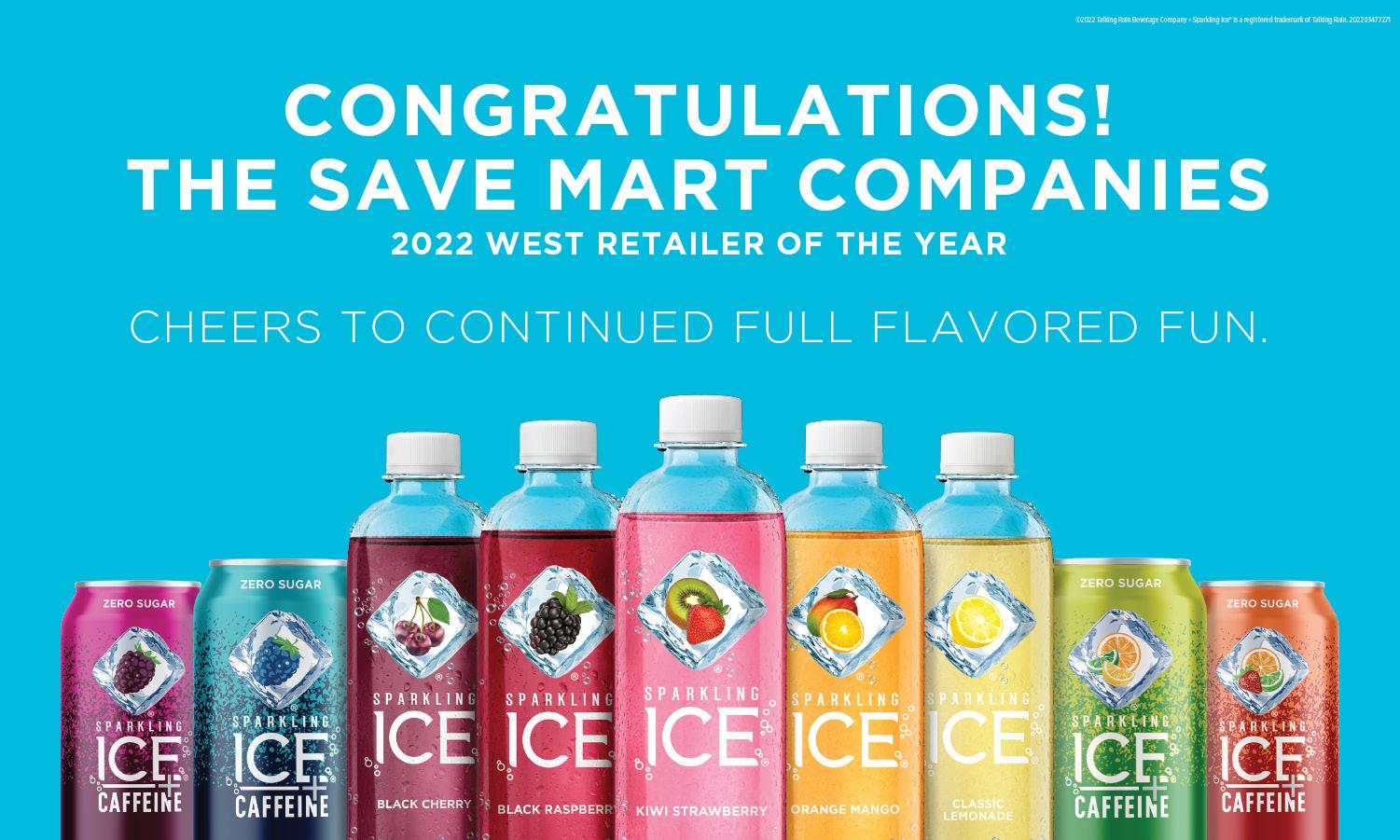

According to the company’s website, the store commits to the following principles in order to achieve this mission:
• Everything is designed to save customers money. This is possible by buying in bulk and stocking shelves right off the truck. Customers help by bagging their own groceries.
• Efficiency, speed and simplicity. From the front door to the back dock, FoodMaxx keeps its overhead MAXXlow. So, it’s easier for the grocer to stock and easier for customers to shop.

• The banner uses its buying power as one of the West’s largest independent grocers to go after the lowest price.
• It checks hundreds of prices each week so customers don’t have to.
• Being a local, regional company, living alongside farmers and ranchers, allows the delivery of fresh, quality products at low prices.
Company executives recently led Bob Reeves of The Shelby Report on a tour of the FoodMaxx in Lodi, California, which also is a new concept store.
Upon entering, new and returning customers will see why FoodMaxx is known for its wall of value.
“They’re going to see the stuff that we buy by the pallet. [This is] going to give you the best cost of goods that we can pass on to the customers. It gives us our best prices out there,” said Dean Willhite, VP of operations for FoodMaxx.
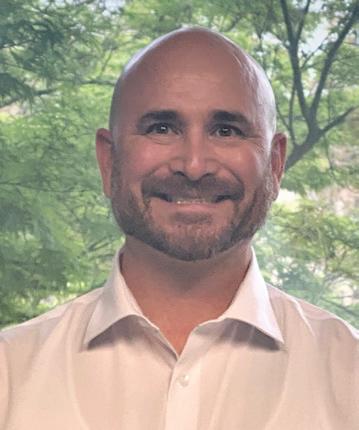
According to Willhite, the products are the star, but the price is the hero. And as a value operator, FoodMaxx is in a competitive space.
“The owner operator advantage of how FoodMaxx operates is that the store managers are empowered to win on price,” said Rebecca Calvin, chief merchandising officer.
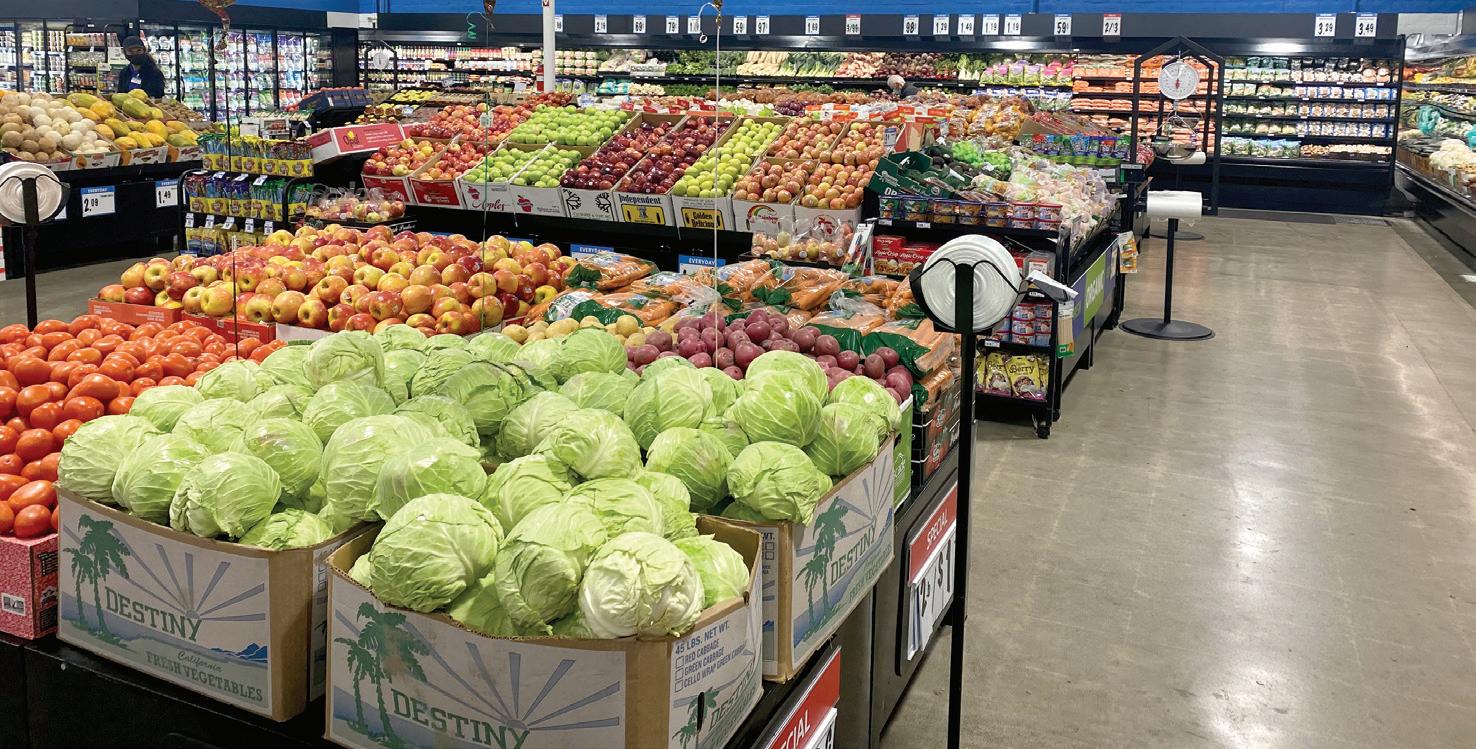
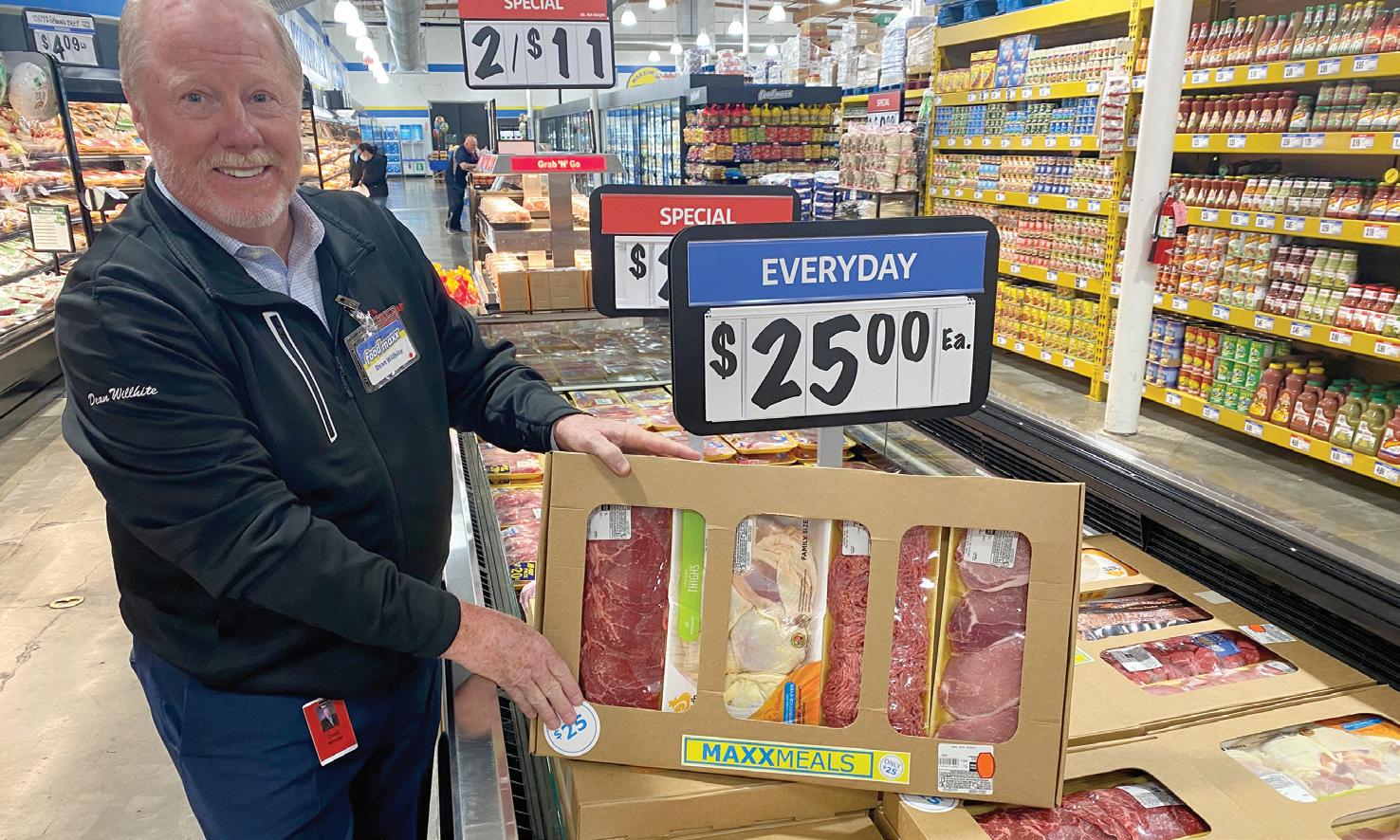
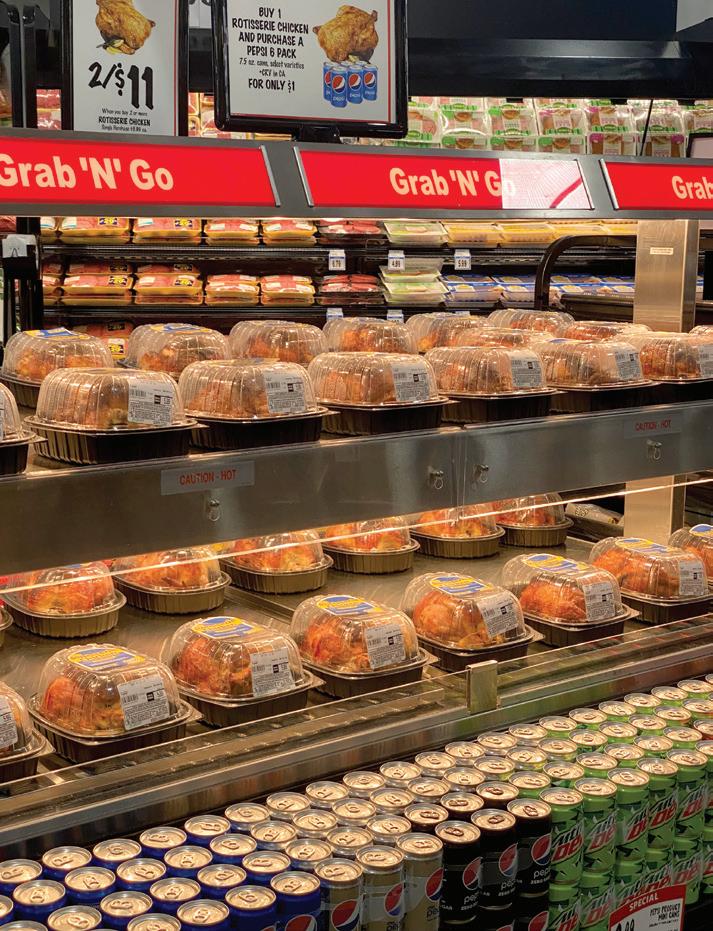
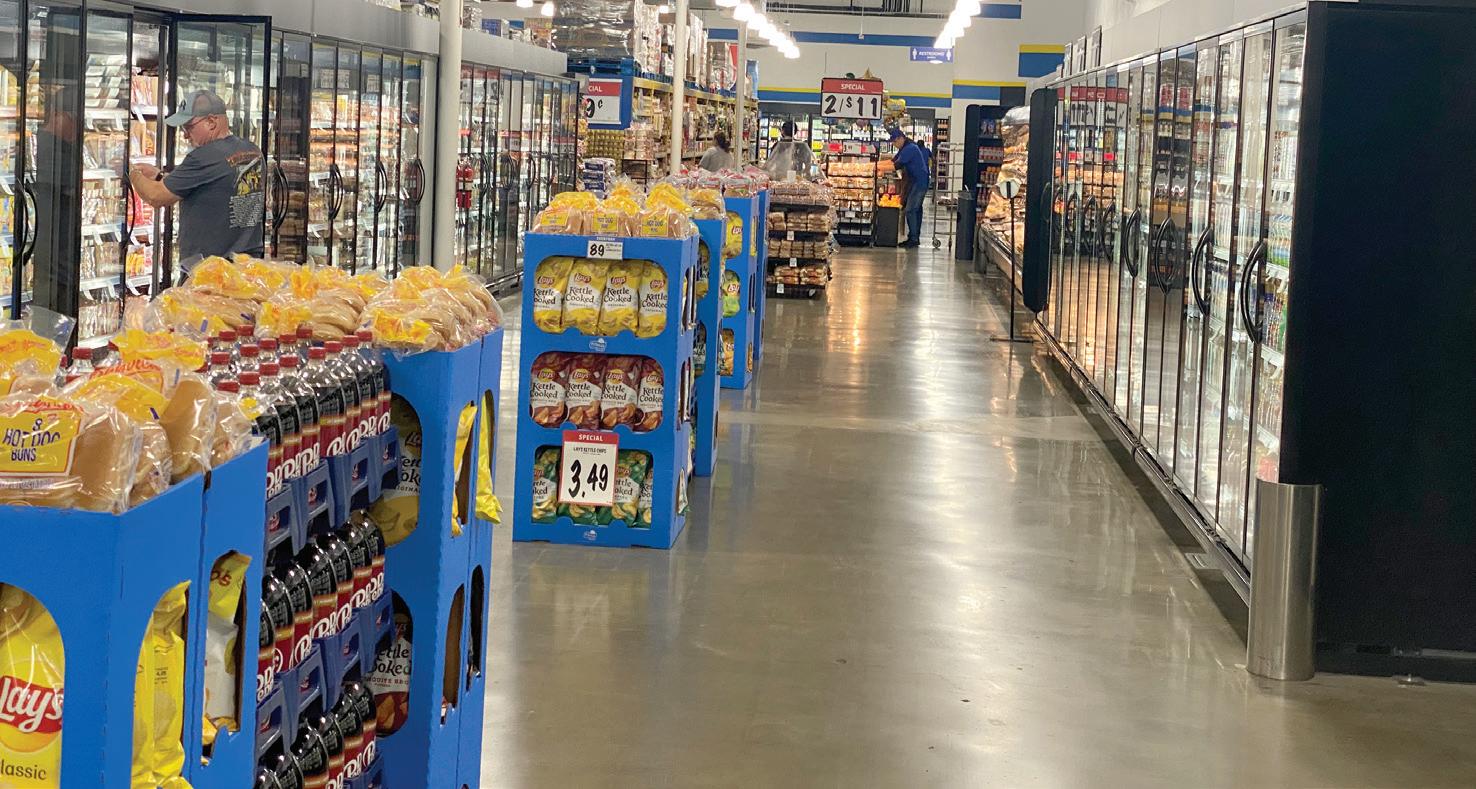
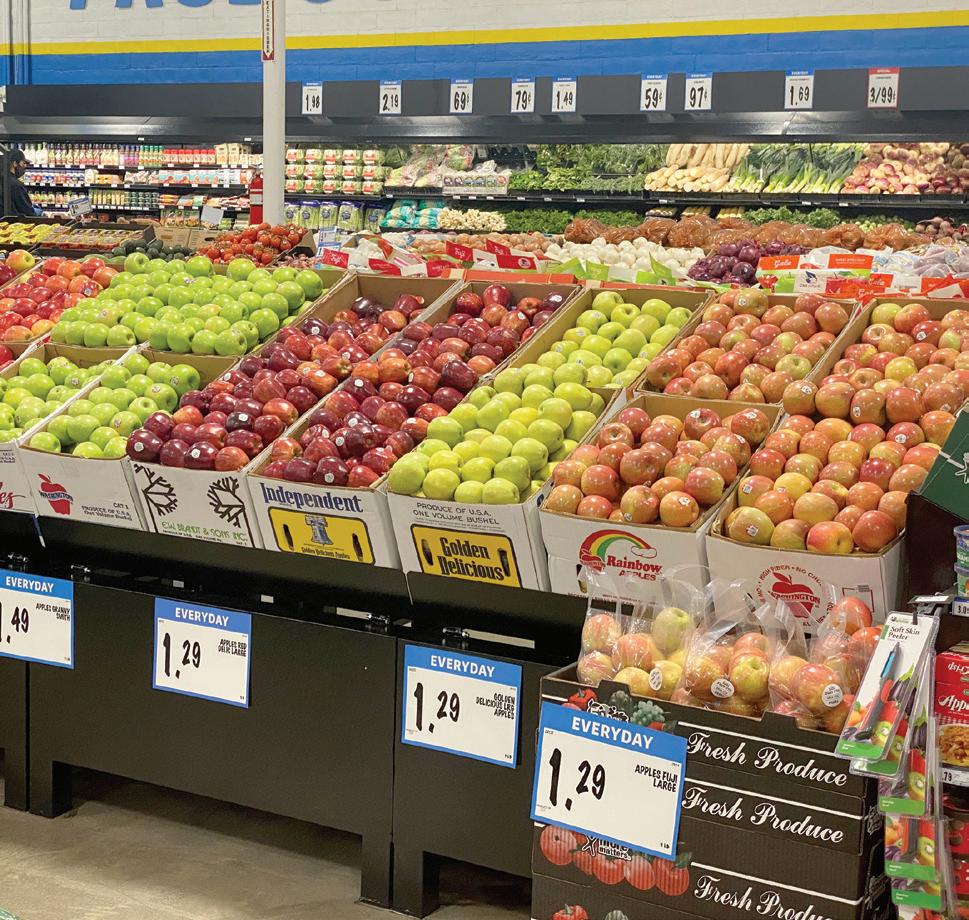
FoodMaxx purchases products by the truckload directly from suppliers.
“We can cut out the middleman and get the lowest cost of goods so we can get the best price to the customer,” Willhite said. “Everything we do is from a labor efficiency perspective.”
Throughout the stores, customers will see case and pallet stockings.
“Ninety percent of what we do…it’s all by the pallet. It comes in by the pallet…we put it out there – more labor efficiency – and pass that on to the consumer. That’s what we do,” Willhite said.
SKU assortment is an area of innovation as well, as FoodMaxx focuses on products that customers want and buy the most.
“The way we can do that is that we can pallet stock and we can case stock everything for the efficiency, and you’re in stock for that customer that wants to buy the things that you buy most,” Willhite said. “We have a really good variety. But we slimmed it down to make sure that if you look at pizza, you look at different things where we can case stock.”
The value can be seen in the meat department as well. “Our volume is really strong over here,” Willhite said.
Along with this, customers can find prices as low as $2.19 for skinless chicken breast. One can also consider a price deal on two rotisserie chickens for $11 or a T-bone steak for $5.99.
Protein value can also come in different packages, with one in particular that has four different meal-starting options with a $25 price point.
Scott Bourbon, senior director of sales and merchandising at FoodMaxx, addressed how his team interfaces with vendors.
“Globally, my team does specific negotiations, promotional planning [and] annual planning with supplier partners,” Bourbon said. “We do bring on unique suppliers for items or categories that make sense for the value banner FoodMaxx that may not make sense for the Save Mart or Lucky banner.

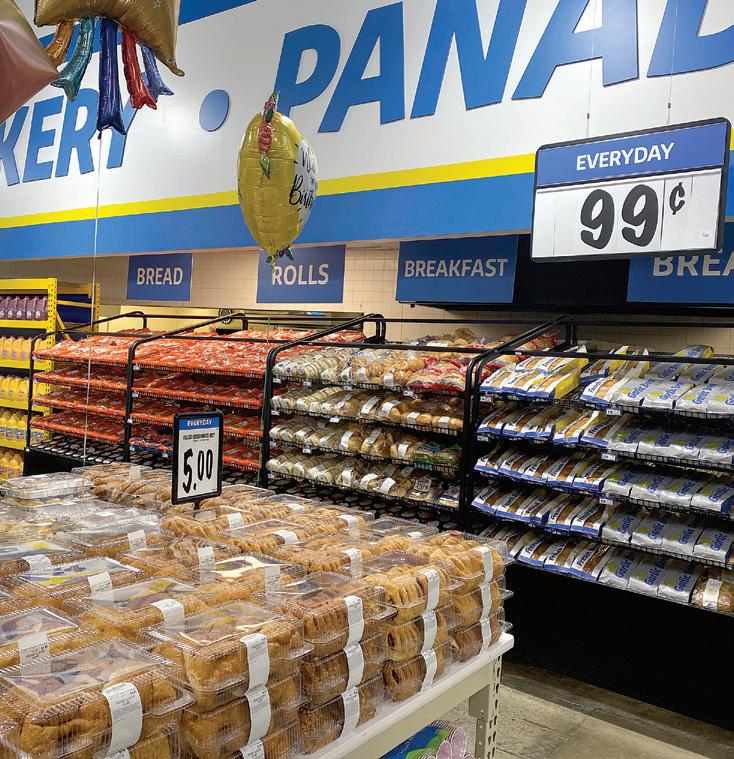
“We do some creative negotiations on the FoodMaxx side to whether it’s how we get product to stores, whether it’s direct store delivery. And we are very ethnic driven on our selections as well…even though we have a limited assortment, we have an expansive assortment that we limit to the top selling items. We carry several items that the total company doesn’t carry.”
Bourbon’s role was established to differentiate FoodMaxx from the conventional banners.
“We have a unique customer compared to conventional [grocery]. Our job was really to leverage the enterprise power, but tailoring it specific to FoodMaxx – whether it’s where we put our funding for cost of goods, whether it’s how we land product, to the items we promote and to our assortment to quality specs.”
Operating in diverse communities, Bourbon understands that many families will have different reasons for saving money on groceries.
“Some people have a limited budget for food and there’s other people that just want to stretch their money,” he said. “They don’t want to pay more for the same item and FoodMaxx offers that… we have quality foods at incredible prices. It’s more than just a business and doing great and hitting our numbers. We provide a service to our community.”
“When you talk about first-of-the-month traffic and meal planning, think about the shopper for FoodMaxx. That value shopper is looking for a way to save. Obviously, they’re on a budget,” Calvin explained.
“So this plans out the week or longer than a week for them because they can feed a lot of people out of that box,” Calvin said. “But the magic of a $25 price point for four really nice packages of meal-starting protein is important. The basket that goes along with that is critical for us.”
“It is not a margin builder for us by any means, but the basket that it builds. We have the luxury of cross-merchandising with that item. We put in side dishes, vegetables, condiments, to help build the basket.”
The Save Mart Companies is continuing to invest several resources into its private label sector and increase awareness with customers.

Rebecca Calvin, chief merchandising officer, said The Save Mart Companies has a three-tiered approach. Customers will see Bayview Farms products as the key opening price point brand.

“Then we have national brand equivalents: Sunny Select, Sunnyside Farms, Crav’n flavor. Those are all national brands. So if you think about a Lay’s potato chip, we have a Crav’n flavor that matches the specifications as close to it or better than those national brands,” she said.

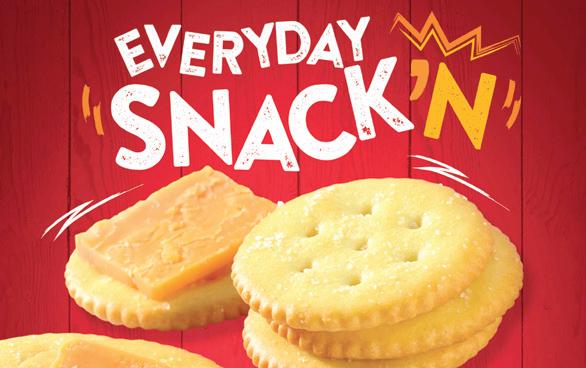
The Save Mart Cos. also has a premium tier for which its qualification has to be “unequivocally better” than the national brand, which is Pacific Coast Selections and Full Circle products.
“Both of those brands have organic tiers [and] plant based, if necessary, built into those brands,” Calvin said.

Ben Ueda, VP of Our Brands at The Save Mart Companies, said the organization had 23 private label brands at one point, but is in the process of thinning that to 13. This will create efficiencies and build brand awareness.
“For example, Sunny Select and Pacific Coast Selections are the two brands that we’re really focusing on, that we’re really trying to expand into fresh, because probably for the last 10 years, they’ve been heavily focused on just really dry edible goods and never really expanded beyond that. We’re trying to expand those plus they have high recognition,” Ueda said.
Many of the brands that make up the 13 are what Ueda calls general merchandise and health and beauty aids.
“Those are categories and areas where they’re much harder to go at it alone for a regional company of 200 stores,” he said. “Those are some very low-turning categories where most suppliers that will do a label for you will require a certain quantity run commitment.”
Although The Save Mart Companies strives for innovation in private label, connecting with new vendors and suppliers happens “the old-fashioned way,” according to Ueda. This revolves around networking.
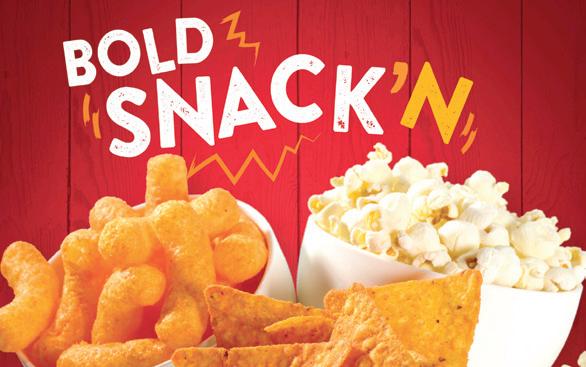

“People call me up, send me emails, I get referrals… we also use traditional ways to meet each other…like private label conventions where the industry comes together,” Ueda said.
Ueda, who has spent many years in merchandising, said private label has re-energized him.
“We’re actually creating product, working with suppliers,” he said. “We’re interfacing with customers, we’re listening to what customers are telling us, we’re listening to what sources are telling us and responding and reacting with product.”
The Save Mart Cos. has a partnership with Super Store Industries, which owns and operates a dairy and beverage manufacturing division in Turlock, California, and a dry grocery and frozen food division in Lathrop, California.
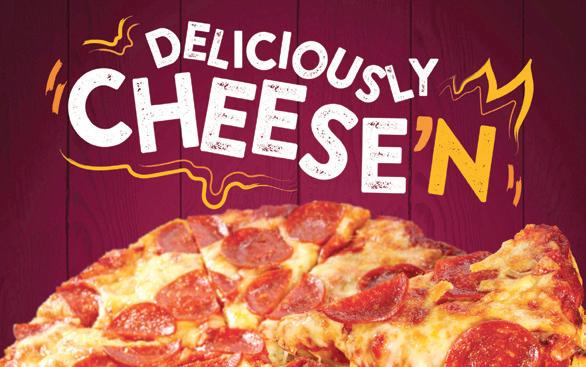
The Turlock facility produces a lot of our byproducts of dairy, such as yogurt, cottage cheese and sour cream.
“They’re able to take on outside customers, as well as branded customers, to fill those production lines. We’re in a partnership circle with Raley’s where we can consolidate our volume.”
As a “military brat,” Rick Reed – The Save Mart Companies’ VP of produce and floral – has lived all over the world. His family was living in Arizona when he got his start in the grocery industry at age 16.
Reed, who credited his father with instilling a strong work ethic in him, worked his way up rather quickly. He went from bagging groceries to running the operations for produce in about 16 years.
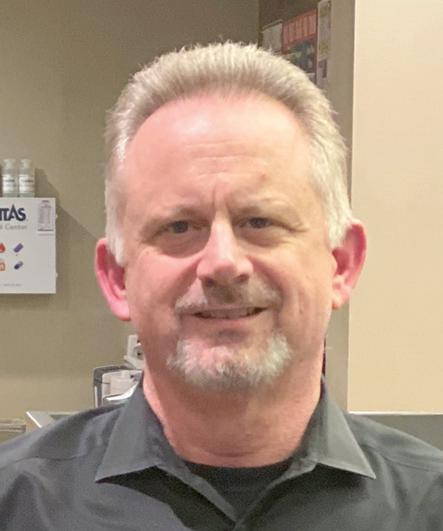
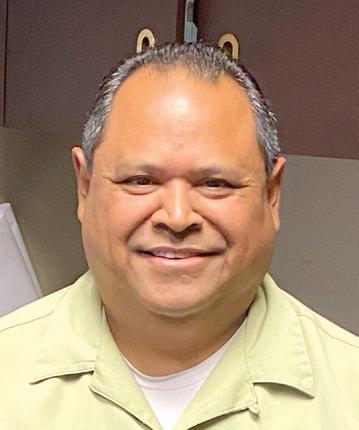
While working for a national retailer and living in Arizona, his boss – the division president – was sent to corporate as president of perishables. She asked him to come out on a project.
“Long story short, I'm at the corporate office, director of strategic planning and development, which was a really awesome job because you didn't have any concerns about margin. It's like how do we improve our reputation? That was really a cornerstone and what I think is a strength of mine.”
Reed said he also ran Tom Thumb and Randalls in Texas and Bonds in Seattle and Portland. A division president from Denver moved to the East Coast and tapped Reed to go as part of a team that was rebranding a company there. Coming back to the West as VP of produce and floral for The Save Mart Companies is “very intuitive to me.” His experience with national retailers has been beneficial.
“That really taught me how to go into a market and analyze what the competition is, analyze
where my assortment is, where opportunities are and doing that repetitively,” he said.
Having more than 50 percent of the world’s produce come from California is one of the aspects to love about his job.
“We have the freshest produce of anywhere in the country,” he said. “Because if you think about it, to go back to New York, it's six days on the road. I get it the next day.”
As far as The Save Mart Companies being named The Shelby Report of the West’s 2022 Retailer of the Year, Reed said it is an honor, “particularly when we operate in an area that has so much competition.”
“The company is such an amazing story. It’s been around for 70 years. It's a locally-grown company. And we are proud of those connections and those roots, to not only all of the farmers and ranchers, but the producers of milk, cheese, wine, etc.”
When he first arrived at the company, Reed recalled, there had been some changes and “we were at a point where we needed to reinvent ourselves.”
The remodeling and new vision for all three banners is a result of a team effort to do something completely different, he said, noting the company’s innovation labs.
“It's really a people-first company. That starts with ownership…and I'm thrilled to be a part of it,” Reed said. “I think it is really, really appropriate and fitting that this company gets that [Retailer of the Year award] because of the…struggles and the hard work and the reinvention and to see all of that really manifest into the perfect storm that we lowered our prices – tens of millions of dollars on an annual basis.”
The company had reinvested in its formats, as seen in the flagship stores, when the COVID-19 pandemic hit. At first, customers were just trying to find supplies, which drew traffic.
“That was a great way for them to see the store has been updated and there’s some better prices here, better assortment,” said Reed, adding that as a result, The Save Mart Companies’ market share increased.
“This is a really nice way to kind of look back on the last four years and say, ‘We deserve that.’ We do deserve it.”
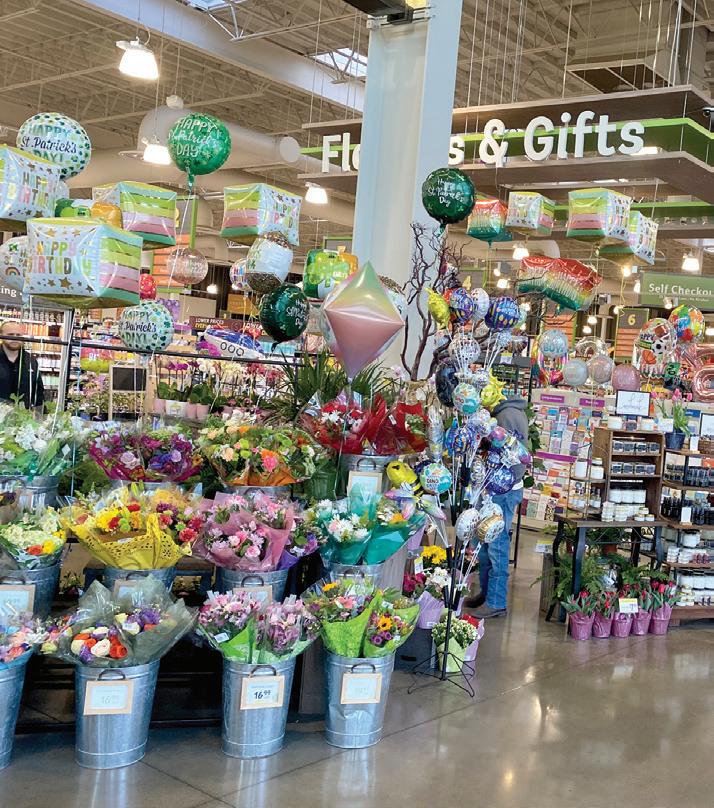
McGarry said as the Bay Area is so unique, The Save Mart Companies needs to “chase opportunity where it exists.”
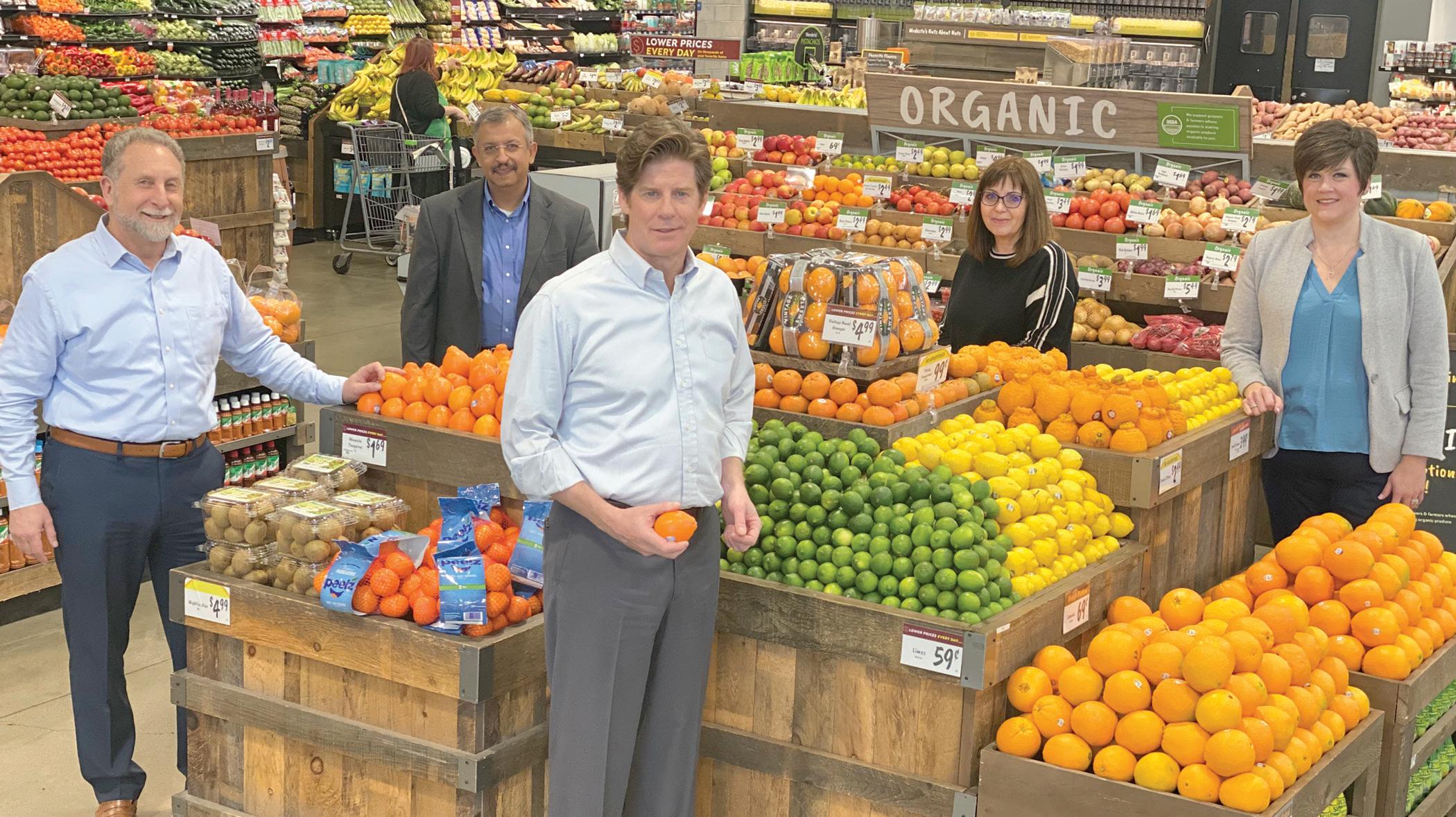
He said they are pursuing plans to build a 10,000-square-foot store in a food desert in San Francisco.
“We saw an opportunity because we are committed to being invested in the communities in which we operate and giving back,” he said. “We saw an opportunity to go in and do just that, to meet a serious need in an underserved community.”
McGarry said he loves the project because it is challenging his team to develop a plan for a successful store with less than 6,000 square feet of selling space.
“You have to be nimble, and that’s what our culture is,” he said. “We’re entrepreneurial but we’ll look at a pop-up kitchen. We look at last-mile delivery. You have to be able to respond to the current needs and anticipated needs of the customers. You’ve got to keep your eyes on the competition.”
The Save Mart Cos. is on a pace to add three to five stores a year, if the opportunities present themselves.
To McGarry, the COVID-19 pandemic has been “an amazing experience for us as an organization.”
“What makes The Save Mart Companies successful is at the corporate or executive level, I think everybody checks their ego at the door…and there’s a profound and deep and abiding respect for people in our stores and for our customers. And we stood by that.”
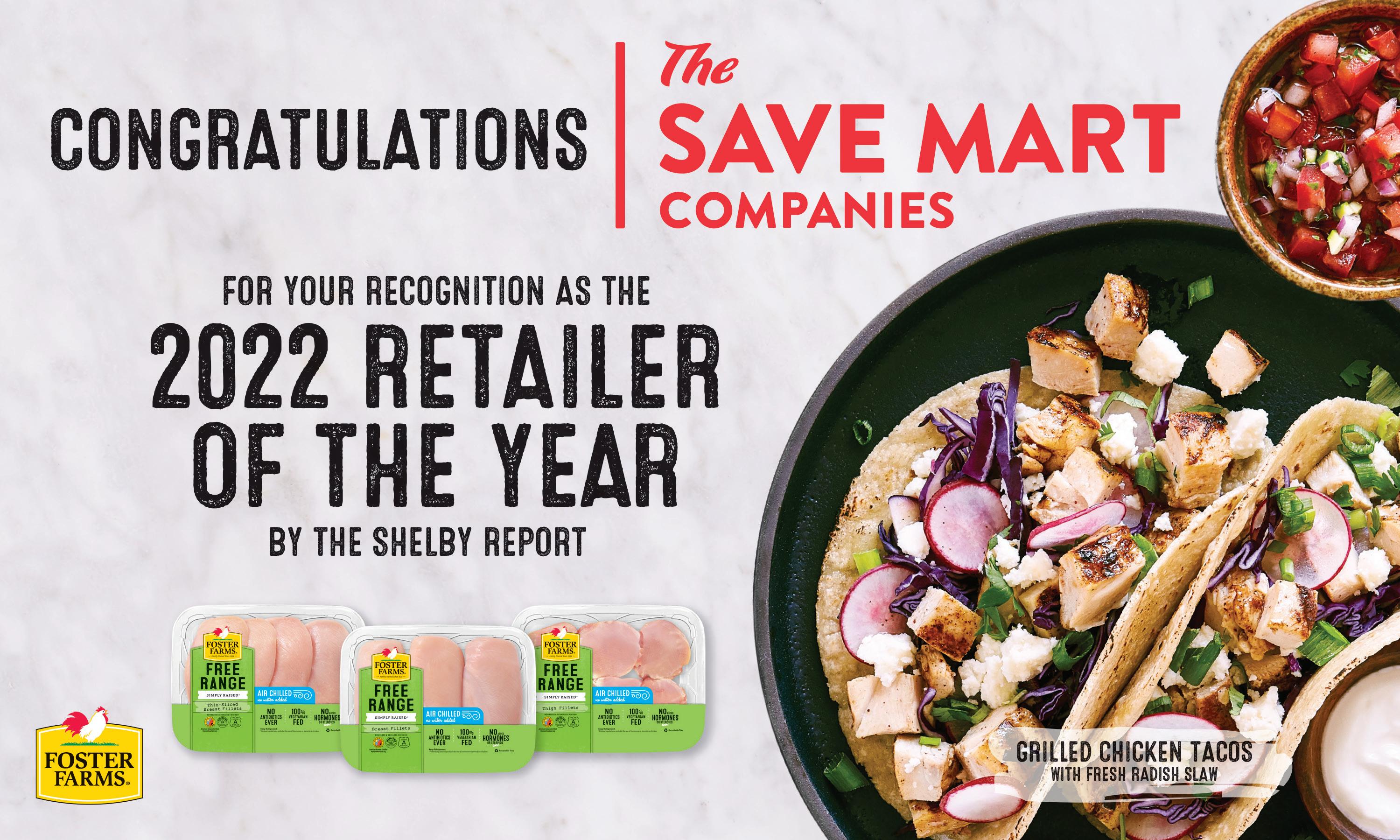
The Save Mart Cos. was among the first to provide hazard pay to its employees.
“We provided more hazard pay for our folks, voluntarily, than any of our competitors, probably any other grocery chain in the country,” he said.
“The COVID-19 pandemic was disruptive, stressful and trying on the organization. But I think it gave us the opportunity to really demonstrate who we are as an organization…COVID restored grocery to its proper place in our communities,” McGarry said.
“It was really a fascinating thing for me to observe and live through.”
He said he doesn’t know what the impact will be but thinks shopping behavior has had some permanent changes, including technology.
“We’re grocers, and technology adds to the customer experience and helps us. It’s a platform to help us serve our customers better but doesn’t transform us away from who we are,” he said. “I love where grocery is right now. It is a fascinating study…I wish I had a crystal ball.”
McGarry said The Save Mart Companies gives back to its communities in several ways. First, through The C.A.R.E.S. Foundation, where there are no administrative costs.
“The dollars that are donated there go directly to impact youth and communities. I’ve seen the good work that is done. We’ve raised millions of dollars,” he said.
Also, the company provides each store manager with a certain budget to invest in the local community. The only guidance is that the store adopt a school. If there are other civic institutions to get behind, McGarry said the managers know to bring it to the company and officials will figure out some way to fund it.
“What I really love is our store managers, they absolutely feel that we have their back,” he said. McGarry said.
“I love just watching them do what they do. And for me, I just feel like I’m an advocate,” he said. “I’m trying to support them and interface with the board and ownership to get them the capital to do things they want to do. That’s my primary function. And then to get out to the stores…this is where the magic happens.”